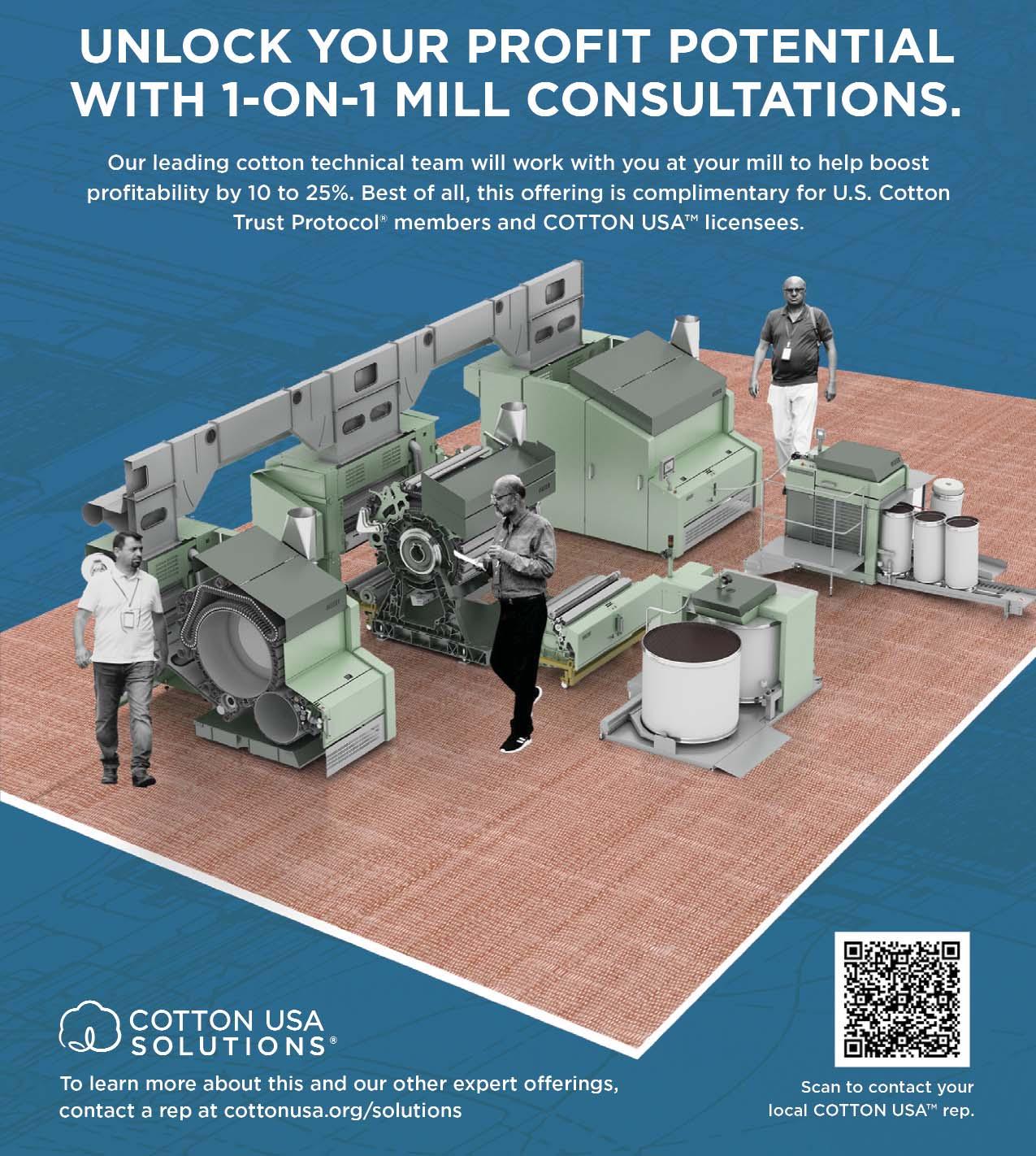

Established 1951 February 2023 Spinning Review

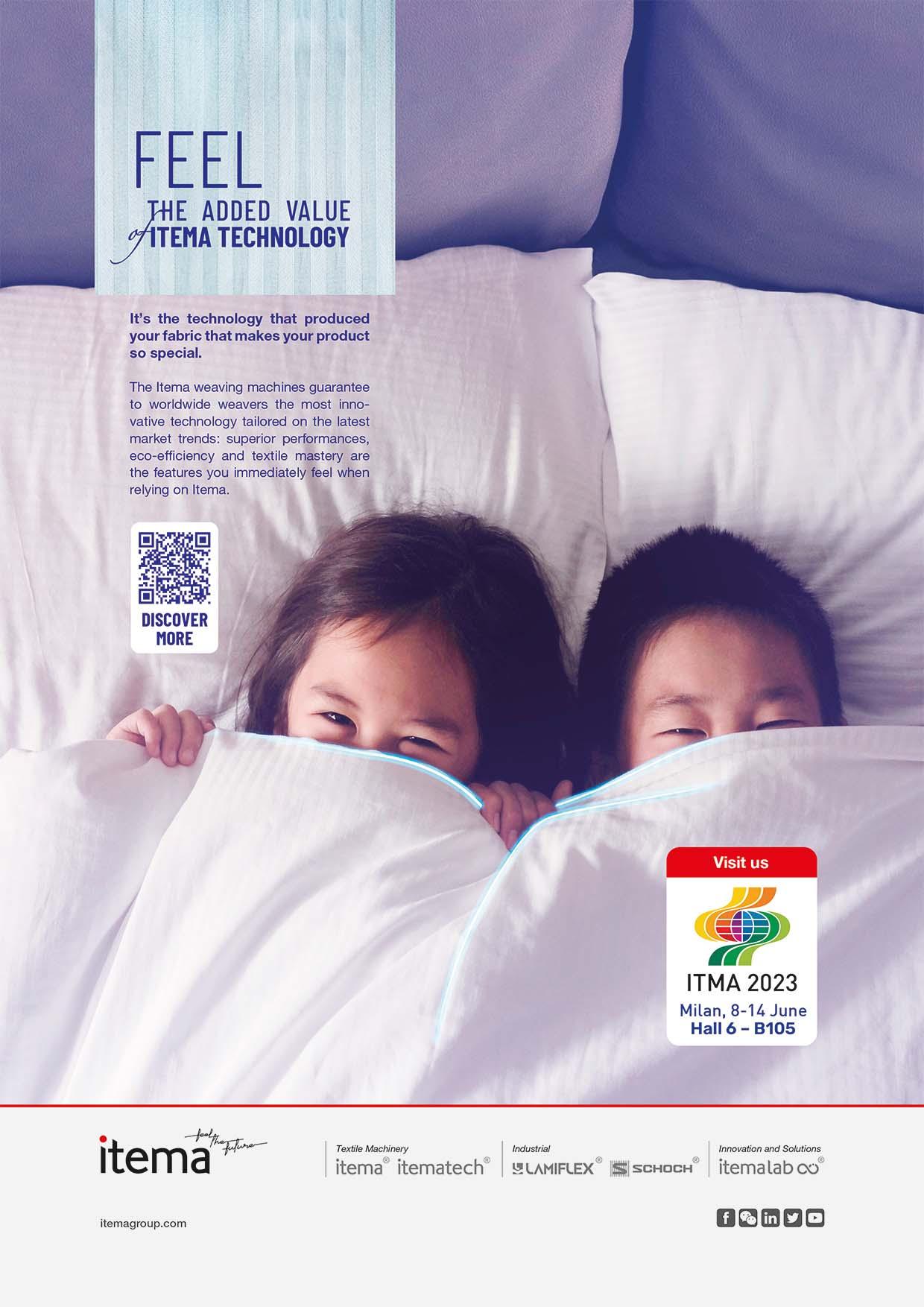
Textile Asia 2023, Karachi
Dates: March 11th to 13th 2023.
Venue: Expo Centre, Karachi.
Index 2023
Dates: April 18th to 21st, 2023.
Venue: Palexpo, Geneva, Switzerland.
Techtextil 2023 North America


Dates: May 10th to 12th, 2023
Venue: Georgia USA.
DOMOTEX asiaCHINAFLOOR 2023

Dates: May 29th to 31st 2023.
Venue: NECC, Shanghai, China.
FESPA 2023

Dates: May 23rd to 26th 2023.
Venue: Munich, Germany.
Istanbul Yarn Fair
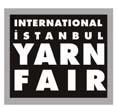
Dates: June 1st to 3rd, 2023.
Venue: Istanbul, Turkey.
ITMA 2023

Dates: June 8th to 14th, 2023.
Venue: Milan, Italy.
Johannesburg, South Africa !
Dates: June 18th to 20th, 2023.
Venue: Gallager Convention Centre.
iCADEX Pakistan 2023, Karachi
Dates: September 7st to 9th 2023.
Venue: Expo Centre, Karachi.
IGATEX Pakistan 2023, Karachi
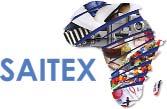


Dates: September 7st to 9th 2023.
Venue: Expo Centre, Karachi.
62th Dornbirn GFC Global Fiber Congress

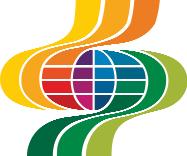
Dates: September 13th to 15th 2023.
Venue: Dornbirn Austria.
ITMA ASIA + CITME 2023

Dates: November 19th to 23rd, 2023.
Venue: NECC, Shanghai, China.
Heimtextil 2024, Frankfurt
Dates: January 09th, to 12th, 2024
Venue: Frankfurt am Main.
DOMOTEX



Hannover 2024
Dates: January 11th to 14th 2024.
Venue: Hannover, Germany.
ITM 2024
Dates: June 4th to 8th, 2024.
Venue: Istanbul, Turkey.
HIGHTEX 2024

Dates: June 4th to 8th, 2024.
Venue: Istanbul, Turkey.
JIAM
2024 OSAKA
Dates: Nov. 27th to Nov. 30th 2024.
Venue: Osaka, Japan.
12th ITME INDIA 2024

Dates: December 2024.
Venue: India Expo Centre & Mart. Noida, India.

2
Calendar of Events
PAKISTAN TEXTILE JOURNAL - February 2023
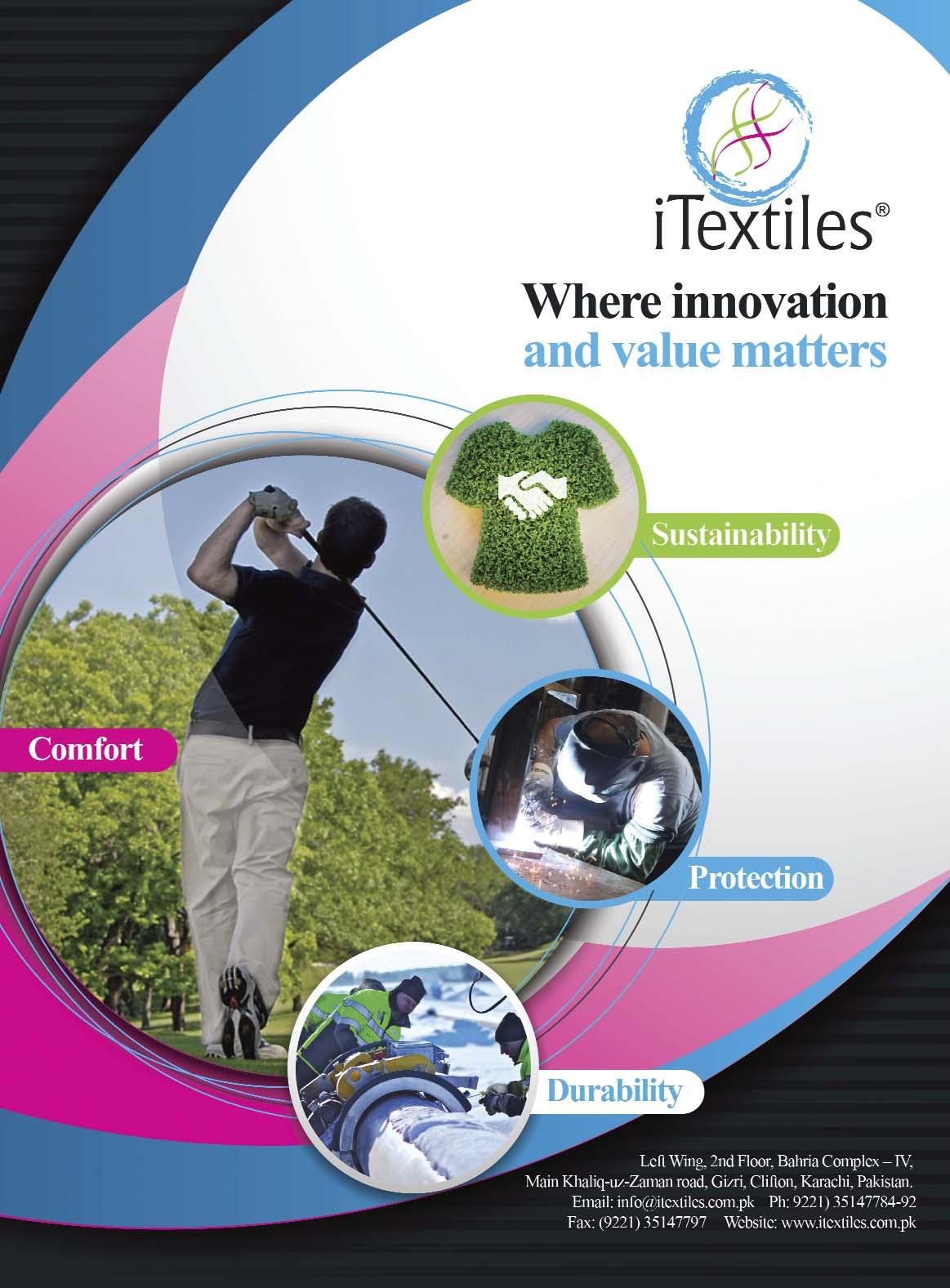
Founded in 1951 by Mazhar Yusuf (1924-2009)
Publisher
Nadeem Mazhar
Editor in Chief
Amina Baqai
Associate Editor
Nimrah Nadeem
Production Manager
Mazhar Ali
Hony-Editorial Board







Dr. Hafizur Rehman Sheikh
Ph.D (UK) F.T.I. (UK)
Syed Mahfooz Qutab
C.TEX, F.T.I (U.K), B.Sc. Fellow I.C.T.T Atlanta, GA; (USA)
Mian Iftkhar Afzal
B.S.N.C State, M.Sc. (Leeds)
C.TEXT.F.T.I (UK)
Dr. Zubair Bandukda
PhD (Textiles), CText ATI

Editorial & Advertising Office
B-4, 2nd Floor, 64/21,
Miran M. Shah Road, Karachi - Pakistan
Tel: +92-21-34311674-5
Fax: +92-21-34533616
Email: info@ptj.com.pk
URL: http://www.ptj.com.pk








PTJ Europe Ltd.


Correspondence & Mailing address: 93 Fleming Place, Bracknell, RG12 2GN, United Kingdom



Tel: +44 792 2228 721
Registered Office: Dairy House, Money Row Green, Holyport, Maidenhead, Berkshire, SL6 2ND, UK
Registered no. 09141989
CORPORATE NEWS
Insights into Belgian textile industry
close acquisition of Huntsman Textile Effects

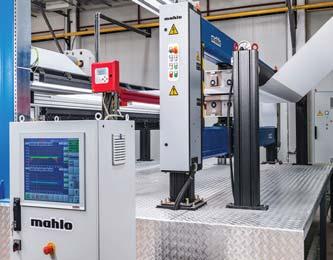
AROUND THE WORLD . . . . . . . . . . . . . . . . . . . . . .14 NEWS & VIEWS . . . . . . . . . . . . . . . . . . . . . . . . . .10 EDITOR’S PAGE . . . . . . . . . . . . . . . . . . . . . . . . . . .7 Renewable energy transition for Pakistan’s textile industry TEXTILE BRIEFS . . . . . . . . . . . . . . . . . . . . . . . . . . .8 Vol. LXXII No. 02 February 2023 Rs. 565.00
Printed at: Color Plus Korangi, Karachi. Published by Nadeem Mazhar from D-16, K.D.A. Scheme No.1. Karachi. Available on Gale and Factiva affiliated international databases through Asianet Pakistan
M.A.C.H,
Biancalani:
. . . . . . . . . . . . . . . . . . . . . . . .19 Archroma
. . . . . . . . . . . . . . . . .20 Mahlo offers data-controlled production: The answer to today‘s challenges in textiles . .21 Navis TubeTex receives the North Carolina Governor’s award . . . . . . . . . . . . . .22 CCI: Sampling solution Everdu-O Maximizes efficiency . . . . . . . . . . . . . . . . . . . .22 Hohenstein standard for identifying the environmental impact of textiles . . . . .23 FEATURE Naia™ from Eastman is back at Première Vision Paris with a new brand image . . .29 CONFERENCES The 2nd International Conference on Knowledge-Based Textile . . . . . . . . . . . . .30 UET: 5th international conference on sustainable textile 2022 . . . . . . . . . . . . .34 21 20 PERSONALIA Change of Leadership at Rieter Board of Directors . . . . . . . . . . . . . . . . . . . . . . . . .24 Robert Reimann, CEO of Jakob Müller Group . . . . . . . . . . . . . . . . . . . . . . . . .25 FAIRS AND EXHIBITIONS ITMA 2023: Innovator Xchange to offer innovation insights from industry experts . . .26 Online application for ITMA ASIA + CITME 2022 exhibition . . . . . . . . . . . . . . . . . . . .28
to
INTERVIEWS
“Testa Group stands for innovation, efficiency and sustainability,” says Dr. Annalisa Testa, CEO . . . . . . . . . . . . . . .
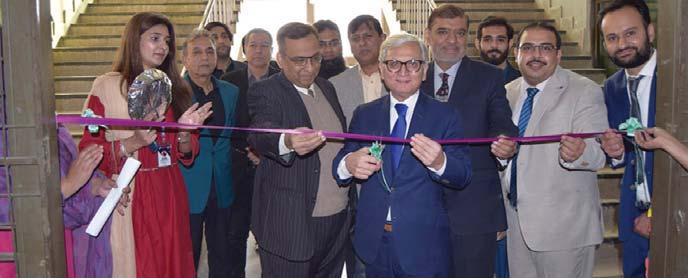
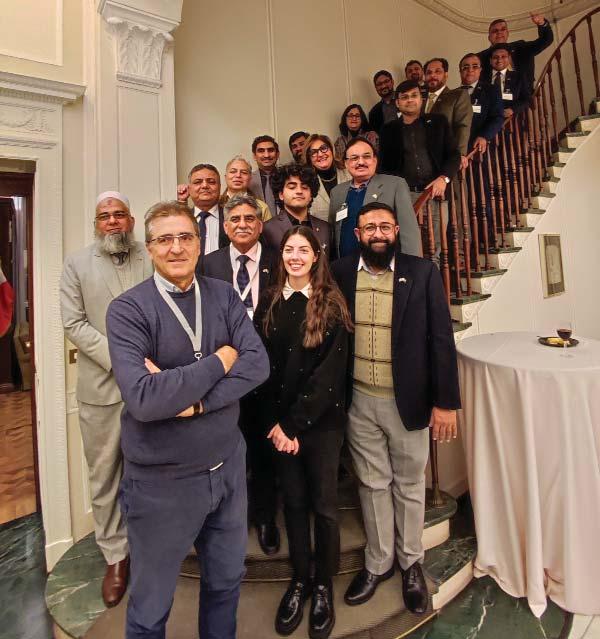

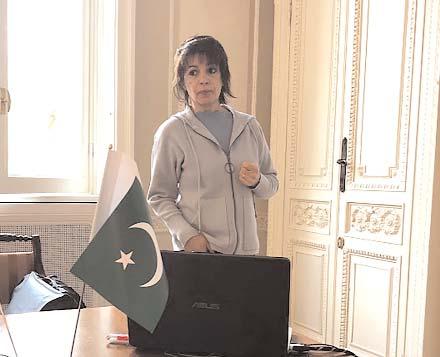
“Highly concentrated aerogel fabric available by the meter is soft, easy to process, with unique processing of NASA insulation on a textile medium,” says Volker Schuster, Head of Research and Development at Outlast Technologies. . . . .
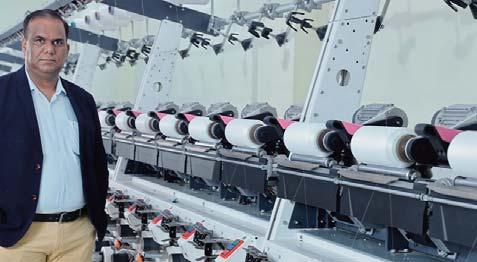

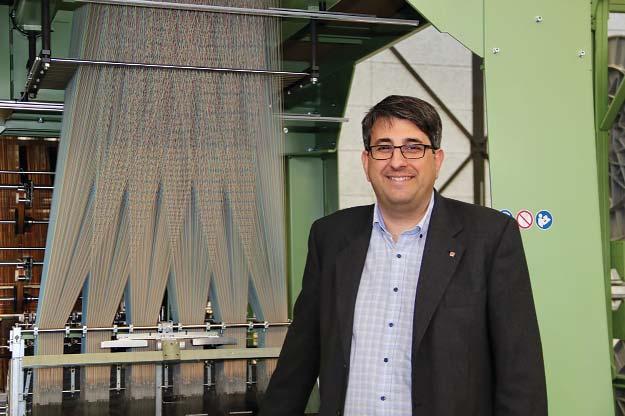
SPINNING REVIEW
SPECIAL REPORT

25 38 48 52 30
. . . . . . . . . . . . . . . . . . . .38
.
. .40 34 53
Trade Mission
Pakistan
. . . . . . . . . . . . . . . . . . . . . . . . . . . . . . .53 Italian textile machinery at the forefront of their customers in Pakistan. . . . . .56 53
from
to Italy
Cotton Trust Protocol . . . . . . . . . . . . . . . . . . . . . . . . . . . . . . . . . . . . . .42 Meridian adds Mercerized Merino Wool yarn to family of luxury wool products. .43 Uster Tester: Celebrating 75 years of the world’s most famous instrument . . . .44 Oerlikon: WINGS HD – superb efficiency and functionality . . . . . . . . . . . . . . . .46 Loepfe: PRISMA is the
choice for profitable yarn clearing . . . . . . . . . . . .47 SAVIO’S NEXT DESTINATION: PROXIMA Smartconer® . . . . . . . . . . . . . . . . . . . . .48 Rieter: Financial year 2022 . . . . . . . . . . . . . . . . . . . . . . . . . . . . . . . . . . . . .50 Customer Testimonial for SSM XENO-AC for high quality yarns . . . . . . . . . . . . .52
U.S.
right

Renewable energy transition for Pakistan’s textile industry

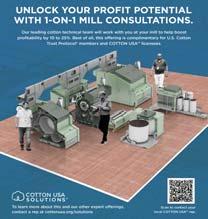
Pakistan's textile industry faces several barriers to transition to renewable energy sources, which has hindered the sector's efforts to adopt sustainable and low-carbon practices. One of the main barriers is the high upfront capital costs associated with renewable energy infrastructure. For instance, installing solar panels or wind turbines requires significant investment, which may be difficult for smaller textile businesses to bear. Additionally, the high cost of financing in Pakistan makes it challenging for businesses to secure affordable loans to finance renewable energy projects.
The Government of Pakistan must address the existing limitations of the net-metering scheme for solar, and wheeling charges and continue providing regionally competitive energy tariffs for the industry to regain sustainability progress and transition to renewable energy.
The energy sector is the largest GHG (Greenhouse Gas Emissions) producer in Pakistan. It is estimated that the energy demand in the country will reach 108 – 126 million tons of oil equivalent (TOE) by 2030. With the growing unsustainable management of energy demand, Pakistan’s continuous reliance on imported fossil fuels and outdated coal technology has affected the country’s energy security and its compliance with the global requirements on energy efficiency and decarbonization. However, the government’s recent inclination towards enhancing the country’s capacity for renewable energy (RE) consumption presents a major legislative and policy advancement.
The updated National Climate Change Policy, 2021 puts a major emphasis on achieving climate change mitigation goals via energy efficiency and reducing carbon emissions. It aims to seek technological breakthroughs to harness the country’s potential for renewable energy and declares that 60% of all energy produced in the country by 2030 will be clean through renewable resources and Pakistan will no longer pursue imported coal power plants.
Further, Pakistan’s updated Nationally Determined Contributions (NDCs), 2021 support government’s energy-related policy interventions and have determined integration of renewable energy sources in all major sectors a high-priority area. The updated Renewable Energy Policy 2019 focuses more on green energy and aims to reduce GHG emissions using Kyoto Protocol.
Pakistan has enormous potential for renewable energy, particularly solar and wind. The country's geography provides an abundance of solar radiation, with the potential to generate more than 2.3 million MW of electricity through solar energy. Moreover, the coastal areas of Pakistan have an average wind speed of 6-7 meters per second, which is ideal for wind energy production. Additionally, Pakistan has significant hydropower potential, estimated at more than 50,000 MW. The country has already developed several hydropower projects, such as the Tarbela Dam and Mangla Dam, which contribute a significant proportion of the country's electricity generation.
The annual global horizontal irradiance in the Himalayas and Karakorum is 2300 kWh/m2, which is the highest of any other region on Earth. Wind energy sources have the potential to generate 43,000 MW of electricity.

Moreover, the International Renewable Energy Agency (IRENA) estimates that Pakistan’s hydropower sector has a potential of 60 GW and it remains the cheapest source of power in the country. Biomass is estimated to generate 50,000 Gwh/ year in the country. Finally, geothermal energy resources are present in all the provinces, which can be used for power generation, heating and cooling of buildings and supply of hot water.
If Pakistan brings into play this untapped potential in all the major sectors by implementing exemplary policy reforms in spirit and expanding RE, a massive decoupling of growth from conventional energy resources such as fossil fuels can add to the existing efforts on climate resilience. RE expansion will make electricity cheaper, and enhance energy security and Pakistan can save up to $5 billion over the next 20 years, as per World Bank’s report.
7
1951 February 2023 Spinning Review
Established
February 2023.
1
Textile exports reached to $10,039.743 million during the first seven months of the current fiscal year (2022-23). The textile exports during the period showed a decline of 8.17 per cent as compared to the exports of $10,933.059 million during the same period of last year (July-January 2021-22). 2

The Pakistani textile sector suffered a financial loss of $70 million after the day-long countrywide power breakdown, following the major power outage, industries across the country came to halt as the electricity supply to three provinces was cut from the National Grid.
3
The latest increase in gas prices has created a rift between industrialists of Punjab and Sindh, as the former has to pay almost three times more than their counterparts in Sindh. The APTMA-North has urged the government to adopt a uniform price of $7 per million British thermal unit (mmBtu).
4Pakistan’s textile sector exports witnessed a significant decline of 12.4%, clocking in at $1.36 billion in January 2023 in comparison to $1.55 billion recorded in the same month of the previous year.
5
The shortage of raw materials, depreciation of the rupee against
Textile Briefs International
the dollar and energy crisis have badly affected exports of textile items from Pakistan to other countries during the last few months.
6
Pakistan’s textile industry is quickly slipping into a disastrous situation as it is losing credibility and market share among international buyers. The $19.3 billion export-focused industry is expecting a downward trend in global shipments in the current fiscal year 2022-23.
Pakistan, more than 1 million informal workers in the textile sector are likely to be impacted, according to National Trade Union Federation Pakistan (NTUF) Secretary General Nasir.
8
The industrial sector in Pakistan is preparing for more job cuts and a sharp decline in production. As a result of the economic uncertainty that has gripped
7
The Government of Pakistan must address the existing limitations of the net-metering scheme for solar charges and continue providing regionally competitive energy tariffs for the industry to regain sustainability progress and transition to Renewable Energy. Pakistan has potential for renewable energy, particularly solar & wind. The country has hydropower potential at more than 50,000 MW.
1
Australian wool prices dip due to abrupt supply increase. That significant and abrupt supply increase acted as the catalyst for sentiment to be turned on its head, hence part of the reasoning behind the price retractions on almost all types recently.

2
The sale of textile and garment machinery in Bangladesh worth more than $4 billion, and is growing by 20 per cent annually. The country has now turned a key hotspot for such machinery due to high demand by entrepreneurs to raise productivity and accept apparel orders shifting from other countries.
3
Brazilian cotton has gained a major market share in China, even though the latter is the largest cotton producer in the world. Trade data indicates that Brazil’s cotton exports have soared in value and volume over the last five years, with a sharp increase between 2017 and 2020.
4
China exported textiles, apparel and clothing accessories worth $323.344 billion in the entire 2022, registering a slight growth of 2.53 per cent compared to the previous year. The latest data shows that the country's garment exports grew by 3.2 per cent in the same period.
5India’s textile sector needs a Budget booster to face present challenges and headwinds, according to an industry expert. The industry is eagerly awaiting the government’s support in the form of incentives, programs and investments to help the sector overcome the obstacles and achieve sustainable growth in the future.
6
Italy’s textile machinery orders index for the fourth quarter (Q4) of 2022 showed a sharp 35 per cent year-on-year (YoY) decline, as per the Association of Italian Textile Machinery Manufacturers (ACIMIT). In absolute value, the index stood at 83.6 points.
7
The imports of clothing and accessories by Japan increased by 23.2 per cent to 3,494,110 million yen ($26,483.96 million) in January-December 2022, accounting for 3 per cent of the total imports of 118,164,219 million yen during the period under review
8
Türkiye’s textile and raw materials sector exports decreased by 17.3% to 991 million USD in December 2022, according to the ‘December 2022 Exports Performance Report’ published by (ITHIB). Its share in Türkiye’s overall exports, which increased by 3.1% in the same period and reached 22.9 billion dollars, was announced as 4.3%.

8 PAKISTAN TEXTILE JOURNAL - February 2023
Textile
Briefs National

Pakistan exported textile products worth $10 billion
Textile exports reached to $10,039.743 million during the first seven months of the current fiscal year (2022-23). The textile exports during the period showed a decline of 8.17 per cent as compared to the exports of $10,933.059 million during the same period of last year (July-January 202122).
The textile products that witnessed positive growth during July-January (2022-23) as compared to the corresponding period of last year included raw cotton, the exports of which grew by 134.77 percent, from $5.233 million to $12.286 million.
The exports of tents, canvas and tarpaulin also went up by 13.44 percent, from $65.339 million to $74.122 million.
The textile goods that witnessed negative growth in trade included cotton yarn, the exports of which declined by 34.66 per cent, from $ 687.857 million to $449.419 million.
Likewise, the exports of cotton cloth decreased by 9.34 percent, from $1,351.532 million to $1,225.348 million; cotton (carded or combed) by 41.18 per cent, from $1.610 million to $0.947 million, yarn (other than cotton yarn) by 23.15 per cent, from $34.031 million to $26.154 million, knit-wear by 2.93 per cent from $2,887.880 million to $2,803.298 million, bed wear by 14.81 percent, from $1,924.030 million to
$1,639.103 million and towels by 5.29 per cent, from $615.355- million to $582.833 million.
Likewise, exports of readymade garments decrease by 1.71 percent, from $2,162.627 million to $2,125.698 million; art, silk and synthetic textile by 8.88 percent, from $262.519 million to $239.208 million; made-up articles (excluding towels, bedwear) by 11.41 per cent, from $491.091 million to $435.050 million while the exports of all other textile materials went down by 3.98 per cent, from $443.955 million to $426.276 million.
Meanwhile, on a year-on-year (YoY) basis, the textile goods' exports declined by 14.83 per cent in January 2023 to $1,321.768 million against exports of $1,551.890 million in January 2022. On a month-on-month (MoM) basis the textile
goods' exports decreased by 2.53 per cent in January 2022 when compared to the exports of $21,356.061 million in December 2022, according to the PBS data.
Textile industry suffers financial loss amid power breakdown
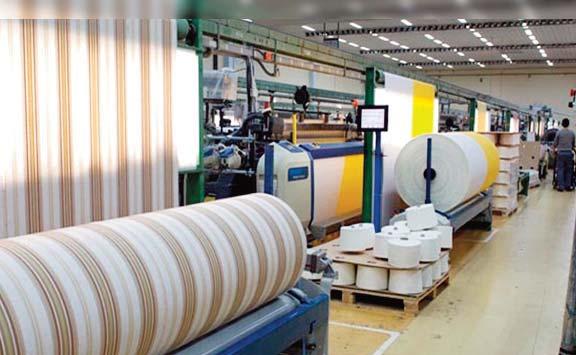
The power outage in Pakistan had a significant impact on the textile sector, with a reported loss of $70 million. The overall financial loss for the country is estimated to be Rs100 billion, with the textile industry alone suffering a loss of $7 to $8 billion. The ineffective policies of the government have already put pressure on the industry, and the power outage has worsened the situation. If the government fails to provide
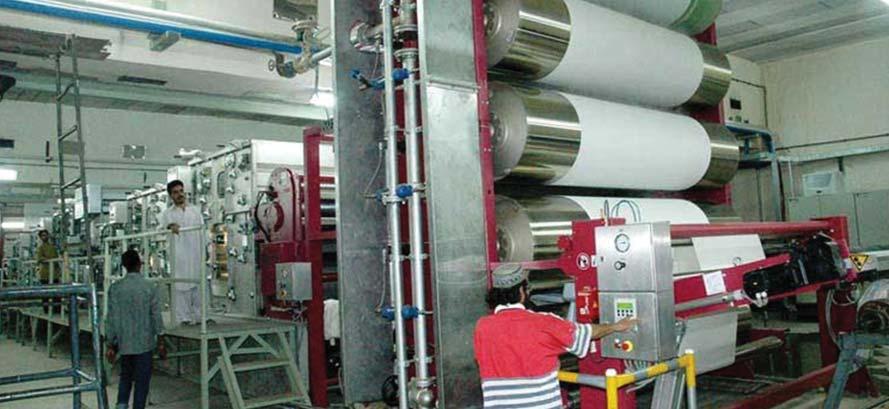
PAKISTAN TEXTILE JOURNAL - February 2023 10 News & Views
uninterrupted power supply, the financial damage to the textile sector could soar to billions of rupees.
Sources suggest that power generation was lower than 7,000 megawatts during the outage, with hydel power generation down to 90 percent and thermal power generation by 70 percent. Prime Minister Shehbaz Sharif has ordered a high-level probe into the power outage issue to determine the cause and prevent such incidents in the future.
Industrialists battle over gas prices as IMF pressure looms
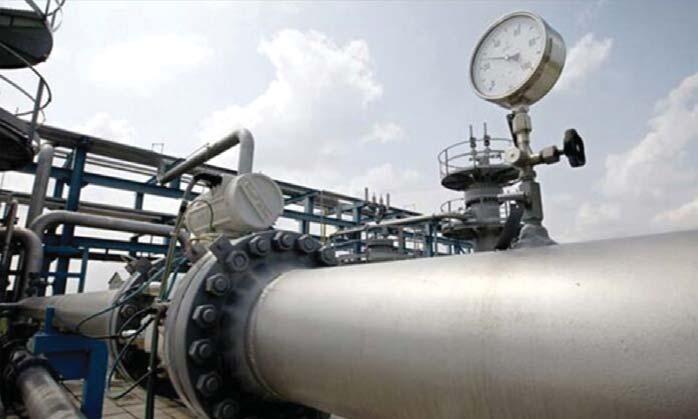
The issue of differential gas prices between industrialists in Punjab and Sindh in Pakistan has caused a rift, with the All Pakistan Textile Mills AssociationNorth urging the government to adopt a uniform price of $7 per MMBtu. The policy of charging different rates has been criticized as it causes one group of industrialists to be pitted against another and is bad for investment.
Industrialists in Punjab have been demanding a gas tariff of $9/MMBtu to remain competitive in the international market. The closure of Punjab’s textile industry could result in massive unemployment in the country, leading to further deterioration of the balance of payment crisis.
The All Pakistan Textile Mills Association has argued that the country could lose $10 billion annually if the government withdraws the regionally competitive energy tariff (RCET). The textile sector has invested $5 billion over the last three years, and the sector has shown robust growth of 55% in exports in FY22. If the RCET is withdrawn, the closure of the textile industry in Punjab would be inevitable.
Furthermore, the export sector in Sindh enjoys a cost advantage of at least $575m per year due to the price difference of $5 per MMBtu with exportoriented units based in Punjab. This puts Punjab-based industrialists at a disadvantage, leading to unequal competition. The government’s decision to increase gas prices was expected to stop the fresh build-up of the circular debt within the gas sector, but it appears that the objective is not yet achieved.
The government has introduced the definition of “protected” consumers, which doesn’t take climate differences across major cities into account, potentially leaving affluent households in Karachi that consume less than 90 cubic meters in the four winter months shielded from the hike, while households in Quetta or Islamabad might not. This could lead to an unequal distribution of the burden of the gas price hike among consumers.
Pakistan’s textile exports significantly decline in January
Pakistan’s textile sector exports witnessed a significant decline of 12.4%, clocking in at $1.36 billion in January 2023 in comparison to $1.55 billion recorded in the same month of the previous year, showed provisional data released by the All Pakistan Textile Mills Association (APTMA) recently.
It added that the country’s textile exports in the first 7 months of FY23 decreased by 8% to $10.08 billion, declining from $10.93 billion recorded in 7MFY22. The decline in textile exports is concerning for the South Asian economy, which is already facing depleting foreign exchange reserves. Its central bank has reserves of just $3.7 billion remaining, barely enough for three weeks of essential imports.
Asif Inam, Chairman of the All Pakistan Textile Mills Association (APTMA), has stated that Pakistan's textile sector is facing significant challenges. As the largest manufacturing
sector in the country, it is being negatively affected by a combination of factors, including the ongoing Ukraine crisis and floods within Pakistan. These events have disrupted the country's already inefficient supply chains, causing further difficulties for the industry. In addition, the floods have destroyed significant amounts of agricultural land in dozens of districts across Pakistan, which will likely have long-lasting effects on the economy and the country's ability to produce goods.
According to Asif Inam, the APTMA Chairman, the textile industry in Pakistan is facing a significant shortage of cotton. The country's domestic production of cotton stands at 5 million bales, whereas the industry requires 14 million bales, creating a significant gap that needs to be filled by imports.
However, the shortage of foreign exchange (Forex) in the country is making it difficult to import the required amount of cotton and other essential inputs for exports.
The issue of clearance of raw materials from the ports has also remained unresolved due to the unavailability of Forex, leading to a shortage of raw materials for mills. As a result, mills are currently unable to obtain cash against documentation and are shutting down due to the shortage of raw materials.
In December, the All Pakistan Textile Mills Association (APTMA) wrote a letter to the Prime Minister of Pakistan, Shehbaz Sharif, warning that the country's textile exports could fall below $1 billion a month from 2023 onwards.
11 News & Views
The letter highlighted a range of issues facing the textile sector, which is currently operating at less than 50% capacity utilization. These issues include a shortage of cotton due to low domestic production and restrictions on imports, the unavailability of foreign exchange, and difficulties in clearing raw materials from ports.
The letter also noted that high electricity and gas prices, as well as the lack of government support for the industry, were contributing to the challenges faced by textile manufacturers in Pakistan. If these issues are not addressed, the country's textile exports could suffer significant losses in the coming years.
Textile exports hit hard by shortage of raw materials, depreciation of rupee
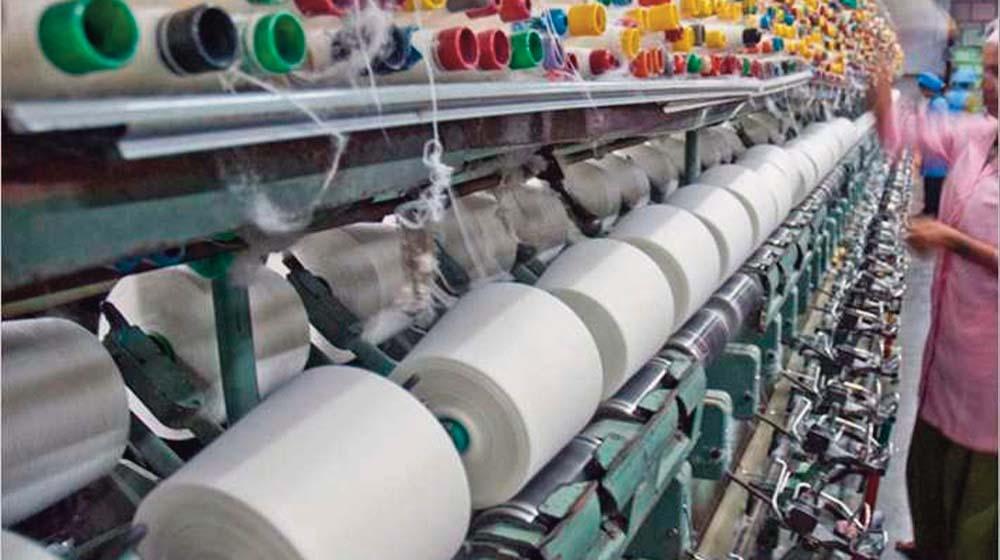
The shortage of raw materials, depreciation of the rupee against the dollar and energy crisis have badly affected exports of textile items from Pakistan to other countries during the last few months.
Pakistan’s textile exports declined by 12% in January, making it the fourth consecutive month of negative growth. The country’s textile exports also fell by 8% during the first seven months of the current fiscal.
Asad Naqvi, a senior analyst at the All Pakistan Textile Mills Association (APTMA), said that growth in textile exports remained below expectations due to various problems. He said that a shortage of raw materials, an increase in prices of petroleum products, currency devaluation, and the global financial crisis hindered Pakistan’s textile export. Nonavailability of cotton, closure of textile units, stranding of cotton consignments at ports and high-interest rates are also among the major problems.
He said that Pakistan’s cotton production dropped by 50% from 14 million bales to six million bales, inflicting annual losses of $2 billion on the textile industry. The analyst feared that textiles exports could further decline in the coming months if reliable and affordable energy supplies were not ensured.
APTMA has repeatedly said that the volume of Pakistan’s textile exports can
decline by $400 million to $500 million each month if the problem of energy shortage is not resolved. According to data released by the association, Pakistan’s textile exports dropped to $10.08 billion during the first seven months of the current fiscal year from $10.93 billion in the same period of the previous financial year. Exports in January also dropped to $1.33 billion in January 2023 from $1.55 billion during the same month of last year, showing a decline of 12%.
Pakistan exported textile items worth $19.329 billion, the highest-ever volume, during the last fiscal. However, the textile sector couldn’t sustain the trend of positive growth and exports started to decline in October after recording a growth of a single digit during the first three months of the current fiscal. According to the data, textile exports surged by only 1%, 8% and 9% in July, August and September, respectively. However, exports appallingly dropped by 15%, 18%, 15% and 12% in October, November, December and January, respectively.
Spinning into turmoil: Textile industry calls for help
Pakistan’s textile industry is quickly slipping into a disastrous situation as it is losing credibility and market share among international buyers. The $19.3 billion export-focused industry is expecting a downward trend in global shipments in the current fiscal year 2022-23.
Many exporters are also reluctant to book new orders as Pakistan is short of dollars and basic raw material including
cotton, dyes and chemicals. Different textile lobbies have warned that they will fail to meet the $25 billion export target, instead fearing a drop to around $16 billion in FY23.
In the first six months (Jul-Dec) of the current fiscal year, Pakistan’s textile exports dropped by $1 billion to $8.5 billion against $9.54 billion in the same period last year. In FY22, textile exports had gone up by a whopping 26%.
Babar Khan, Chairman of Pakistan Hosiery Manufacturers and Exporters Association said: “We have to import almost everything, starting from cotton to buttons and zips in order to manufacture one single product. As the government is reluctant to clear the imported cargo stuck at Karachi Port, one can imagine what the textile sector’s future will look like.”
According to exporters, the import raw cotton worth $1 translates into an export item worth $4 after value addition. The production of cotton crop, however, which is the key raw material for textile products, has dropped by 45% this year. The industry needs 15 million bales of cotton to translate into an annual export revenue of $20 billion.
Pakistan has only produced 4.5 million bales this year. To bridge the shortfall, the textile industry has ordered 1.7 million bales of cotton from the US, of which 0.531 million bales have already been dispatched.
Interestingly, around 100,000 bales worth $300 million have reached Karachi Port but are waiting for a go-head from the authorities.
News & Views 12 PAKISTAN TEXTILE JOURNAL - February 2023
“The textile industry is left with only 60 days of raw material and if the imported cotton is not released timely, then the industry will completely shut down by the end of March. This will result in massive unemployment as 25 million people are associated with the sector,” cautioned Hamid Zaman, Chairman North Zone of the All-Pakistan Textile Mills Association (Aptma).
Pakistan economic crisis results in big layoffs; 1 million textile workers to lose jobs
The industrial sector in Pakistan is facing a challenging economic environment, which has led to concerns about job cuts and declining production levels.
According to the National Trade Union Federation Pakistan (NTUF), more than 1 million informal workers in the textile sector are likely to be impacted by this uncertainty. The NTUF Secretary General Nasir Mansoor has expressed concern about the situation, noting that the textile sector is a major employer in the country and that any decline in production could have a significant impact on workers. The informal sector, in particular, is vulnerable to economic shocks and job losses, which could have long-term effects on workers' livelihoods. The NTUF has called on the government and employers to take steps to support workers and ensure that they are not left behind as the economy faces these challenges.
The NTUF Secretary General Nasir Mansoor has described the situation in Pakistan's industrial sector as "bleak," highlighting that many companies in the textile sector are hiring workers through third-party contracts, which makes all workers informal. He added that because these workers do not have formal contracts, they do not have the same legal protections as regular employees, making it easier for companies to terminate their contracts without facing legal consequences.
Mansoor also noted that because companies are required to offer different perks to employees under special laws for workers, hiring informal workers through third-party contracts becomes more convenient for them. This practice of hiring informal workers without proper legal protections can leave workers vulnerable to exploitation and can make it difficult for them to seek legal redress if they are unfairly dismissed.
Nasir Mansoor has also raised concerns about existing workers being expected to work longer hours to compensate for staff shortages and increasing operational costs in the textile sector. He stated that many companies ask informal workers to come to work for only 15 days in a month but require them to submit a month's worth of work, which means they are only paid for the days they come to the office. This practice can put additional strain on workers, who may already be facing challenging working conditions due to
long working hours and limited job security. It also highlights the need for companies to adopt fair labor practices and ensure that workers are paid for the work they do and are not expected to work for free or for fewer wages than they deserve.
Encouraging cotton growing helps excel textile industry’
The government of Pakistan is considering multiple options for economic revival, including boosting exports and generating employment opportunities to overcome growing poverty. The textile industry has been a key player in exports over the decades, and paying special attention to this sector by providing a congenial environment could pave the way to capture more international markets and earn revenue. However, cotton growing, which is vital for the sector, has diminished with the passage of time, and the Pakistan Cotton Ginners Association (PCGA) has reported a 35% decline in cotton production as of Feb 1, 2023, compared to last year. To strengthen this sector, the PCGA recommends measures such as announcing support price, declaring specific cotton zones, introducing highyielding, climate-smart, and pests resistant cotton varieties, and mechanized farming techniques. This sector provides employment to 40% of the total labor force and is 46% of Pakistan's total manufacturing sector, making it crucial for the country's economy.
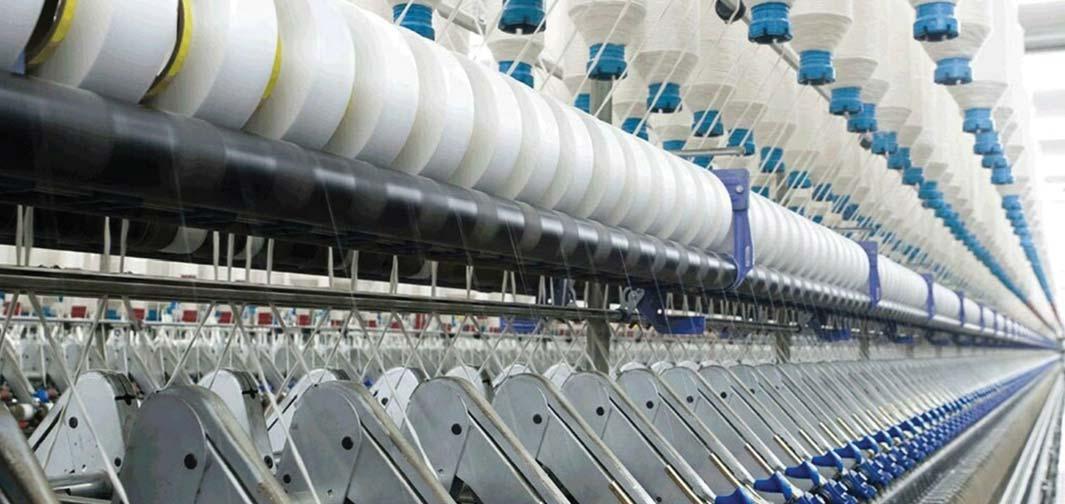
News & Views 13
AUSTRALIA

Australian wool prices decrease due to abrupt increase in supply
Australian wool prices have recently decreased due to a sudden increase in supply. Previously, there was high demand for wool which led to an increase in price. However, when an additional 12,000 bales or 25% of wool was added to the auctions in response to the price rise, it caused the market sentiment to shift and prices to drop. The sudden increase in supply allowed the market to ease back to the buyer's favor, and the pressure on prompt shipments for delivery to overseas mills was satisfied.
As a result, the steady inquiry and new business opportunities from China and India dried up, and buyers anticipated the availability of cheaper wool this week. This is according to the Australian Wool Innovation Limited (AWI) commentary for sale week 33 of the current Australian wool marketing season.
“The spot markets for wool since the onset of the pandemic in 2020 have been very much influenced by the ruling sentiment of the day; both positive and negative. Any significant difference to basic trading circumstances or macroeconomics seems to have a greater bearing on those spot wool price setting factors. Additionally, the open cry auction system is a very emotive environment so over reactions to day-to-day positions have to be considered and recognised as a factor in prices offered.” AWI concluded.
BANGLADESH

Textile-garment machinery market growing by 20% annually
The textile and garment machinery market in Bangladesh is currently worth over $4 billion and is growing by 20% annually. The country has become a hotspot for such machinery due to high demand from entrepreneurs looking to increase productivity and accept apparel orders that have shifted from other
countries. Despite the current low demand for apparel due to the RussiaUkraine war, representatives of several European garment-textile machinery companies with operations in Bangladesh are optimistic about the market potential of the country. Even during the pandemic, many entrepreneurs in Bangladesh have imported machinery from Europe.
Moreover, there is a growing demand for machinery that uses man-made fibres (MMF) in the country as entrepreneurs are investing heavily in the MMF textile industry to capture a larger share of the global market, according to Bangladeshi media reports.
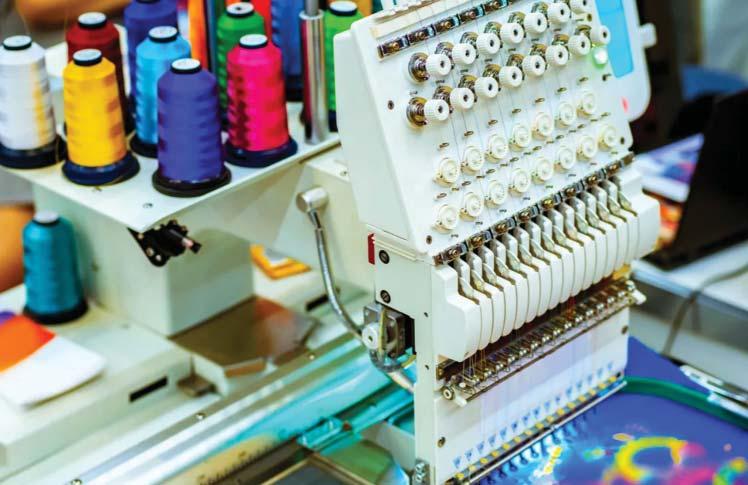
BRAZIL

Cotton exports to China grows significantly and not linked to US ban
Brazilian cotton has gained a major market share in China, even though the latter is the largest cotton producer in the world. Brazil’s cotton exports have soared in value and volume over the last five years, with a sharp increase between 2017 and 2020. The increase is not linked to the US ban on Xinjiang cotton.
Brazil exported 82.953 million kg of cotton in 2017, valued at $132.393 million. The value and volume of exports more than tripled to 302.981 million kg ($523.495 million) in 2018, and further grew to 501.725 million kg ($820.445 million) in 2019.
Despite COVID-related disruptions, Brazil exported 658.752 million kg of cotton to China in 2020, valued at $1,016.738 million. However, the volume and value of exports slightly fell to 582.985 million kg ($983.141 million) in 2021, and further eased to 521.499 million kg ($1,082.756 million) in 2022, as per research data. Despite the decline in shipments over the last two years, the exports still increased more than three times in terms of volume and value.
The data suggests that the surge in exports from Brazil to China was not solely due to Chinese importers seeking alternative sources of cotton after the US ban on cotton originating from the Xinjiang region of China. The US banned cotton from the region in June 2022.
CHINA
Textiles & apparel exports grow 2.53% to $323 bn in 2022
China exported textiles, apparel and clothing accessories worth $323.344 billion in the entire 2022, registering a slight growth of 2.53 per cent compared to the previous year. The latest monthly data released by the General Administration of Customs of China shows that the country's garment exports grew by 3.2 per cent in the same period.
Garment and clothing accessories exports reached $175.396 billion in 2022, which was 3.2 per cent higher than the same period of last year.

Around the World 14 PAKISTAN TEXTILE JOURNAL - February 2023
China's textile exports, including yarn, fabrics, and others, registered a growth of 2 per cent year-on-year to reach $145.079 billion in 2022. Textile and apparel exports during December 2022 amounted to $25.295 billion. Out of this, textile, yarn, and articles exports earned $11.002 billion, while garments and clothing accessories fetched $14.293 billion in December this year, as per the data.
INDIA

Indian textile industry needs budget booster to continue to boom
An industry expert has stated that India's textile sector requires a boost from the Budget to face current challenges and headwinds. The Finance Minister of India, Nirmala Sitharaman, is set to present the Budget for the financial year 2023-24.
The Joint President & Business Head - Spinning of Ginni Filaments Limited, Balkrishan Sharma, has expressed the industry's eagerness for the government's support in the form of incentives, programs, and investments to help the sector overcome obstacles and achieve sustainable growth in the future. Sharma cited a decline in global demand, lackluster domestic demand, and a cotton shortage as some of the challenges faced by India's textile industry in the past fiscal year.
The rising prices of cotton in India have had a significant impact on the profitability and margins of spinners, leading to sub-optimal capacity utilization, an accumulation of inventories, and a decline in merchandise exports. In addition, the volatility of currencies and uncertainty in the European market, combined with the ongoing Ukraine war, have presented a challenging situation for the industry. To address these challenges, the textile industry is looking to the annual Budget 2023-24 for measures that will provide further support to the sector. These measures could include additional incentives for exports, the extension of existing programs such as the Remission of State Levies and the Interest Equalization Scheme, and the introduction of new programs that support the textile industry. Furthermore, the industry is expecting the Budget to include measures that will reduce the cost of labor, raw materials, and other production costs, as well as promote innovation and technology in the sector.
In order to remain competitive, the textile industry in India is seeking immediate removal of the 11 per cent import duty on cotton and cotton waste. Furthermore, the industry is expecting the Budget to provide export incentives and additional credit support to facilitate easy liquidity at competitive costs for export-oriented units. These measures are expected to help the industry to overcome the challenges posed by rising cotton prices, volatile currencies, and uncertainty in the European market, and to maintain its competitiveness in the global market.
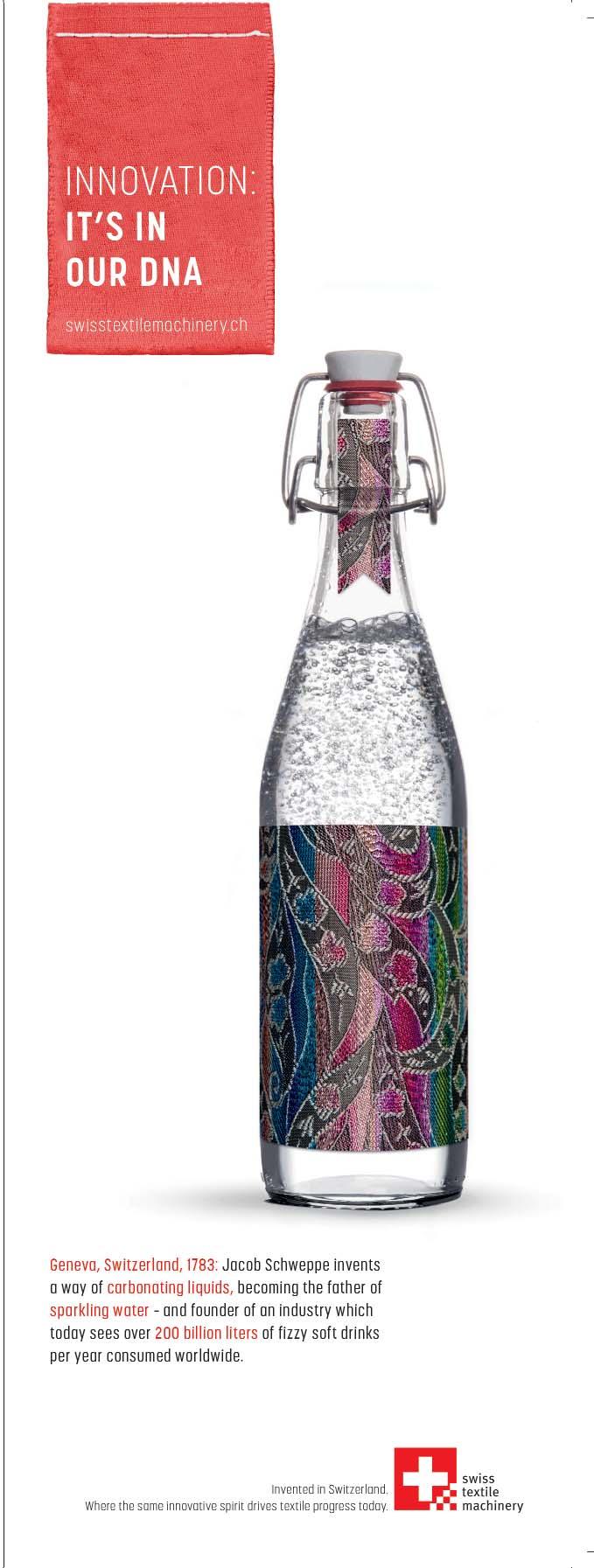
Around the World
yen, a 25.7% increase from the same period of last year, and accounted for 1.1% of the total imports.
Imports from China were 1,901,152 million yen, a 20.1% increase from the same period of 2021 and accounted for 7.7% of the total imports from China.
The exports of textile yarn and fabrics from Japan to the US increased by 10.8% to 77,404 million yen, and the exports of textile machinery to the US increased by 37.5% to 13,830 million yen in the same period.
TURKIYE

ITALY
Italian textile machinery orders index drops 35% YoY in Q4 2022

Italy’s textile machinery orders index for the fourth quarter (Q4) of 2022 showed a sharp 35% year-on-year (YoY) decline, as per the Association of Italian Textile Machinery Manufacturers (ACIMIT). In absolute value, the index stood at 83.6 points.
Orders took a 34% drop on the domestic market, while the foreign index was down fully 37%. In Italy, the index’s absolute value came in at 155.4 points, whereas on foreign markets the value stood at 75.8 points, ACIMIT said in a media release.
On an annual basis, the orders index marked an 18% decrease and an absolute value of 110.4 points. The drop in orders abroad was 17%, while orders collected in Italy were 28% lower than the figures drawn up in 2021.
“The orders index data for the fourth quarter confirms what had already been observed in the previous quarters in 2022. After a sharp increase in 2021, this decrease in orders for the past year is physiological. Furthermore, the ongoing war between Russia and Ukraine, with its related consequences on daily business and trade, and a macroeconomic framework in which uncertainty prevails, have further negatively affected the orders intake,” stated ACIMIT president Alessandro Zucchi.
Data for the last quarter does not suggest a reverse in the negative trend for the first months of 2023. Declining energy prices and inflation, although still high, also declining slightly are, however, signs of a light improvement in the business of companies in the sector as well.
“We need to look to the current year with optimism,” continued the ACIMIT president. “Our member companies are already focusing on ITMA, the upcoming global textile machinery industry trade fair that will be held from June 8–14 in Milan.”
“I am confident that ITMA Milan can represent an opportunity for further development of the Italian textile machinery sector,” concluded Zucchi. “The technological innovations that our manufacturers will bring to the trade show will meet the textile industry’s need to be increasingly sustainable, both environmentally and economically.”
JAPAN

Clothing imports up 23.2% to 3,494,110 million yen in 2022
According to provisional trade statistics released by Japan's Ministry of Finance, clothing and accessories imports by Japan increased by 23.2% to 3,494,110 million yen ($26,483.96 million) in January-December 2022, accounting for 3% of the total imports during the period. Textile yarn and fabric imports were valued at 1,261,222 million
Textile exports standstill in 2022
The Turkish textile and raw materials sector was able to achieve an increase in exports in 2022, despite the challenging economic conditions around the world. While the sector may not have met its initial export target, the 0.6% increase in exports to $12.9 billion is still a positive outcome.
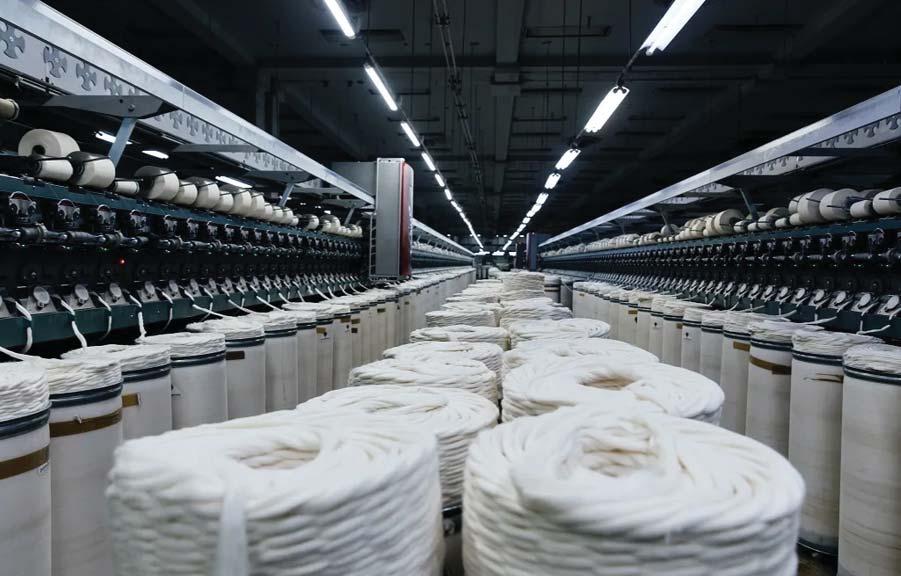
As the 5th largest producer and exporter in the world, the Turkish textile industry is an important player in the global market and its continued growth is essential for the country's economy.
According to the December 2022 Exports Performance Report published by Istanbul Textile and Raw Materials Exporters Association (ITHIB), Turkey's textile and raw materials sector experienced a decrease in exports by 17.3% to USD 991 million in December 2022. However, Turkey's overall exports increased by 3.1% in the same period, reaching USD 22.9 billion, with the textile and raw materials sector contributing 4.3% to the total exports.
The report also shows that the textile and raw materials exports to the EU (27) countries, the largest export destination for Türkiye, decreased by 5% in 2022 to USD 5.6 billion, while exports to African countries increased by 7% to USD 1.4 billion.
The capacity utilization rate for textile product manufacturing increased by 1.3% in December 2022 compared to November 2022, reaching 71.3%, but it was down by 11.5% compared to December 2021.
PAKISTAN TEXTILE JOURNAL - February 2023 16
VIETNAM

Textile & garment exports down 37.6% to $2.25 billion in Jan 2023
The preliminary data from Vietnam's Ministry of Finance shows that the country's textile and garment exports declined by 37.6% to $2.25 billion in January 2023 compared to the same period in the previous year. The US, Japan, and South Korea were the major destinations for Vietnam's textile and garment exports during the month.

The US accounted for a major share (about 44 per cent) totalling $0.991 billion in the textile and garment exports of Vietnam during the first month of this year. Japan and South Korea were the other major destinations with exports of $0.248 billion and $0.244 billion, respectively.
Vietnam's yarn exports also decreased by 52.4% in January 2023 compared to the same period in the previous year. Of this, China imported around 38.22 per cent or $0.086 billion worth of yarn, followed by India that imported yarn worth $5.004 million. In volume terms, Vietnam exported 88,130 tons of yarn which was 38.9 per cent lower than the exports during the corresponding period of last year.
In 2022, Vietnam's textile and garment exports grew by 14.7% to $37.5 billion, while yarn exports increased by 50.1% to $5.609 billion.
The Vietnam Textile and Apparel Association (VITAS) has set a target of $48 billion for the country's textile, garment, and yarn exports in 2023, assuming a positive market scenario.

USA

US cotton industry faces a slowdown
Although modest economic growth is forecasted by National Cotton Council (NCC) economists for the next two years, the projected growth for the US cotton industry represents a slowdown from the prior two years. The past year can be characterised as a year with significant uncertainty and volatility in the global economy and the world cotton market.
The US cotton industry continues to navigate an environment characterised by increased production costs, slumping consumer demand, and supply chain disruptions. “The NCC projects 2023 US cotton acreage to be 11.4 million acres, 17.0 per cent less than 2022,” Dr. Jody Campiche, the NCC’s vice president, economics and policy analysis, said in her analysis of the NCC Annual Planting Intentions survey results.
While production costs remain elevated, cotton harvest-time futures prices are currently 16.5 per cent less than a year ago and the prices of most competing commodities are relatively unchanged. The current economic signals are reflected in the 2023 survey results as many growers indicated a shift away from cotton to other competing commodities.
Using five-year average abandonment rates along with a few state-level adjustments, Cotton Belt harvested area totals 8.8 million acres for 2023 with a US abandonment rate of 22.6 per cent. Using the five-year average state-level yield per harvested acre generates a cotton crop of 15.7
17 Around the World
Around the World
million bales, with 15.2 million upland bales and 466,000 extra-long staple (ELS) bales.
World cotton production is estimated to increase slightly to 115.9 million bales in 2023-24 due to an increase in harvested acreage. Overall, the outlook for world cotton demand for the 2023-24 marketing year takes on a more positive tone as compared to 2022-23 with the expectation of improving global economic conditions.
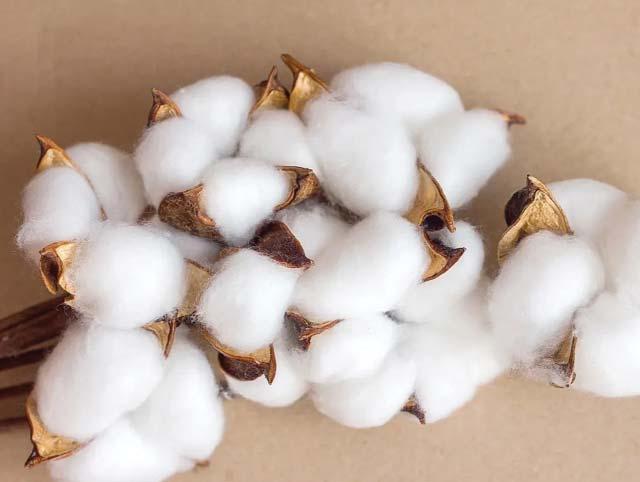
For the 2023-24 marketing year, world consumption is projected to increase by 4.7 per cent to 116.1 million bales. The removal of COVID-19 restrictions in China should provide a boost to cotton consumption in 2023. The International Monetary Fund has projected an increase in China’s growth rate from 3 per cent in 2022 to 5.2 per cent in 2023. With expanded consumption in key importing countries, world trade is projected to increase to 44.2 million bales in 2023-24.
Regarding domestic mill cotton use, the NCC is projecting an increase in US mill use to 2.3 million bales during the 2023-24 marketing year.
It is true that the US textile industry faces competition from Asian suppliers,
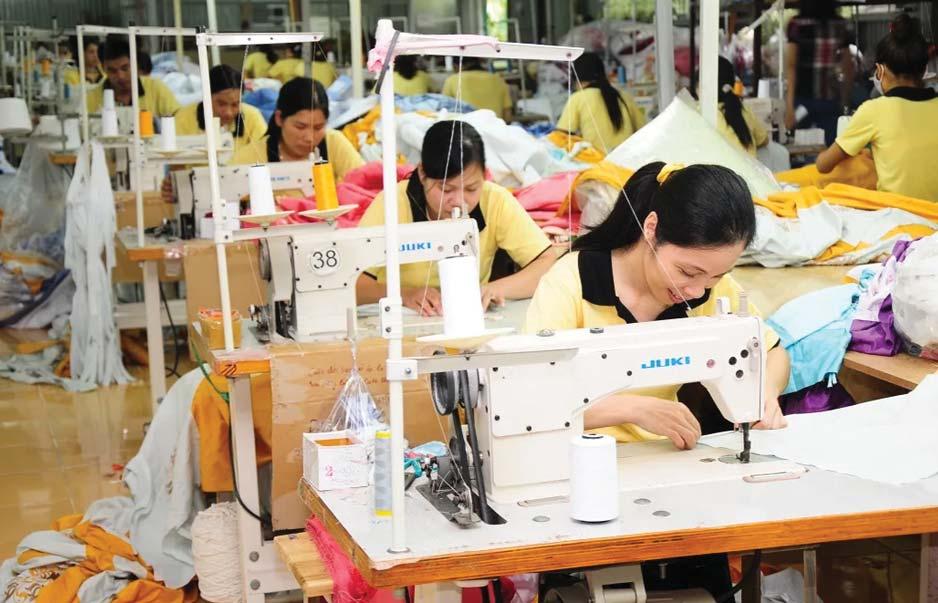
which has led to a decline in domestic textile production over the years. However, the industry has responded by investing in new technologies and adopting innovative practices to remain competitive.
Additionally, the US has been working to maintain and strengthen trading arrangements with Western Hemisphere
countries, which are important markets for US cotton and textiles. The US government has also implemented various trade policies and agreements aimed at supporting domestic textile production and exports. Overall, the US textile industry continues to play a significant role in the global cotton market, and efforts are being made to ensure its continued success.
PAKISTAN TEXTILE JOURNAL - February 2023 18
Insight: Belgian textile industry
Belgian textile industry has always been a reference point in the global textile industry. With upholstery and furniture fabrics as their assets and a centuries-spanning tradition, Belgian textile companies generate an annual turnover of more than EUR 4 billions and are massively investing in e-textiles and sustainable fibers, i.e. a whole innovative textile ecosystem. Not least – indeed essential – textile education, training and research are being strongly supported: therefore, nowadays Belgium is definitely a textile and fashion business cluster and incubator.
Jean Comhaire, the founder of Petrocom BV, has been working with Biancalani Textile Machinery since 1991. Petrocom operates in the textile, plastic, and chemical industries and has
expanded its business to Belgium, the Netherlands, and Luxembourg. Comhaire believes in building strong, long-lasting partnerships with textile machinery companies, which he views as the cornerstone of Petrocom's success.
Comhaire praises Biancalani for its innovative ideas, honest and professional approach, and ability to provide the best solutions for fabric finishing despite increasingly stiff competition.
Biancalani is viewed as one of the most innovative textile machinery manufacturers in Belgium, with a long tradition and experience in finishing textiles, which is highly valued in Belgian textile clusters. Biancalani is also known for providing high-tech solutions, which have been well received by its clients.
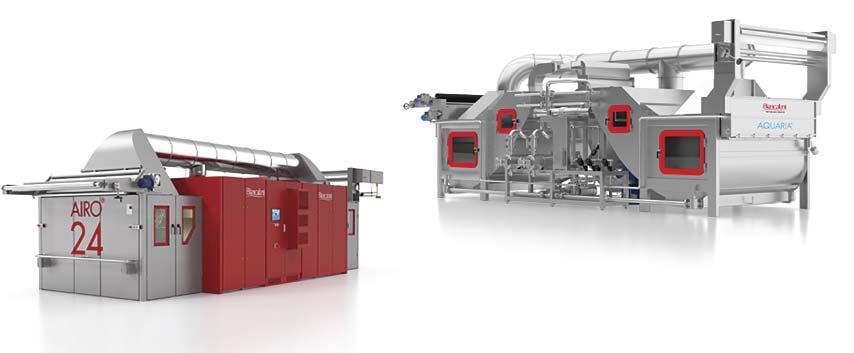
Comhaire notes that Biancalani's positive reputation among customers is
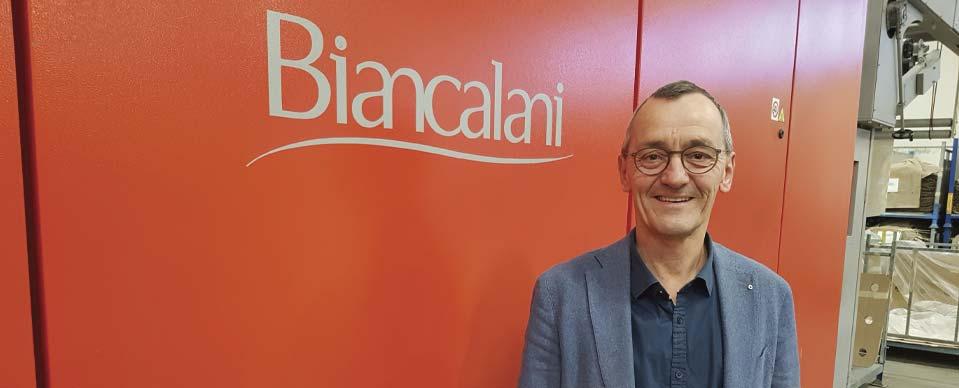
evident throughout the entire process of contacting, testing, quoting, and final negotiations. The company is able to work closely with its customers to find specific technical solutions or even develop brand new products that the customer may not yet have. The release of AIRO®24 and AQUARIA® open-width washing lines have further enhanced Biancalani's reputation as an innovator.
Looking to the future, Comhaire believes that the textile industry, particularly in Belgian textile clusters, will continue to demand innovation and new ideas. To remain one of the most qualified producers on the market, Biancalani must continue to provide the best machines to its customers and listen carefully to their needs. This approach aligns with Biancalani's style and will allow the company to thrive in an everchanging and healthy competition.
19
Corporate News
The AIRO®24 and AQUARIA® open-width washing lines by Biancalani for providing high-tech solutions.
Archroma to close acquisition of Huntsman Textile Effects

Archroma, a global leader in sustainable specialty chemicals and solutions for industries such as textiles, packaging & paper, paints and coatings, today announced that it has secured all regulatory approvals required to complete the acquisition of the Textile Effects business from Huntsman Corporation (Huntsman Textile Effects).

Both parties expect the transaction, which was first announced on 09 August 2022, to close on 28 February 2023.
Archroma is a portfolio company of US-based private investment firm SK Capital Partners. Since its formation in
2013, Archroma acquired and successfully integrated the global textile chemicals businesses of BASF as well as BASF’s stilbene-based OBA business for paper applications, and M. Dohmen, a specialist in coloration for automotive textiles.
Heike van de Kerkhof, Archroma Group Chief Executive Officer (CEO), commented: “We are very excited to see this acquisition nearing completion. I am deeply grateful to the project teams of Archroma and Huntsman who are preparing for a smooth transition for our employees and partners. After closing, we will be able to bring together our expert
teams and highly complementary product portfolios to offer our customers and brand partners the high performance they expect, whilst respecting natural resources and the planet.”

20 PAKISTAN TEXTILE JOURNAL - February 2023
Corporate News
Heike van de Kerkhof.
Mahlo offers data-controlled production: The answer to today‘s challenges in textiles
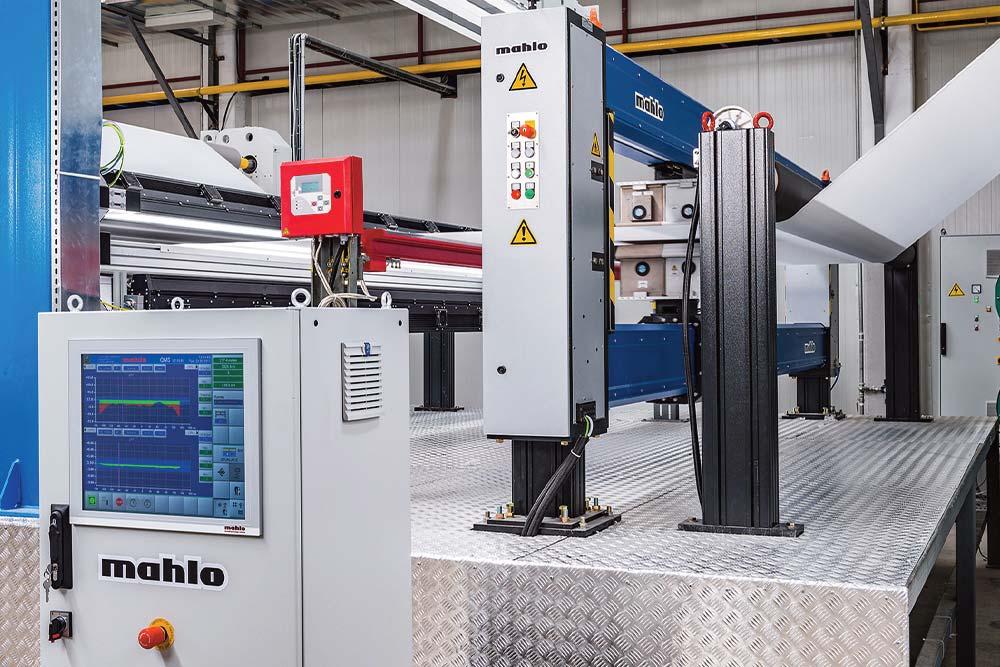
the textile machinery manufacturing companies face numerous challenges in the current market, and in order to remain competitive, they must increase the efficiency and flexibility of their production while minimizing manufacturing costs. One of the key solutions to these challenges is online quality control in textile production processes, which has become more important than ever before.
Mahlo, a German machine builder, has demonstrated how data-controlled production can solve the problems facing the textile industry.
According to Matthias Wulbeck, product manager for Quality Control Systems (QCS) at Mahlo, the correct collection, analysis, and treatment of the right data, as well as the seamless transition of data flows between machines, company divisions, and other companies, such as customers or suppliers, is crucial to successful implementation.
Leading industrial companies are already introducing automated processes and high-tech networked devices to perform live data analysis, and Mahlo
quality control systems, which are Industry 4.0 compliant, can be installed throughout a modern textile coating line.
The Qualiscan QMS system has a broad portfolio of intelligent scanners and sensors that record product and process parameters online at different stages of the production. The measured values are processed in real-time processors of the
sensors, and the finished measurement data is visualized internally in an intuitive control display or transmitted via interfaces to an external network.
The implemented automatic control algorithms interact directly with the suitable actuators of the textile coating line, reducing deviation from the target and leading to a more uniform endproduct.
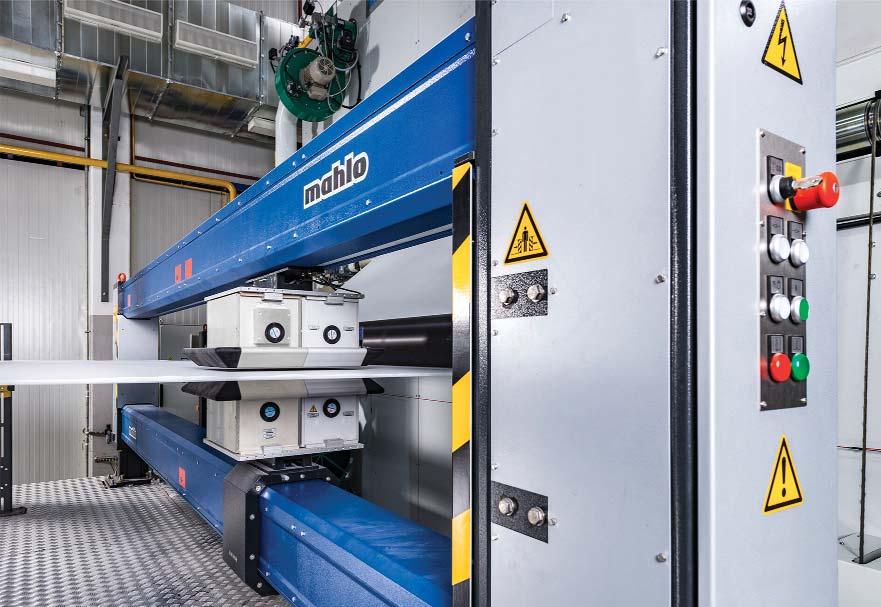
This allows for optimized target value specifications, better product quality, and significant savings in raw materials and energy costs. Process reliability and production throughput also increase, allowing companies to react quickly and flexibly to changing market demands.
In addition to online control of the above-mentioned parameters, an important function of any quality control system is to provide detailed historical data. By a simplified and direct data exchange, the end user can keep track at any time where and how its product is fabricated. This not only guarantees a trouble-free value chain, but also ensures that the fabric is always produced with the right parameters. In these unsecure times, such security is of high value.
The measured values are visualized in real time
21 Corporate News
Web gauging with Qualiscan QMS
Navis TubeTex receives the North Carolina Governor’s award
The Governor of North Carolina, Mr. Roy Cooper, has recognized Navis TubeTex with the Governor’s Award for Excellence. This award is given each year to recognize one North Carolina company that has made significant contributions in the effort to increase North Carolina exports. Navis TubeTex has worked with

North Carolina for over 10 years with exhibition cooperation in many of the world's textile centers with Senior International Trade Manager, Mr. Glenn Jackman.
The Award was presented at the Governor’s Mansion in Raleigh. President and CEO, Mr. William Motchar and Senior Director – International Sales, Mr. Jeffrey Dixon were present to receive the award on behalf of Navis TubeTex.

Navis TubeTex is a leader in finishing machinery for the global
textile industry. Based in Lexington, North Carolina, Navis TubeTex designs, engineers, and manufactures the world’s leading machinery for the global knit, woven, nonwoven, technical and geotextile industries. Navis TubeTex has customers in over 65 countries.
CCI: Sampling solution Everdu-O Maximizes efficiency
CCI announces a release plan for its latest sampling solution, Everdu-O. The machine innovatively combines Weaving, Warping, and even Drawingin functions together with the new concept of Integrated Design.
And that means, the user can effortlessly complete a piece of fabric sample just on One Machine without additional cost! With the brand new sampling solution, one can enjoy a streamlined experience from Easy installation and operation to responding quickly to changing markets.
Effective and fast sampling shouldn’t be limited to huge budget and dedicated weaver team. The Everdu-O is designed
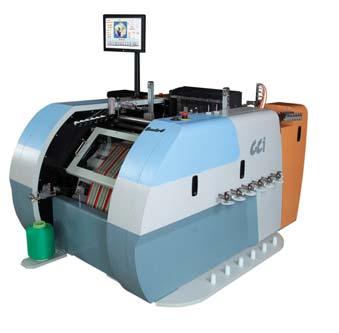
to make fabric sample production simpler and give customers more flexibility in their production planning. One machine can efficiently finish Warping, Weaving, and even Drawing-in jobs. CCI offers the quickest way to see the result of your design or produce the samples that your customers request urgently.
In addition, Everdu-O comes with a weaving width of 400 mm and warping length up to 2.2 m which is ideal for quick production of woven sample any time within studio, office or factory floor. Designed with the mindset of reduced machine dimensions, the machine can blend perfectly into any working environment without space concern. More features include Minimum Cost
Required for making a piece of sample, Easy to maintain with the easy-to-access doors, Plug n Play without the cost of installation service.
22 PAKISTAN TEXTILE JOURNAL - February 2023 Corporate News
Economic Development Partnership of
The Governor of North Carolina, Mr. Roy Cooper.
Will Mothar, Jeff Dixon, and Glenn Jackman, Senior International Trade Manager for Economic Development Partnership of North Carolina.
Everdu-O is latest sampling solution by CCI.
Hohenstein sets new standard for identifying the environmental impact of textiles during washing, including fiber release, biodegradability and ecotoxicity

Testing service provider Hohenstein has worked with partners to create a new standardized test method for detecting and classifying the environmental effects of textiles during washing. DIN SPEC 4872 combines analysis of fiber release, biodegradability and ecotoxicity.
The test method according to DIN SPEC 4872 shows how many fibers are released during textile laundering, how well these fibers degrade in waste water and how harmful the fiber residues are to the environment.
Studies have shown that washing textiles releases microfibers into the wash water, which cannot be sufficiently retained by wastewater treatment plants. Synthetic fibers pose the greatest risk to the environment because of their longevity and inability to biodegrade. However, Hohenstein project manager Juliane Alberts does not give the all-clear
for biodegradable fibers and natural fibers: "Biodegradability alone does not mean that pure natural fibers, for example, are completely harmless to the environment. They, too, remain in ecosystems until they completely degrade and can also have a negative impact. In addition, additives, auxiliaries or finishes used in textile production can further slow the degradation process and leach into the environment."
The new standard enables textile producers and suppliers to test, evaluate and compare products for fiber release during washing and environmental impact. Juliane Alberts sees this systematic evaluation as an opportunity for the textile industry to take the initiative on environmental
Ecotoxicity – Duckweed is a particularly sensitive organism used as a model for higher aquatic plants. Its green color and healthy development prove the ecotoxicological harmlessness of its environment.

impact: "Our reliable data can be used as a basis for more targeted product development. This is a way to actively and consciously control further environmental pollution."
About Hohenstein
With more than 40 offices and laboratories, Hohenstein is an international partner for independent testing, certification and applied research around the human-textile-environment interaction.
They develop science-based methods and standards that consider the user in real life, not just in the lab. Through standard or customized testing, and interpretation of the results, Hohenstein experts solve problems, verify claims and help partners bring better, safer products to market – more sustainably.
Hohenstein is a founding member and leading provider of the OEKO-TEX® portfolio of services, and is certified by the U.S. Consumer Products Safety Commission (CPSC ID #1058) as a thirdparty, independent laboratory for CPSIA compliance verification.

23 Corporate News
Microplastics – micro sized with global environmental risk. The DIN SPEC 4872 test method classifies how many fibers are released during textile laundering, how well these fibers degrade in wastewater and how harmful the fiber residues are to the environment. With systematic analysis, textiles are classified in terms of fiber release during the washing process.
Regarding environmental impact, biodegradability of fibers in wastewater plays a decisive role. The biodegradability is determined after a defined period, by measuring fiber residues in the wastewater.
Change of Leadership at Rieter Board of Directors - Thomas Oetterli as New CEO

Norbert Klapper, who has led Rieter as CEO for nine years, has informed the Board of Directors that he wishes to take on new professional challenges. The Board of Directors of Rieter Holding Ltd. has taken note of Norbert Klapper’s resignation, expressing its gratitude for his service to Rieter. The Board of Directors has appointed Thomas Oetterli as his successor as CEO of Rieter.
Thomas Oetterli (53) has made a significant contribution to the successful development of the world-leading Schindler Group, starting in 2006 as CEO Switzerland, later as a member of the Group Executive Committee responsible for Europe and China, and from 2016 until 2022 as CEO of the Group. With his comprehensive leadership skills and many years of industrial and international experience, Thomas Oetterli brings ideal prerequisites to lead Rieter as a global market leader through the current challenges and successfully develop it further in the long term. He will take over the function of CEO from Norbert Klapper on March 13, 2023.

The Board of Directors would like to thank Norbert Klapper for his many years of hard work for Rieter and his lasting contribution to the company, particularly in terms of further strengthening its technology leadership, developing the components and service business, completing the systems offering, and wishes him all the best for the future, both professionally and personally. Following his departure as CEO, he will be available to the Chairman of the Board of Directors as Senior Advisor until the end of September 2023.
Thomas Oetterli also proposed as member of the Board of Directors
In the course of the intensive talks with Thomas Oetterli that led to his appointment as CEO of Rieter, the Board
of Directors came to the conclusion that, with his proven strategic competencies, extensive industrial experience and international network of contacts, he would also make important contributions to Rieter’s Board of Directors and strengthen its overall profile. As Chairman of the Board of Directors of SFS, an industrial company in Switzerland, he is also familiar with the international industrial environment from the perspective of another globally active Swiss industrial company.
In view of the current challenges Rieter is facing in the current economic and market situation, which require close cooperation between the Board of Directors and the Group Executive Committee, the Board of Directors considers a dual function of Thomas Oetterli as CEO and member of the Board of Directors to be advantageous and in the interest of all stakeholders. It will therefore propose Thomas Oetterli for election as a member of the Board of Directors at the upcoming Annual General Meeting on April 20, 2023.
24 PAKISTAN TEXTILE JOURNAL - February 2023 Personalia
Norbert Klapper
Robert Reimann, CEO of Jakob Müller Group (Frick), announces his resignation
Robert Reimann, long-term CEO of Jakob Müller Group (JMG) in Frick/AG, is stepping down from his position. He has decided to leave the company by midyear. The search for a successor has been initiated. JMG develops innovative and sustainable systems and solutions for tape and narrow fabrics. It operates at 11 locations worldwide. The company's headquarters are in Frick, in the canton of Aargau. Jakob Müller Group is part of Jakob Müller Holding AG
Robert Reimann, long-term CEO of Jakob Müller Group, is stepping down from his position. He has decided to leave the company by mid-year. Stephan Bühler, Chairman of the Board of Directors, regrets his departure on many levels: "He was particularly distinguished by his great commitment to the good of the company and exemplary loyalty. We warmest thank Robert Reimann for his exceptional performance and loyalty over the past 30 years." The search for a
successor has already been initiated. Robert Reimann will be available to the company until mid of the year, and a smooth handover will be ensured by internal resources.
Exceptional career
Robert Reimann has been with the company for over 30 years, during which time he has had an unparalleled career. He started his career as a commercial apprentice, later managed the German branch and then became Head of Global Sales. In 2014, he took over as CEO of the Jakob Müller Group. It has developed very successfully under his leadership.
Convincing through innovation
JMG stands on a solid foundation, its market position is leading worldwide. The machinery building company with systems and solutions for tape and narrow fabrics has coped well with the
challenges of the recent past. Stephan Bühler: "The key word for our success is and remains innovation - we must remain fast and agile and continuously evolve." Among other things, this means driving digitalization forward and significantly shortening the "time-to-market".
Jakob Müller Group develops innovative and sustainable systems and solutions for tape and narrow fabrics. "Müller machines" set standards in quality, Swiss precision and state-of-theart technology. Founded in 1887, the company has grown from a small Swiss business to a global player through constant innovation. The Jakob Müller Group operates at 11 locations worldwide. The company's headquarters are in Frick, in the canton of Aargau. The company's primary field of activity is the global fashion industry. Jakob Müller Group is part of Jakob Müller Holding AG.
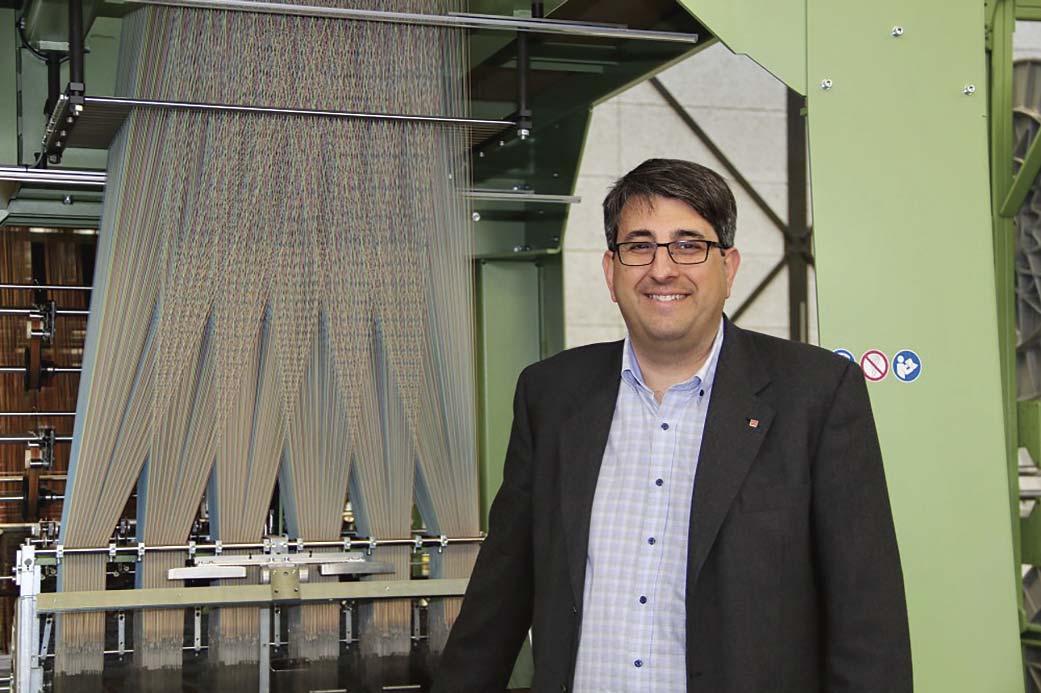
25 Personalia
Robert Reimann, long-term CEO of Jakob Müller Group,
ITMA 2023: Innovator Xchange to offer innovation insights from industry experts

The stage is set for ITMA 2023 to host a highly anticipated showcase of trendsetting textile and garment technologies when it opens in Milan on 8 June. Exhibition space grossing 220,000 square metres of the Fiera Milano Rho exhibition centre is fully booked.
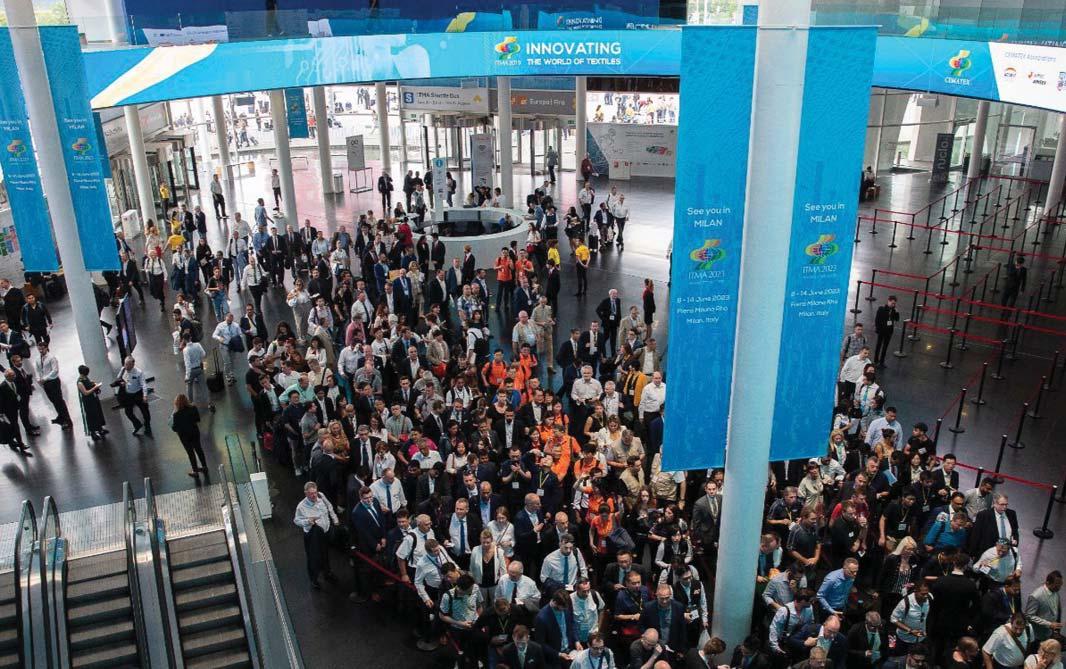
Mr Charles Beauduin, Chairman of ITMA Services, said: “Since the last ITMA exhibition in Barcelona in 2019, the world has changed drastically due to the coronavirus pandemic and geopolitical situation. Despite various disruptions, we are glad that space in ITMA 2023 is

fully booked. Companies are buoyant about the outlook of the market with most borders now fully open.”
The upcoming exhibition will feature over 1,600 exhibitors from 44 countries and a list of 100 companies are still waiting to be allocated space in their preferred sectors. There is a total of 20 product sectors covering the entire textile and garment manufacturing value chain, including textile composites.
Mr Ernesto Maurer, President of CEMATEX, said: “Sustainability is no longer just a buzzword; the industry has to move faster to adopt the sustainability agenda to secure the future of their business. During the pandemic, many of our members channelled their resources into R & D activities. ITMA 2023 is perfectly timed to offer our exhibitors an opportunity to showcase these new products and cutting-edge technology. If and when R & D is paired with sustainability efforts, this will be the
formula for success.’
“Our visitors can look forward to ITMA 2023 to preview the latest innovation. We hope that textile and garment manufacturers, brands and retailers will take this opportunity to meet at ITMA to source and collaborate with leading members of the textile industry. In addition, they can also gain insights into industry trends and developments at various complementary events.”
Innovator Xchange
ITMA 2023 will be accompanied by several activities spotlighting industry
26 PAKISTAN TEXTILE JOURNAL - February 2023 Fairs and Exhibitions
Mr Charles Beauduin, Chairman of ITMA Services.
Mr Ernesto Maurer, President of CEMATEX
innovation. Among the highlights is the Innovator Xchange which offers participants unique opportunities to gain insights from the winners and finalists of the ITMA Award, as well as exhibitors and industry experts.
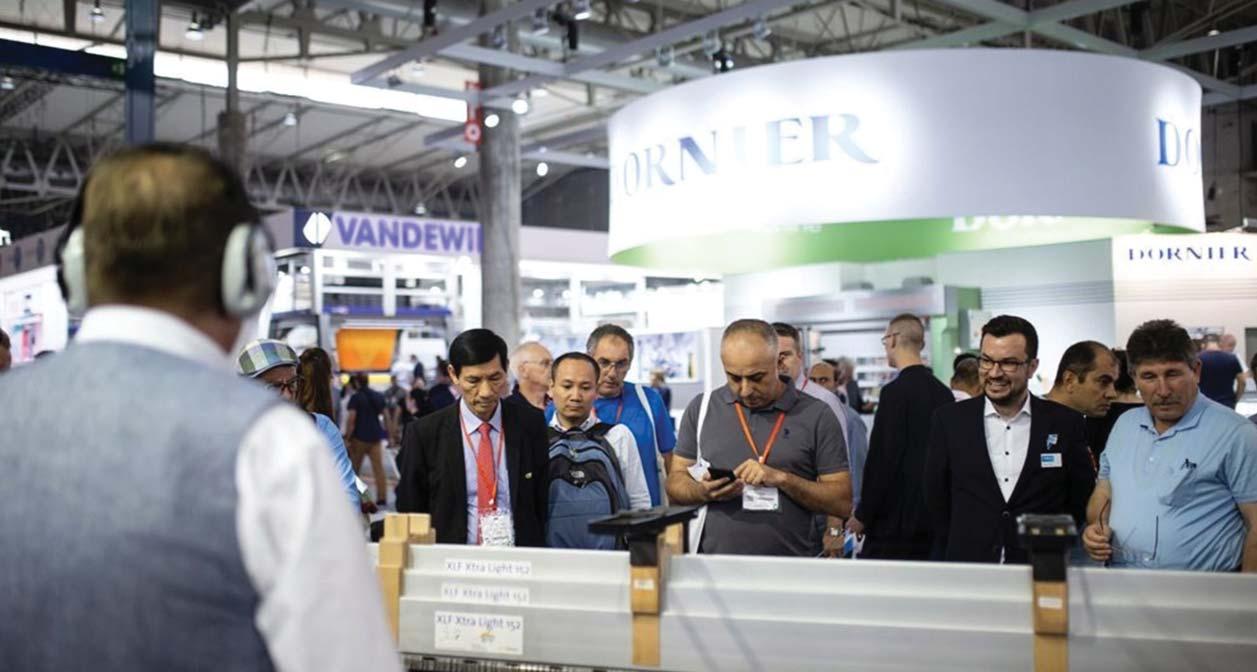
An industry expert has been invited for each of the four featured topics: automation and digital future, advanced materials, sustainability and circularity, and innovative technologies. The invited speakers are:
Mr German Garcia Ibañez, Head of Sustainable Raw Materials Circularity, Inditex. (Sustainability & Circularity)
Dr Jesse S. Jur, Director of Ecosystem Technology, Advanced Functional Fabrics of America. (Innovative Technologies)
Mr Kevin McCoy, Vice President made, New Balance Athletics.
(Automation & Digital Future)
Professor Parikshit Goswami, Professor of Technical Textiles, The University of Huddersfield.
(Advanced Materials)
The Innovator Xchange will be held from 9 to 13 June. Other highlights held alongside ITMA 2023, are the ITMA Sustainable Innovation Award, Innovation Video Showcase, ITMA forums and partner events.
For more information on the above events, please visit www.itma.com/events.
Online ITMA 2023 visitor registration

Visitors can enjoy early bird badge rates until 7 May 2023 when they register online. With the badge, they will be able to access the ITMAconnect platform from 8 March 2023 to plan their exhibition visit. Visitors can explore exhibitors’ digital spaces, chat and make appointments for stand visits. For enquiries, please email visitor@itma.com
About CEMATEX & ITMA
The European Committee of Textile Machinery Manufacturers (CEMATEX) comprises national textile machinery associations from Belgium, France, Germany, Italy, Netherlands, Spain, Sweden, Switzerland and the United
Kingdom. It is the owner of ITMA and ITMA ASIA. Considered the ‘Olympics’ of textile machinery exhibitions, ITMA has a 73-year history of displaying the latest technology for every single work process of textile and garment making. It is held every four years in Europe.
ITMA Services
Headquartered in Brussels with a subsidiary in Singapore, ITMA Services is the appointed organiser of ITMA 2023 and future ITMA branded exhibitions. It is managed by professionals with extensive experience in organising ITMA and other major trade exhibitions around the world. It aims to maintain and expand ITMA’s unique selling proposition and relevance to a global audience.
Fairs and Exhibitions 27
Online application for ITMA ASIA + CITME 2022 exhibition
Leading textile machinery manufacturers from around the world are invited to apply for space at the 8th combined ITMA ASIA + CITME exhibition to be held at the National Exhibition and Convention Centre, Shanghai from 19 to 23 November 2023.
The Combined show is the trendsetter textile and garment machinery technology platform where the industry converges every two years to explore fresh ideas, effective solutions and collaborative partnerships for business growth.
ITMA ASIA + CITME 2020 Facts
Live machinery demonstrations160,000 sqm platform of advances technologies.
1,237 exhibitors from all over the world.
65,000 visitorship from over 30 countries/regions.
More than 80% of the exhibitors were satisfied with the exhibition.
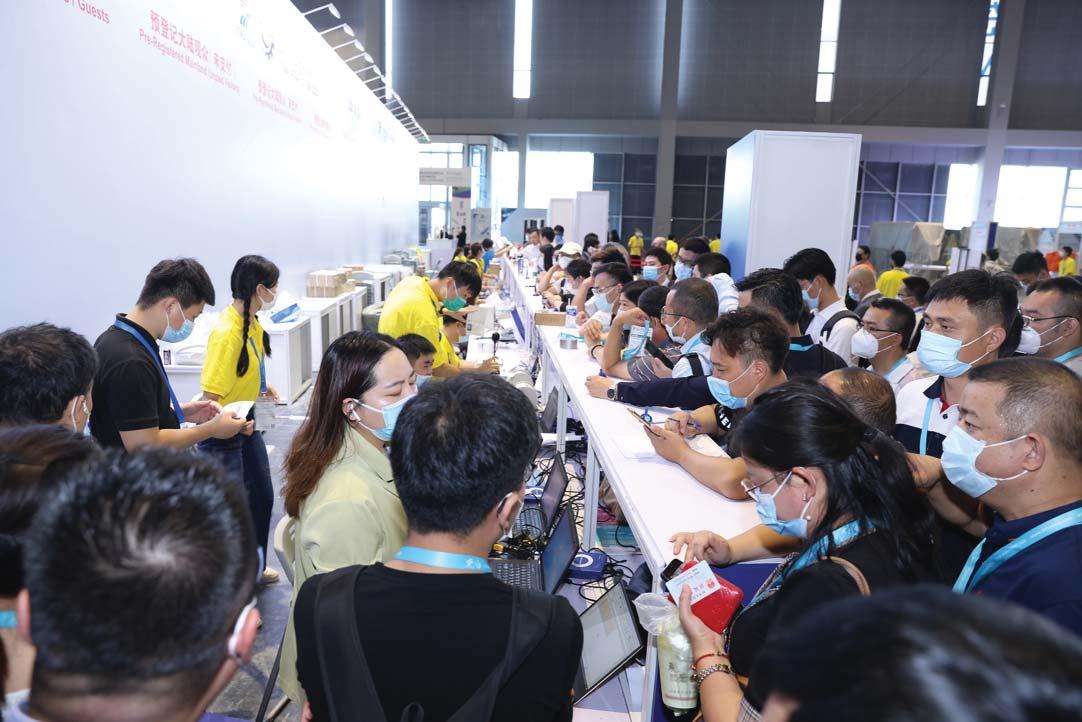
99% of the buyers will visit ITMA ASIA + CITME 2022 again. Strong support from all major trade associations around the world. China's GDP is projected to increase 5.2 percent in 2023, according to the
International Monetary Fund. With reopening of China, business communities are looking forward to face-to-face interactions at trade exhibitions - the ideal platforms to meet, greet and conclude deals.

28 PAKISTAN TEXTILE JOURNAL - February 2023
Fairs and Exhibitions
Naia™ from Eastman is back at Première Vision Paris with a new brand image
Attendees at this year’s Première Vision Paris witnessed debut of an updated Naia™ from Eastman that showcases a variety of possibilities for uncompromising, sustainable style for everyone.
“Sustainable style your way is the vision of Naia™ at its core,” said Carolina Sister Cohn, Eastman global marketing leader for textiles. “Naia™ has a unique, sustainable approach that results in topquality, innovative cellulosic acetate materials, including staple fibers and filament yarns. They aren’t just from nature but are for nature. And they are as sustainable as they are versatile and adaptable - to everyone everywhere in the world.”
With a portfolio of fibers that doesn’t compromise on luxury, comfort or ease of care, Naia™ circular materials provide a sustainable solution for tops, dresses, Tshirts, sweaters, comfy pants and more.
Show attendees experienced, touch and feel how Naia™ fibers enhance more than 250 fashion fabrics in many applications: ready-to-wear, casual wear, knitwear and sweaters.
The Eastman team was also available to discuss the results of an in-depth study Eastman conducted in January 2023 about professional womenswear among consumers in Europe and the U.S. The research includes perspectives on various topics, including insights on the versatility that women expect from professionalwear pieces, opportunities to differentiate clothing performance, and the need for more sustainable materials.
With Naia™, Eastman strives to create a fashion future where sustainable textiles are the best and easiest option. Naia™ Renew offers an innovative solution to one of the most pressing fashion issues: developing large-scale circularity.

Produced from 60% sustainably sourced wood pulp and 40% certified* recycled waste materials, Naia™ Renew creates the same top-quality fabrics as traditional Naia™ fibers, but with a reduced carbon footprint of around 35% and it’s available at scale.
All Naia™ products are produced in a safe and circular way, with solvents redirected back into the production process with a low tree-to-fiber carbon and water footprint.
With full traceability from tree to fiber, the wood used to produce Naia™ products is responsibly sourced from sustainably managed pine and eucalyptus forests. Naia™ is also TÜV AUSTRIAcertified as biodegradable and compostable.
Sustainable style your way
Naia™ stands out with the ideal ecoconscious ingredients for fashion and ready-to-wear brands all over the world. And because Naia™ fibers can be used alone or blended with other yarns, they offer almost unlimited possibilities for textural variety.
Naia™ filament yarns deliver excellent drape and silky-soft hand feel, are Hypoallergenic, and ensure natural breathability and a cool sensation on the skin; other benefits include technical performance as in dimensional stability as well as easy stain removal and odor management.
Naia™ staple fibers deliver enduring softness in fabrics for longer-lasting comfort. They are smooth and guarantee reduced pilling and a fuzz-free look — the ideal solution to deliver supreme softness and ease of care to perfectly blended knitwear.
*Mass balance approach

29 Feature
Innovative and versatile Naia™ fibers make sustainable style accessible to brands and inclusive for everyone.
The 2nd International Conference on Knowledge-Based Textile
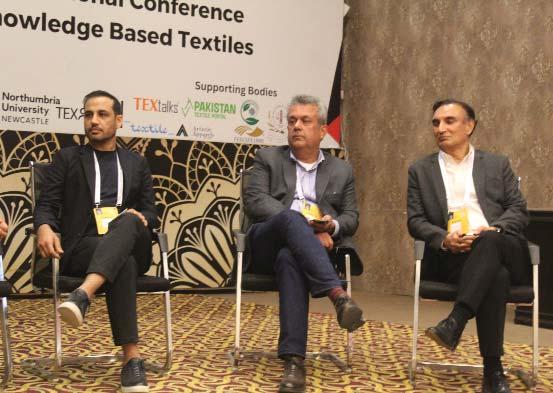
The 2nd International Conference on Knowledge-Based Textile took place at the National Textile University, Faisalabad on 14th-15th February 2023. The conference was organized by the School of Engineering and Technology under the Grand Challenge Fund Project (KnowTex) and co-organized by seven institutes and universities, including three national and four international co-organizers: Donghua University, China, University Technology Malaysia, Malaysia, Northumbria University, UK, and Taxonomy, UK, and at national level NED University, Karachi, BUITEMS Quetta, and Pakistan Circular Fashion Council.
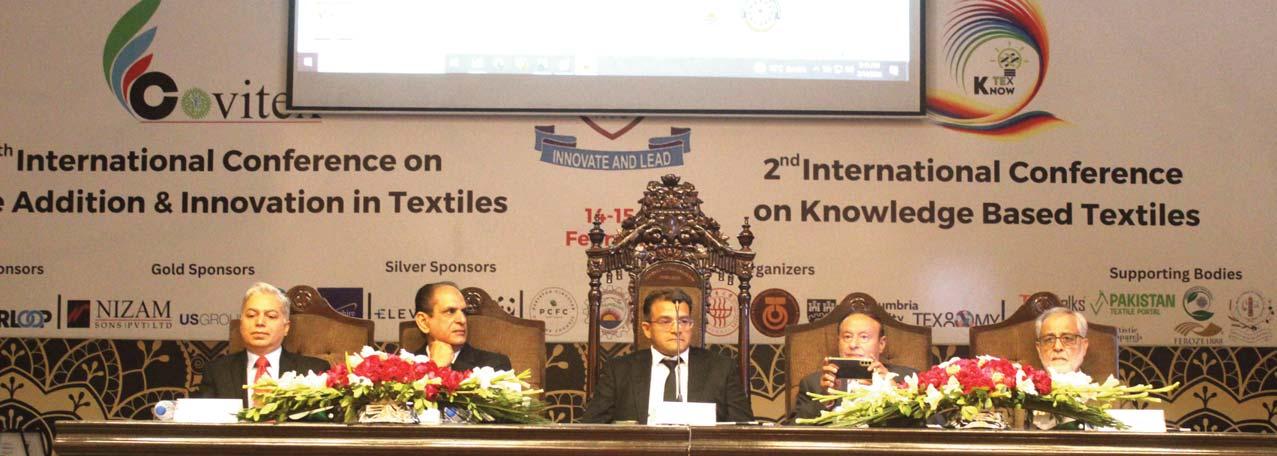
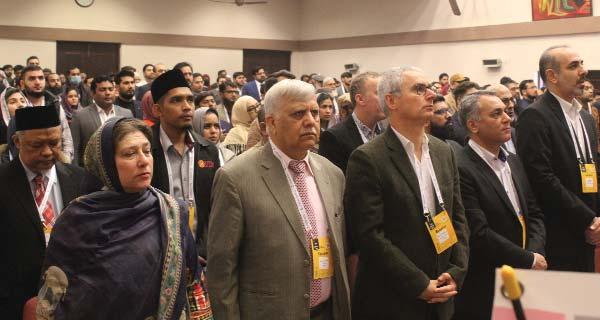
This conference was fully sponsored by several industries. Including Interloop Limited (Platinum Sponsor), Gold sponsors were Nizam Sons, US Denim, iTextiles (pvt) Ltd., and Sapphire Textile Mills Ltd., while WWF Pakistan, Mahmood Group and ELEVATE global were the Silver Sponsors. Media partners of this conference were TEXtalks and
Pakistan Textile Journal. There were also several supporting bodies like Pakistan Hosiery Manufacturers and Exporter Association (PHMA), Pakistan Readymade Garments Manufacturer and Exporters Association (PRGMEA), Faisalabad Chamber of Commerce and Industries (FCCI), Feroze 1888 and Artistic Apparels who contributed in the success of this conference.
The opening session of this conference was attended by a large gathering of professionals from all fields of life. Dr. Yasir Nawab, the Chairman of the conference, delivered the opening speech and welcomed all the attendees, including distinguished guests and speakers from around the globe. He also shared the current progress of KnowTex with the participants. Mr. Mujeeb Ullah Khan from i-Textiles delivered his talk about the industry perspective of Grand Challenge Fund (GCF).
Prof. Dr. Tanveer Hussain, Rector NTU gave a thorough insight of the opportunities and challenges for the textile industry of Pakistan in current modern era. Mr. Arif Qureshi, CEO of Nimra Textiles, and Chairman of PTEA was the chief guest of the opening ceremony. Mr. Khawaja Muhammad Amjad SVC, PHMA, Mr. Musharraf Iqbal Khawaja, Chairman PHMA Sialkot, Mr. Shaikh Shafiq Jhokwala ex. Chairman PRGMEA, Mr. Naveed Gulzar CEO Crescent Mills, Mian. Kashif Zia, Chairman of the Council of Textile-FCCI and Mr. Qamar Aftab CEO images Garment graced the opening ceremony as a guest of honor. Delegates from over 70 industries and 7 associations and chambers including APTMA, PHMA, PRGMEA, APBUMA, All Pakistan cotton power loom association, FCCI, and SCCI participated in opening day of the event. The opening session concluded with the distribution of shields and certificates among the delegations, associations, and industrialists.
30 PAKISTAN TEXTILE JOURNAL - February 2023
The inaugural session was followed by technical sessions, poster presentations, design competition and panel discussions, where participants shared their knowledge and experiences with the audience. MS and PhD students presented their research through the poster presentations.
First day of conference featured three technical sessions and two panel discussions. This conference was graced by a wide range of globally renowned textile experts from various countries such as Malaysia, France, the United Kingdom, the United States, Italy, Turkiye, China, Vietnam, Croatia, Estonia, and Iran.
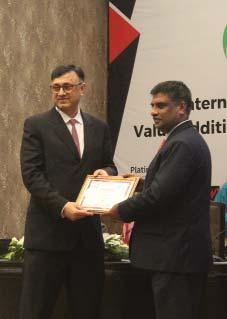
Pakistan Circular Textile Platform was also launched on the opening day of the event by chief guest Mr. Arif Mahmood Qureshi, Prof. Tanveer Hussain, Chairman (PCTP) in the presence of representatives
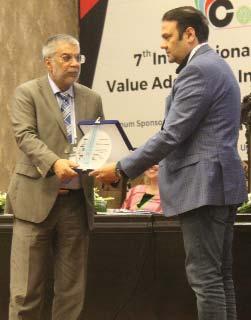
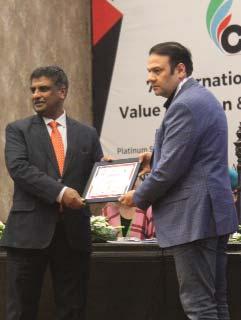
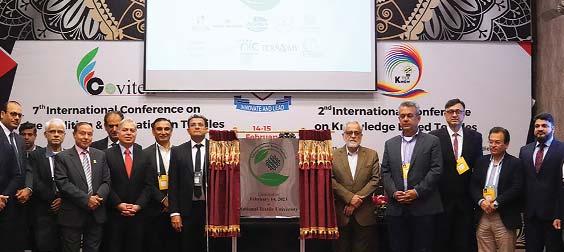
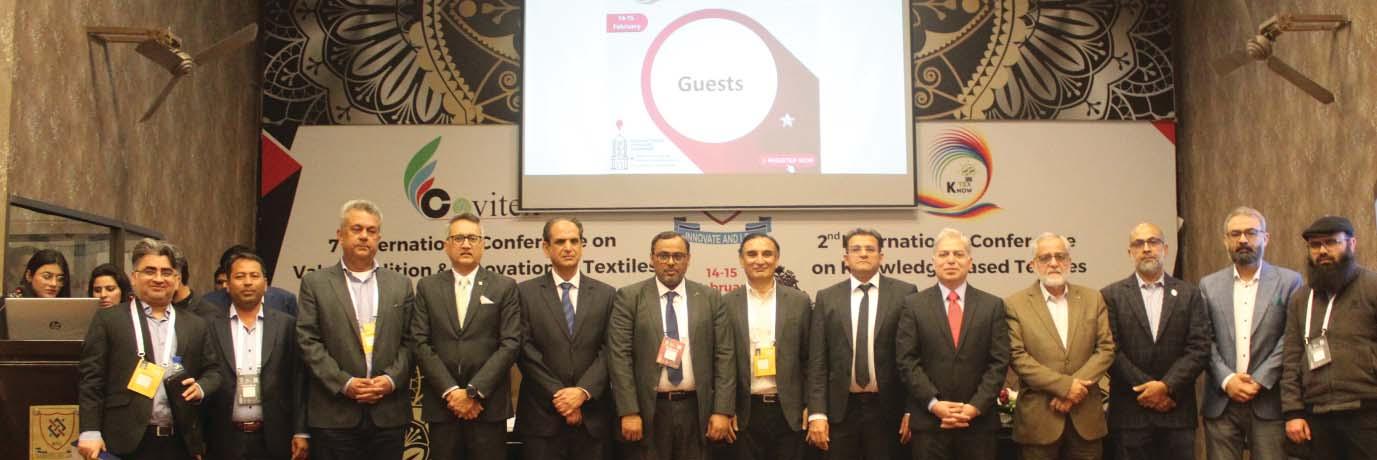
of all partners including iTextiles, Pakistan Circular Fashion Council, APTMA, Taxonomy, UK, PHMA, PRGMEA, Pakistan Textile Council, Pakistan Textile Journal, and Management Committee.
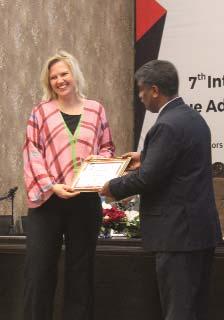
The conference was graced by a diverse group of speakers from different nationalities including Prof. Mohd. Sapuan Salit from the University of Putra Malaysia, Malaysia, Prof. Mat Uzir Wahit and Dr. Ilyas Bin Rushdan from the University of Technology, Malaysia, Prof. Alberto Saccavini from Blumine SRL, Italy, Dr. Shahid Rasul and Dr. John Arthur from Northumbria University Newcastle, UK, Dr. Aminoddin Haji from Yazd University, Iran, Prof. Raul Fangueiro from the University of Minho, Portugal, Mr. Jeff Wheeler from ELEVATE in the US, Ms. Ann Runnel CEO, Reverse Resources and Dr. Roohollah Bagherzadeh from Amirkabir University of Technology, Iran.
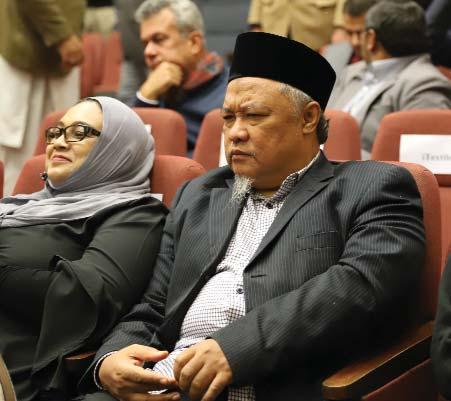

Furthermore, major textile universities across the country, such as UET Lahore, MUET Jamshoro, NED Karachi, BUITEMS Quetta, UET Taxila, GCU, Lahore, GCUF Faisalabad, GCUW, Faisalabad and PIFD Lahore, participated in the event.
The national speakers include Mr. Mujeebullah Khan, CEO of iTextiles, Ltd, Prof. Zeeshan Khatri from Mehran University, Jamshoro, Dr. Saif Ullah from the University of Engineering and Technology (UET), Taxila, Ms. Saleha Asif, founder of Purpose Quotient, Prof. Dawood Hussain (NED), Dr. Syed Zameer Ul Hassan from BUITEMs, Dr. Salma Farooq (NED), Dr. Allahdad (PIFD), Dr. Ayyaz Uddin, CEO of Pakistan Circular Fashion Council, Dr. Abdul- Sattar Nizami (GCU, Lahore), Prof. Zamir Ahmed Awan (GSRRA), Mr. Zaki Saleemi from CBL, Mr. Sohail Ali Naqvi from WWF Pakistan, Mr. Saqib Sohail from Artistic Milliners, and faculty members from NTU.
Conference
31
On the 2nd day of the conference the conference was conducted in dual mode both physical and online. The two online sessions were specially conducted with DHU China and Bursa Uludag university, Turkiye The following speakers from international and national institutes presented their research included: Prof. Fujun Xu, Dr. Xueping Zhang, Dr. Kai Ca, and Dr. Sagar Sarker from Donghua University, China, Ms. Eileen Ng from ITMA, Prof. Mehmet Karahan, Mr. Mazyar Ahrari, Mr. Abdullah Umur Güngör, Mr. Mehemet Kopar from Bursa Uludag University, Türkiye, Prof. Francois
Boussu, ENSAIT, France, Dr. May Kahoush, University of Borås, Sweden, Mr. Antoneta Tomljenovic, and Mr. Juro zivicnjak from University of Zagreb, Croatia, Dr. Pham Quoc Hoan, Vietnam Maritime University, Dr. Muhammad Haroon Rasheed from NTU, and Dr. Saira Faisal, from NED University.
On the sideline of conference three MoUs were also signed between the National Textile University and Amir Kabir the University of Technology, Iran, Fibrenamics, University of Minho, Portugal and Yazd University, Iran.
Closing Ceremony
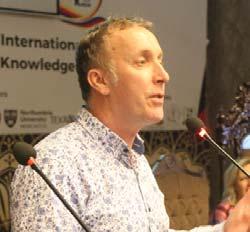
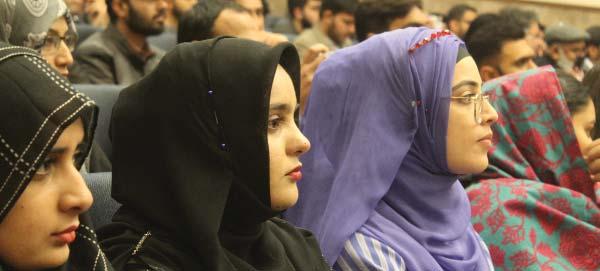
The Closing Ceremony of this conference was also a promising event and Mr. Arif Ehsan Malik, Ex Chairman APBUMA graced the ceremony as a chief guest. Mr. Bilal
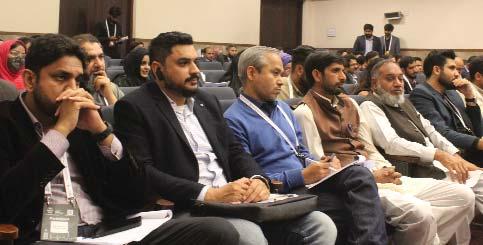
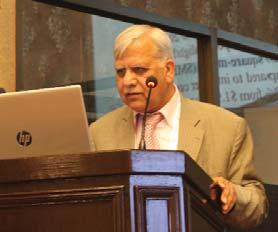

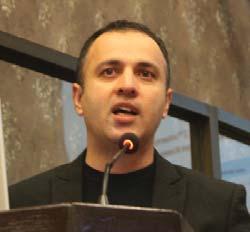
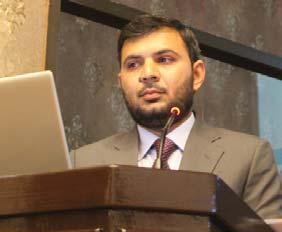

Jameel, Zonal Chairman APBUMA, Mr. Sheikh Mukhtar Ahmad, Chairman Sadaqat Limited, Mr. Shaikh Jawaad Shafiq, and Engr. Ahmad Hassan, FCCI were guest of honor of the event. Secretary Conference (Dr. Muzzamal Hussain) gave a closing speech at the 2nd International Conference Knowledgebased Textiles and thanked all the speakers, organizers, sponsors, sporting bodies and everybody involved in the conference. A Souvenir was presented by Dr. Yasir Nawab, Dr. Zafar Javed, and Dr. Sajjad Baig to Prof. Zahid Rizwan, and Mr. Muhammad Saqib for their services to National Textile University. On the closing ceremony members of Textile Industrial Advisory Board and Faisalabad Dyes and Chemicals Merchants Association were presented appreciation certificates for their invaluable services to School of Engineering & Technology. Souvenirs were also presented to all the organizers and co-organizers to make this conference a huge success.
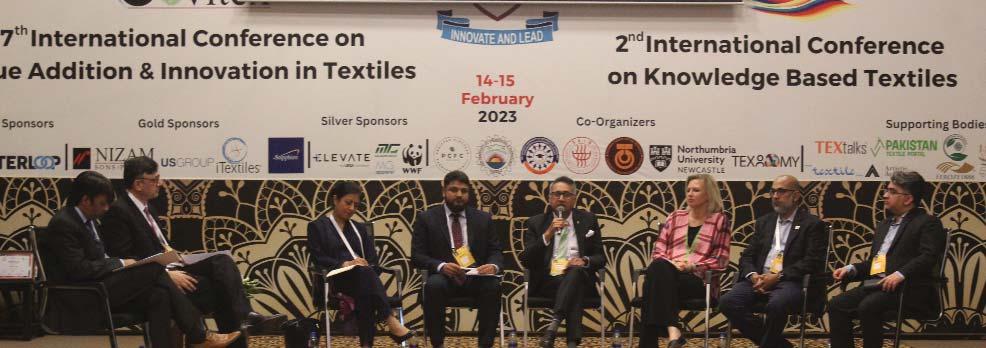
32 PAKISTAN TEXTILE JOURNAL - February 2023
Conference
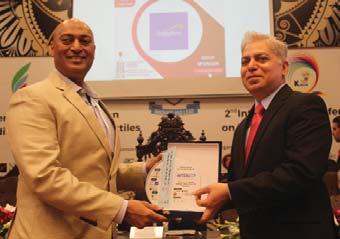
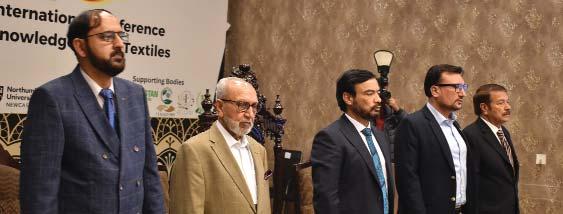
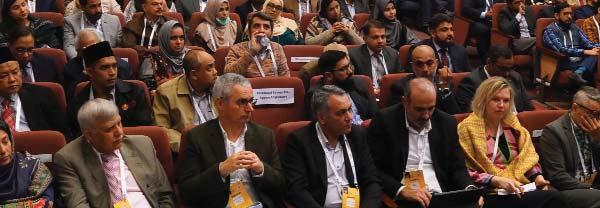
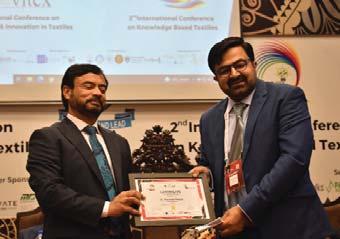
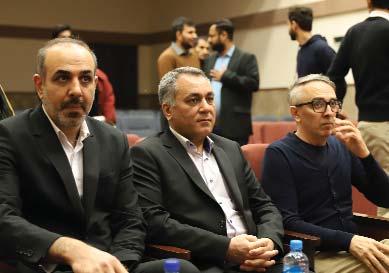

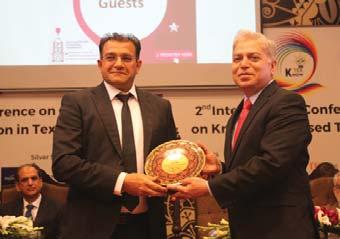
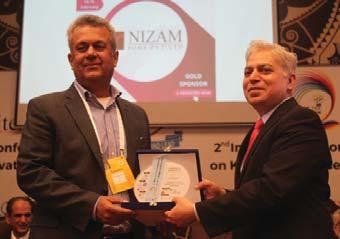
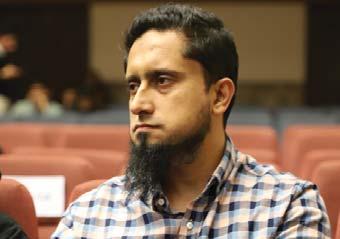

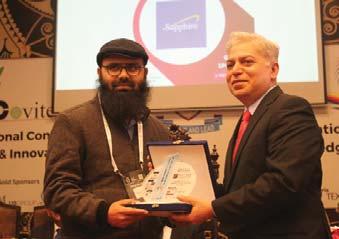

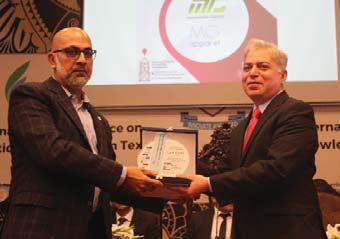
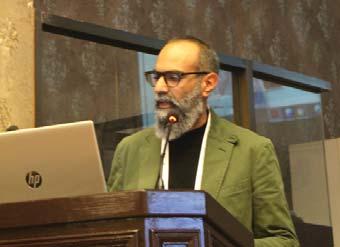
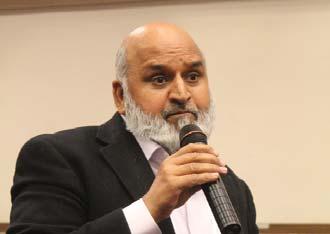
Conference 33
5th international conference on sustainable textile 2022
The 5th International Conference on Sustainable Textile 2022 aimed to provide a platform for researchers, practitioners, and stakeholders to exchange their ideas, knowledge, and experiences related to sustainable textiles. According to Prof. Dr. Muhammad Mohsin, Chairman, Department of Textile Engineering, the conference held on 1 December 2022 was attended by more than 2000 visitors from industry and academia.

The event highlighted various topics, including sustainable production and processing, sustainable materials and products, sustainable supply chain management, circular economy, and sustainable fashion. The conference also included keynote speeches, panel discussions, and paper presentations.
All Pakistan Textile Sustainability Student Competition 2022
The All Pakistan Textile Sustainability Student Competition 2022 was organized to promote awareness and understanding of sustainable practices among students. The competition involved students from various universities across Pakistan, who presented their research on sustainable textiles through posters and oral presentations. The competition was judged by a panel of experts from academia and industry.
The participation in the Textile Sustainability Student Competition 2022 was overwhelming, with more than 850 student projects received from various universities across Pakistan. The competition aimed to promote awareness and understanding of sustainable practices among students and encouraged them to develop innovative solutions to the challenges facing the textile industry.
After a rigorous screening process, 550 student projects were shortlisted for display and competition, representing 40 different universities from across the country. This high level of participation and interest in sustainable textiles among students is a positive sign for the future of the industry in Pakistan.
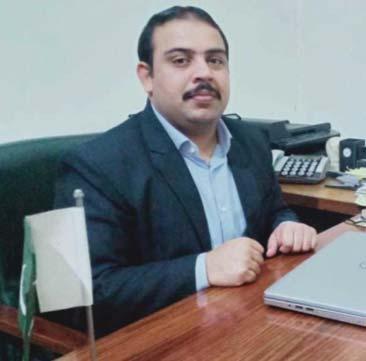
The shortlisted projects covered a diverse range of topics, including sustainable materials, sustainable production processes, and sustainable supply chain management. The projects were judged by a panel of experts from academia and industry, who evaluated them based on their relevance, innovation, and impact on sustainable textile practices.
The Textile Sustainability Student Competition 2022 provided an excellent platform for students to showcase their skills and knowledge, interact with industry experts, and learn from their peers. The competition also helped to foster a culture of innovation and sustainability in the textile industry and contributed to the broader efforts towards sustainable development.
Inauguration of Textile Sustainability Working Group and Training Room
The Physical Inauguration of “Textile Sustainability Working Group and Training Room” aimed to establish a forum for academia, industry, and other stakeholders to collaborate on sustainable textile practices. The working group will conduct research, provide training, and develop policies related to sustainable textiles. The training room will serve as a platform for workshops, seminars, and training sessions related to sustainable textile practices.
34 PAKISTAN TEXTILE JOURNAL - February 2023
Prof. Dr. Muhammad Mohsin, Chairman, Department of Textile Engineering.
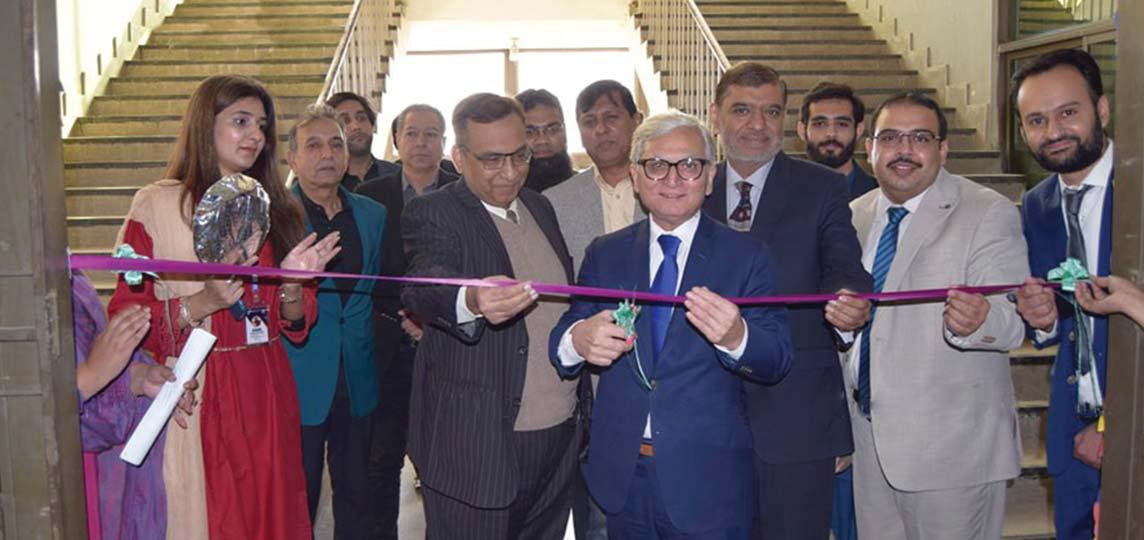
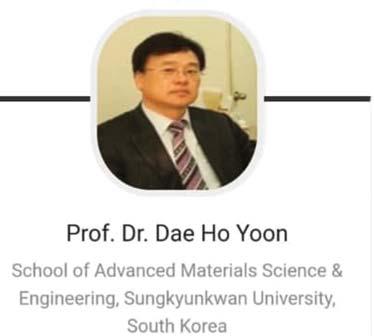
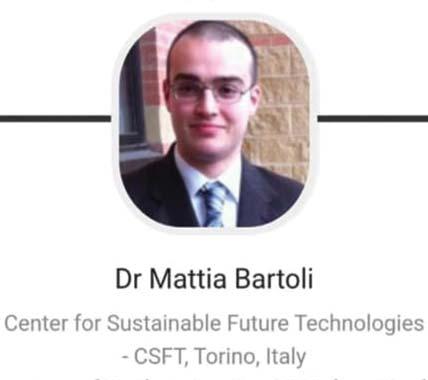



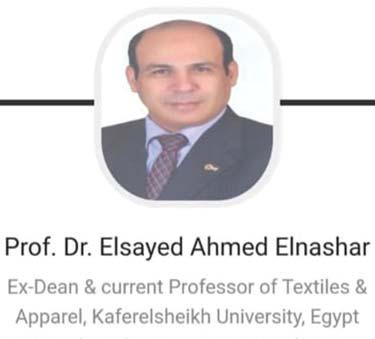

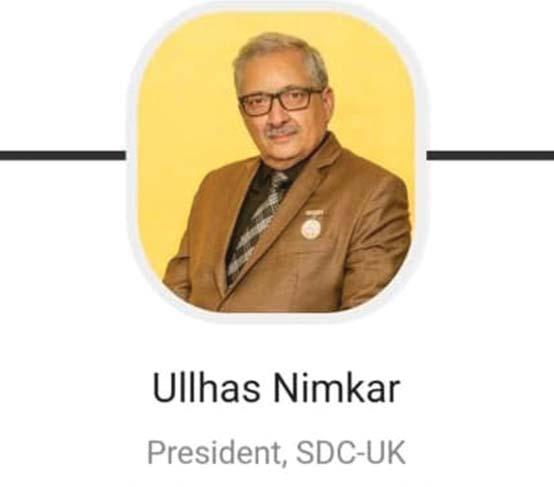

35
The physical inauguration of the "Textile Sustainability Working Group and Training Room" was a significant milestone for the Department of Textile Engineering, UET Lahore, Faisalabad Campus, and its collaborators. The inauguration was carried out by representatives of the eight founding members of the group, who expressed their gratitude towards the department and UET Lahore for taking the initiative to establish this working group.
The Textile Sustainability Working Group and Training Room has the capability to provide both online and physical training and recording, making it a versatile platform for collaborative efforts towards sustainable textile practices. During the inauguration, several possible collaborations, including joint projects, working, and training, were discussed among the founding members, highlighting the potential for further advancements in sustainable textile practices in Pakistan.
The Textile Sustainability Working Group was formed in May 2021 and has received a huge positive response, with eight founding members and more than 280 industry members already joining the
group. This working group is a significant step towards promoting sustainable textile practices in Pakistan and contributing to global efforts towards sustainable development.
It is worth mentioning that the Department of Textile Engineering, UET Lahore, Faisalabad Campus has successfully organized five international textile conferences in the last five years. This achievement reflects the department's commitment to promoting knowledge exchange and collaboration in the textile industry and highlights its leadership role in advancing sustainable textile practices in Pakistan.

The participation of more than 15 international speakers from various countries added significant value to the three mega events of textile sustainability organized by the Department of Textile Engineering, UET Lahore, Faisalabad Campus, Archroma, SDC-UK, and other collaborators. These speakers provided their expertise and insights on the latest developments and innovations related to sustainable textiles.
The speakers came from a diverse range of countries, including the USA, UK, Canada, Italy, Germany, Korea,
Egypt, Spain, and Malaysia, highlighting the global significance of sustainable textile practices. Their technical talks covered a wide range of topics, including sustainable production processes, circular economy, sustainable materials, and sustainable fashion.
The participation of these international speakers not only enriched the knowledge and expertise of the attendees but also helped to establish important connections between academia and industry. The events provided a unique opportunity for participants to learn from global leaders in sustainable textile practices and to exchange ideas and knowledge with peers from different countries and backgrounds. The events were a significant step towards promoting sustainable textile practices in Pakistan and contributing to global efforts towards sustainable development.
Pakistan Textile Journal served as the media partner for these events, providing coverage and publicity for the events to a wider audience. Overall, these events aimed to promote sustainable textile practices in Pakistan and contribute to the global efforts towards sustainable development.
36 PAKISTAN TEXTILE JOURNAL - February 2023 Conference
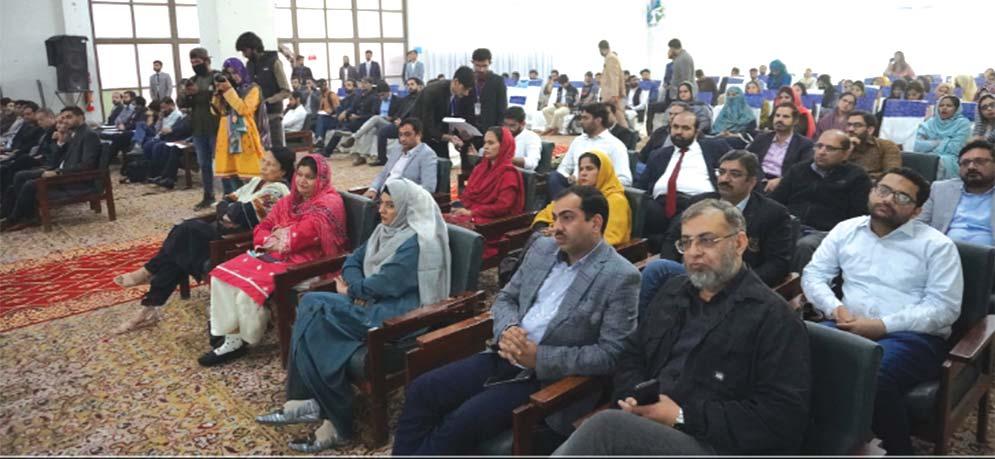
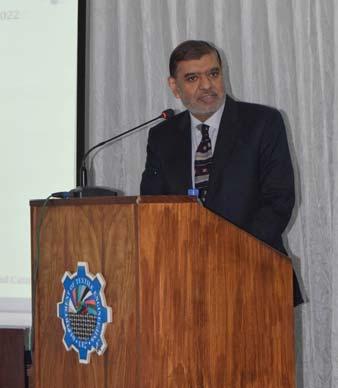



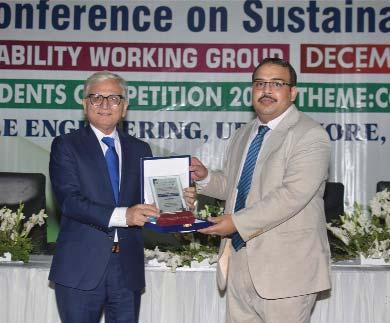
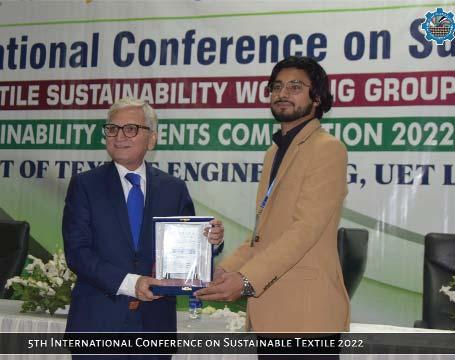
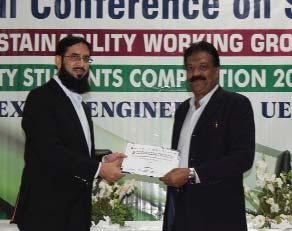
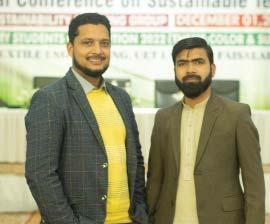
Conference 37
Testa Group has been active in the design and production of customized machines for more than fifty years. The company specializes in the inspection, automatic cutting and packing of fabrics and technical textiles.
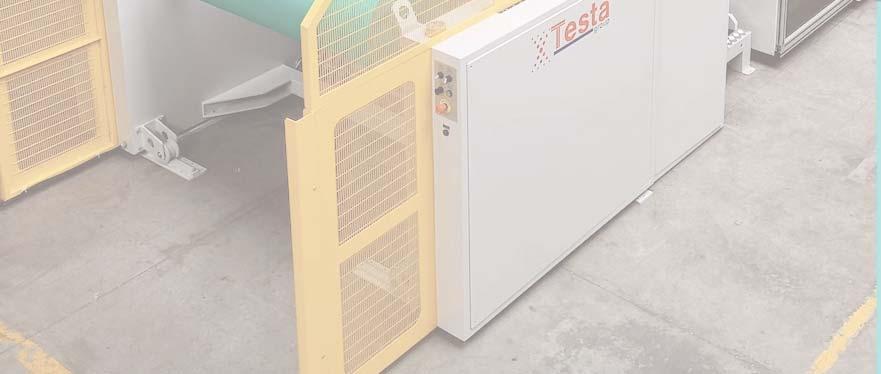
Dr ssa Annalisa Testa, CEO of the Group says: “We design innovative technologies and solutions, specific for each material. This way we optimize the process efficiency, reduce time and energy costs. Our efforts are focussed on industry 4.0 and increasingly geared towards sustainable production. All our machines are certified within the limits of the European Machinery Directive in terms of safety, performance assurance and sustainable development, including MID certification and the Green Label.”
Take for example, Candiani SpA, a leading denim manufacturer based in Milan has been working with TESTA Group since 2003. Dr. Testa says that most important aspect of any sustainable business is to ensure quality control and reduce second choice and waste in general. The new SuperTestaRossa is a smart way to detect the defects within the fabrics and software really user friendly.
This is completely new way of detecting what is wrong with the fabrics
and with this new technology one can manage to improve first quality by more than 2 percent, therefore, for example, when one produces roughly 20 million yards a year of denim, 2% makes a significant difference.
Our family of SuperTestaRossa machines for optimized cutting plane reaches exceptional cutting speeds: up to 300 m per minute, for a daily productivity threshold of between 65,000 and 90,000 m. The ideal solution for cutting large quantities of fabric, aiming at an optimized management of the inspection, and cutting phase in order to obtain a
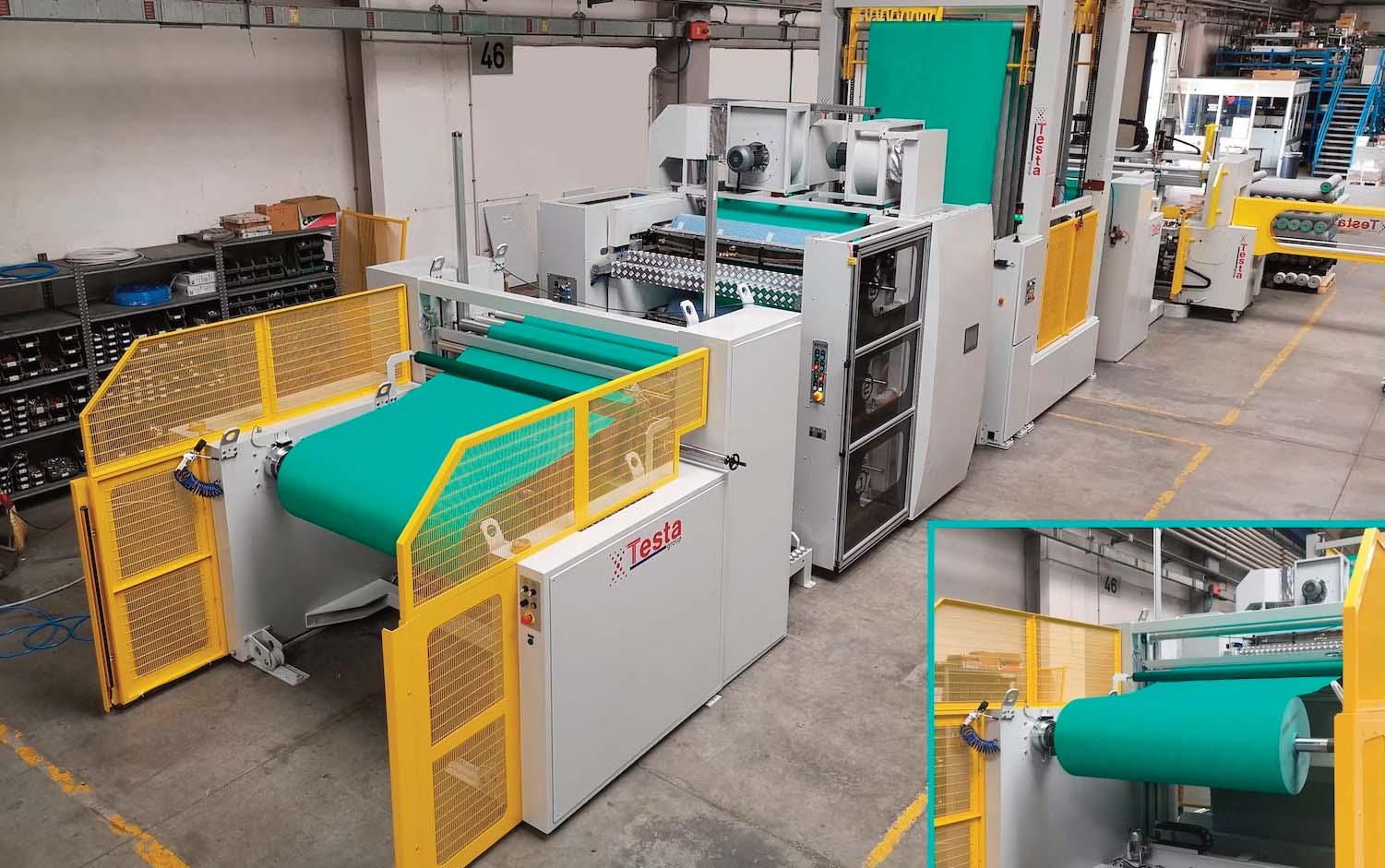
greater number of first quality cuts, contain the amount of production waste and reduce the number of machines involved in the process of packaging of the rolls.
A lot of customers in Pakistan are using TESTA Packing Machines since ages. TESTA Auto Cutting Machines are in operation in Nishat and Artistic Milliners.

Similarly, our inspection machines are equipped with software for acquiring data on defects present in the individual rolls, which are communicated directly to the customer's ERP system. The software allows the production of detailed reports showing the characteristics of each roll, ensuring an optimal level of traceability of production data. Afterwards, we focus on the optimization of the cut, considering the mapping of the defects of the fabric lot, the optimization criteria are chosen by the customer and the points where fabrics are cut are precisely to ensure the least number of cuts to discard the fabrics.
Lastly, the packaging of the rolls with plastic films, final labelling of the rolls and segregation of the rolls in the final destinations.
Testa is represented in Pakistan by Rahman Brothers. (Saqib Habib Khan)
38 PAKISTAN TEXTILE JOURNAL - February 2023
“Testa Group stands for innovation, efficiency and sustainability,” says Dr. Annalisa Testa, CEO
Dr. Annalisa Testa, CEO, TESTA Group
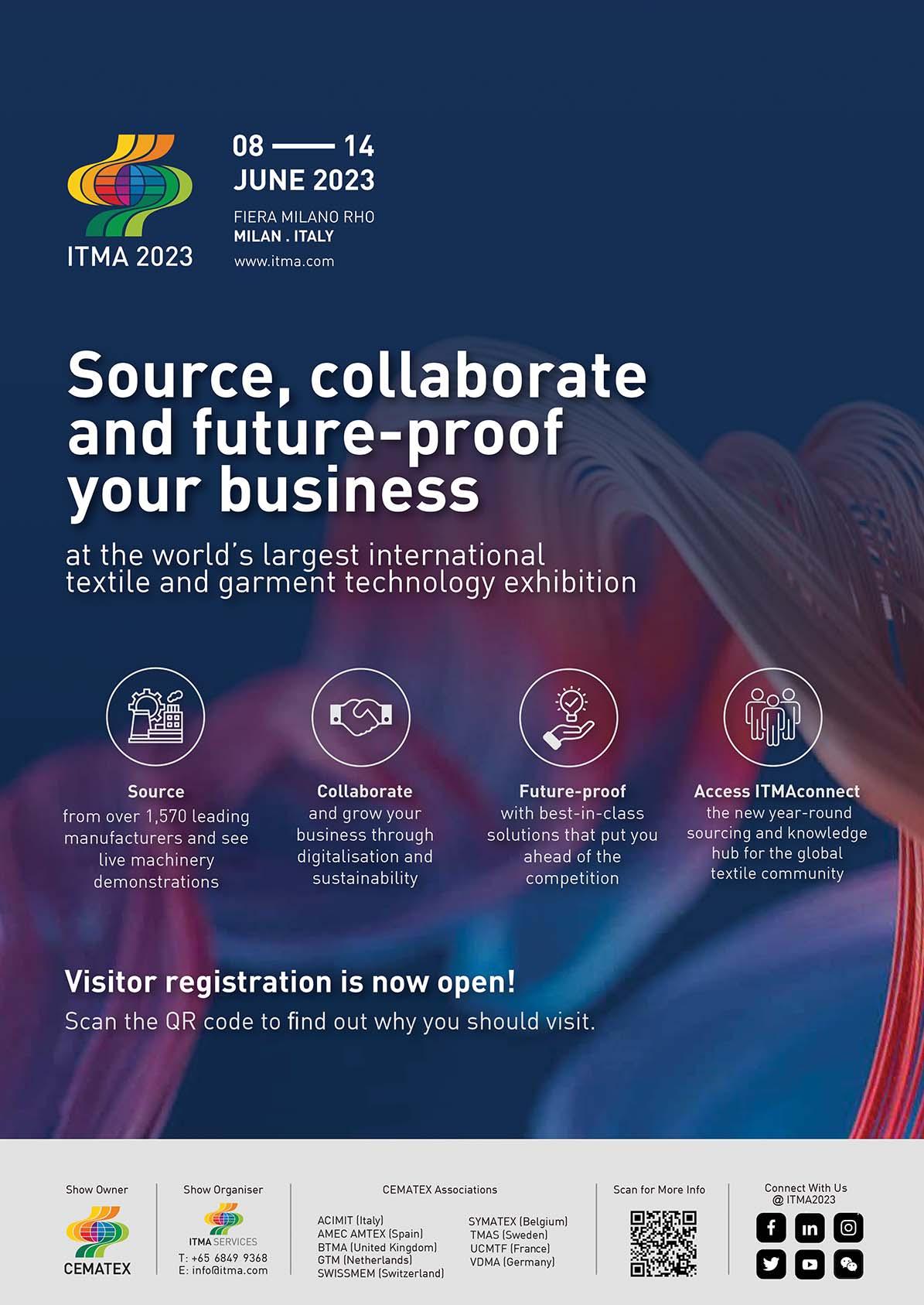
High-performance insulation for clothing and work safety
Highly concentrated aerogel fabric available by the meter is soft, easy to process and only 1 to 3 mm thick. Unique processing of NASA insulation on a textile medium.
Comprised of up to 99.8 percent air, aerogel is the lightest solid in the world. But that is not all. The material, which is also called “frozen smoke” due to its appearance and physical properties, exhibits extremely low heat conductivity which exceeds other insulations many times over. This is why NASA has already been using aerogel for aerospace projects for many years. Despite this, it has not been possible to bind the material to textiles in a high concentration and enable straightforward further processing over the roughly 90-year history of the material...until now. Outlast Technologies GmbH has developed an innovative process for permanently adhering large amounts of aerogel to different media, like nonwoven fabric, felt and composites materials. Their original properties are retained throughout, so they can easily be further processed using conventional production methods. What is special here, is that the fabrics sold under the Aersulate name are only 1 to 3 mm thick and achieve very high insulation values
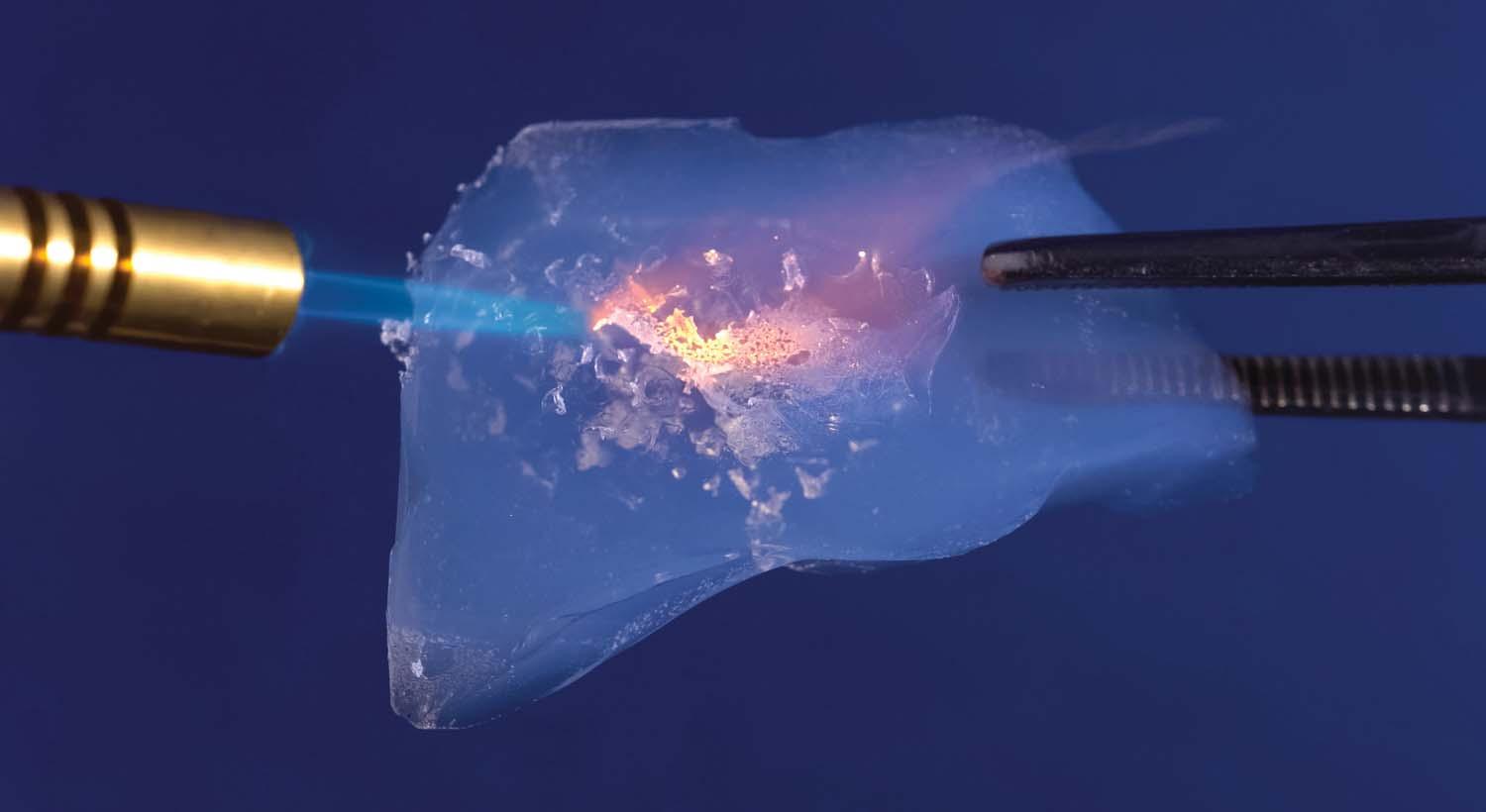
which are largely retained even under pressure and in moist conditions. Despite their high performance, they are still soft and can be used for shoes, clothing and work safety products, as well as for sleeping bags and technical applications. A patent for the process developed by Outlast has already been filed.
“Thanks to its extraordinary physical properties, NASA has already been using aerogel for many years,” remarked Volker Schuster, Head of Research and Development at Outlast Technologies. “For example, for the insulation of its Mars rovers and for capturing dust from the tail of a comet during the Stardust mission,” he continued. Since the development of aerogel by American scientist and chemical engineer Samuel Stephens Kistler in 1931, no-one had been able to apply the versatile material to textiles in large amounts without changing their original properties, despite intensive research. This means that the products were often not only very rigid,
“With the broad range of possible textile medium materials, Aersulate is suitable for all applications requiring high thermal resistance on the one hand, where only a little space is available and both compression and moisture can be expected on the other.” – Volker Schuster, Head of Research and Development at Outlast Technologies.
but made processing with conventional production methods impossible due to their high degree of dust abrasion. With its newly developed Aersulate technology first presented in June 2022, though, the specialist in textile thermoregulation located in Heidenheim, Germany is now writing insulation history.

40 PAKISTAN TEXTILE JOURNAL - February 2023
Aerogel is also called “frozen smoke” due to its appearance and physical properties.
High-performance insulation just 1 to 3 mm thick

“The consistency of aerogel can be best described as liquid dust particles which spread uncontrollably throughout a room within seconds thanks to their minimal thickness,” explained Schuster. “This is why processing is a big challenge.” Despite these difficulties, Outlast Technologies has managed, after a development period of around five years, to bring an innovative process involving the adhering of aerogel between multiple layers of material to market maturity. Depending on the area of application, nonwoven fabric, felt and different composite materials can be used as the media. What is special here is that the properties of the respective textiles are not adversely affected by the Aersulate technology, meaning that they can easily be further processed with conventional means and under industrial conditions despite their acquired thermal properties.
As a silicate-based solid, aerogel is obtained from natural quartz sand, yet exhibits a density over 1,000 times lower than glass manufactured from the same raw material. The extraordinary thermoinsulating properties of the material are thanks to its extremely porous structure, which enables it to be composed of up to 99.8 percent air. “One liter of aerogel weighs just 50 g,” explained Schuster. “Just 10 g of the material has the same surface area as a soccer field, though.” Thanks to these properties, Aersulate textiles exceed all other previously known insulation materials in terms of
performance, despite the fact that they are only 1 to 3 mm thick. Tests carried out by the German Institute for Textile and Fiber Research in Denkendorf (DITF) using the Alambeta method showed that the thermal resistance of an Aersulate fleece is more than double that of a conventional fleece of the same thickness. Add to this the fact that the thermo-insulating properties of Aersulate products remain high despite pressure and wetness, while they decrease enormously with other conventional materials like felt and polyurethane foam (PU) under these conditions.
Work safety and functional clothing with Aersulate
Thanks to the textile medium, thin Aersulate products are especially suitable for the shoe and clothing industry, as well as all areas of work safety. The user
benefits from different properties, depending on the intended use. “With a glove made of Aersulate just 1 mm thick, you can put your hand into boiling water without being scalded, for example,” explained Schuster. “The material’s extremely hydrophobic properties play quite literally into our hands here.” In the case of knee patches on work and functional pants, as well as shoes and soles, on the other hand, the material properties also become relevant when compression occurs. This is because the thermo-insulation properties of other materials would be reduced little by little due to moisture from the outside and sweat from the inside on the one hand, and by the continual influence of body weight on the other.
In addition to the human body, luggage and technical devices can also be protected from extreme temperatures and the effects of weather with Aersulate. For this purpose, corresponding cell phone or equipment pockets could be sewn into garments, for example, to maintain their battery life even at very cold outside temperatures and to safeguard the devices from overheating in case of high heat exposure. “With the broad range of possible textile medium materials, Aersulate is suitable for all applications requiring high thermal resistance on the one hand, where only a little space is available and both compression and moisture can be expected on the other,” said Schuster in summary.
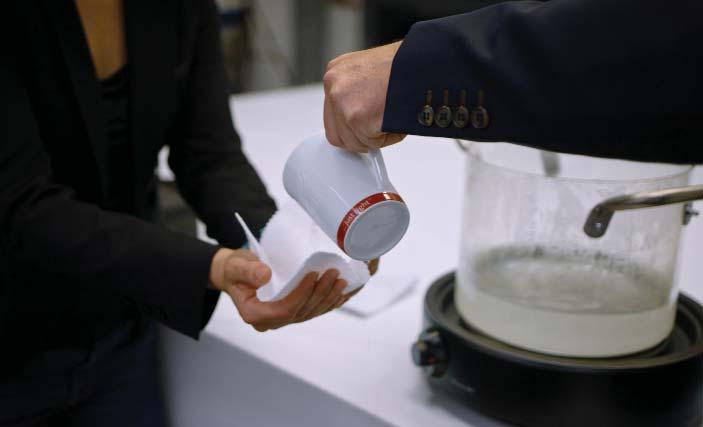
41 Interview
Aersulate textiles exceed all previously known insulation materials in terms of performance, and they do it despite being considerably thinner at only 1 to 3 mm.
One layer of Aersulate just 1 mm thick easily protects the skin from being scalded by boiling water.
U.S. Cotton Trust Protocol
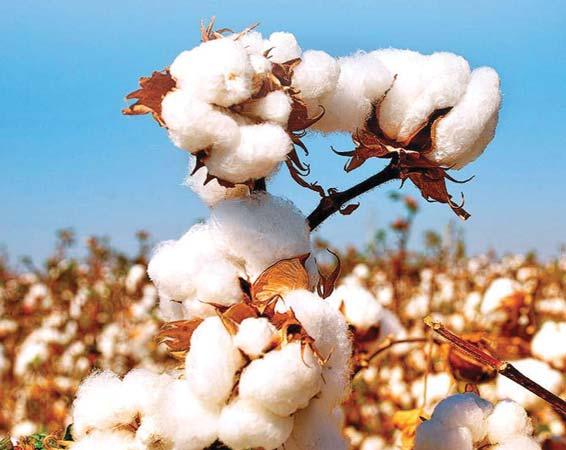


The U.S. Cotton Trust Protocol reminds growers to enroll and complete data entry for their 2022 crop as the March 31, 2023, deadline quickly approaches.

Launched in 2020, the Trust Protocol was designed to set a new standard in more sustainably grown cotton. Producers enrolled in the Trust Protocol are eligible to participate in the Climate Smart Cotton Program, which will provide technical and financial assistance to 1,650 U.S. cotton farmers with acres available for Climate Smart practice changes. Growers also receive personalized data that can be used to help improve their sustainability efforts and yield, as well as gain closer communication with their end customer.
“Sustainably grown cotton that is backed by verified data and measurable outcomes is highly sought after by brands and retailers,” said Ted Schneider, a Trust Protocol grower from Louisiana. “While grower participation in the program has doubled since the program’s pilot year, we need more cotton growers to enroll and complete their data entry before the deadline so we can meet the increased demand for sustainably grown U.S. cotton.”
The Trust Protocol has welcomed more than 1,100 brand, retailer, mill and manufacturer members, including Levi
Strauss & Co., Old Navy, Gap, American Eagle Outfitters, Inc., and J.Crew. With increased scrutiny on sustainability, the program provides access to more sustainably grown cotton for brands and retailers, and science based, data-led assurances that consumers can have confidence in — something that has been lacking in the industry to date.
Data entered is secure and remains confidential, used only in aggregate form. Crop consultants can also be authorized to enter information on the grower’s behalf. Additionally, the John Deere Operations Center can prepopulate up to 40% of the data needed to complete the Fieldprint analysis for those who utilize the platform.
42 PAKISTAN TEXTILE JOURNAL - February 2023 Spinning
Review
Meridian Mill House adds Mercerized Merino Wool yarn to family of luxury wool products.
The samples of Mercerized Merino wool can be seen at Stitches West, March 2-5, Booth 715, in Sacramento CA.
Meridian Mill House will launch a new line of luxury yarns and wool top/roving, all made from Mercerized Merino wool at the upcoming Stitches West fiber craft show in Sacramento, CA. A new addition to our luxury wool offerings, our Mercerized Merino wool is grown, cleaned and spun in the USA.
Meridian Mill House will have samples on hand in our booth (715) at the show, which takes place March 2-5 at the SAFE Credit Union Convention Center in Sacramento, CA.
Our new Mercerized Merino wool yarns are named after Lake Lure, a gorgeous recreational landmark near
Asheville, North Carolina, in the Blue Ridge Mountains. Our Lake Lure 100% Mercerized Wool yarns are available in three weights: Lake Lure Fingering (450 yards/100 grams); Lake Lure DK (270 yards/100 grams) and Lake Lure Worsted (215 yards/100 grams).
Mercerized Wool has many unique qualities, including a super smooth hand similar to cashmere that is soft enough for garments worn directly against the skin. Other qualities include a stronger tensile strength than regular wool, noticeably increased brightness and luster, enhanced dyeability, and Mercerized wool can be laundered without worry. In addition, all of these characteristics are permanent to washing, dry cleaning and dyeing.
The versatility of Mercerized Merino wool makes it ideal for a wide range of new, value-added projects and products. The increased softness and brightness makes it the ideal fiber for blending with luxury fibers such as mohair, cashmere or silk.
Undyed yarn spun from the Meridian Mill House, which opened in 2020, is available by the skein through the Meridian Mill House Yarn Shop in Ranlo, North Carolina, for craft dyers. It is also available through Meridian Specialty Yarn Group’s Valdese, North Carolina, yarn processing plant for apparel brands and manufacturers.
According to Hannah Everhart, Sales Representative for Meridian Mill House, “Quality and sustainability are increasingly top of mind concerns for craft yarn dyers around the world and we are immensely proud to be one of the few mills that fully addresses both requirements.
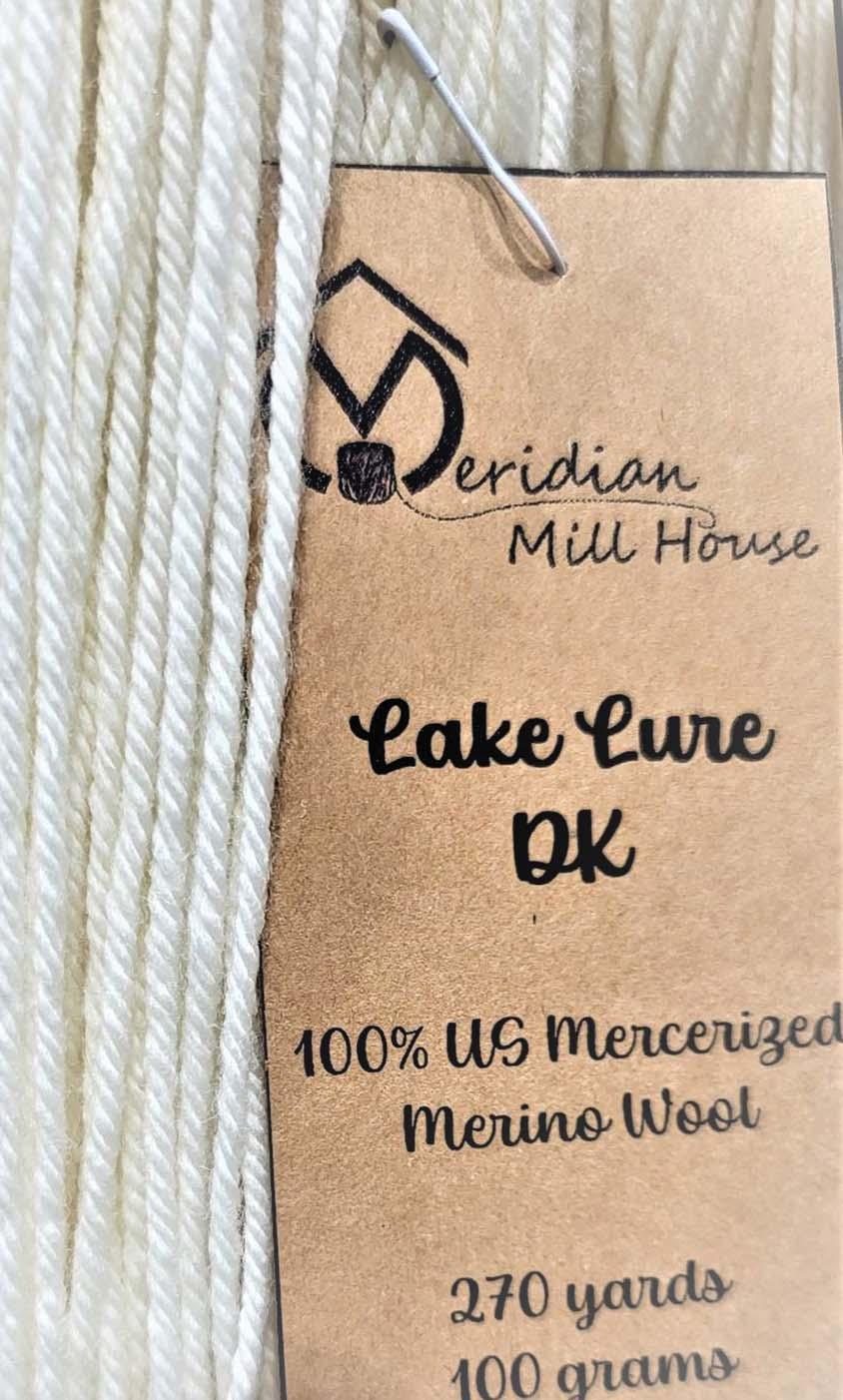
Review 43
Spinning
Uster Tester – The foundation of global textile quality
Assessing textile quality was once a matter of opinion. Today it’s a matter of fact – objective, repeatable and universally understood. Quality now has numerical values, as the basis for trading, pricing and ultimately consumer satisfaction. And this year marks the 75th anniversary of the pioneering innovation which fostered that change – and created the global quality environment of textile production in the 21st century.
It all started in the early 1940s, with a request from a group of spinners in Switzerland. They wanted a reliable way of measuring textile slivers, rovings and yarns for ‘evenness’. This property was –and still is – seen as critical to the uniformity, consistency and processability of materials, and the ultimate
determinant of value and quality. The first instrumental method for evenness testing was developed for these spinners by Zellweger Uster, at that time a company active in the emerging field of electronics.
That company is known today at Uster Technologies, and it’s fair to say that every textile producer in the world knows the name of its most famous product, the Uster Tester. In fact, the word ‘Uster’ alone is used by textile mills to signify both the process of evenness testing, and the instrument itself. In the past 75 years, the Uster Tester has been developed and extended apace with fastmoving technological innovations. Measurement capabilities have extended with specially-developed sensors, and ingenious software. Connectivity with
other Uster systems at every stage of processing has created a unique Quality Management Platform for the entire mill.
Setting global standards
The original tester is displayed in a museum on the top floor of Uster headquarters. It is, or course, manually operated, and outputs test results as a line on graph paper. This first venture into testing was based on a capacitive sensor and simple electronics. It was the precursor for gradual development stages over the next two decades, leading to the emergence in the 1970s of the name ‘Uster Tester’ and its rapid popularity across the textile world.
A key aspect for those early Swiss spinners was to learn more about their
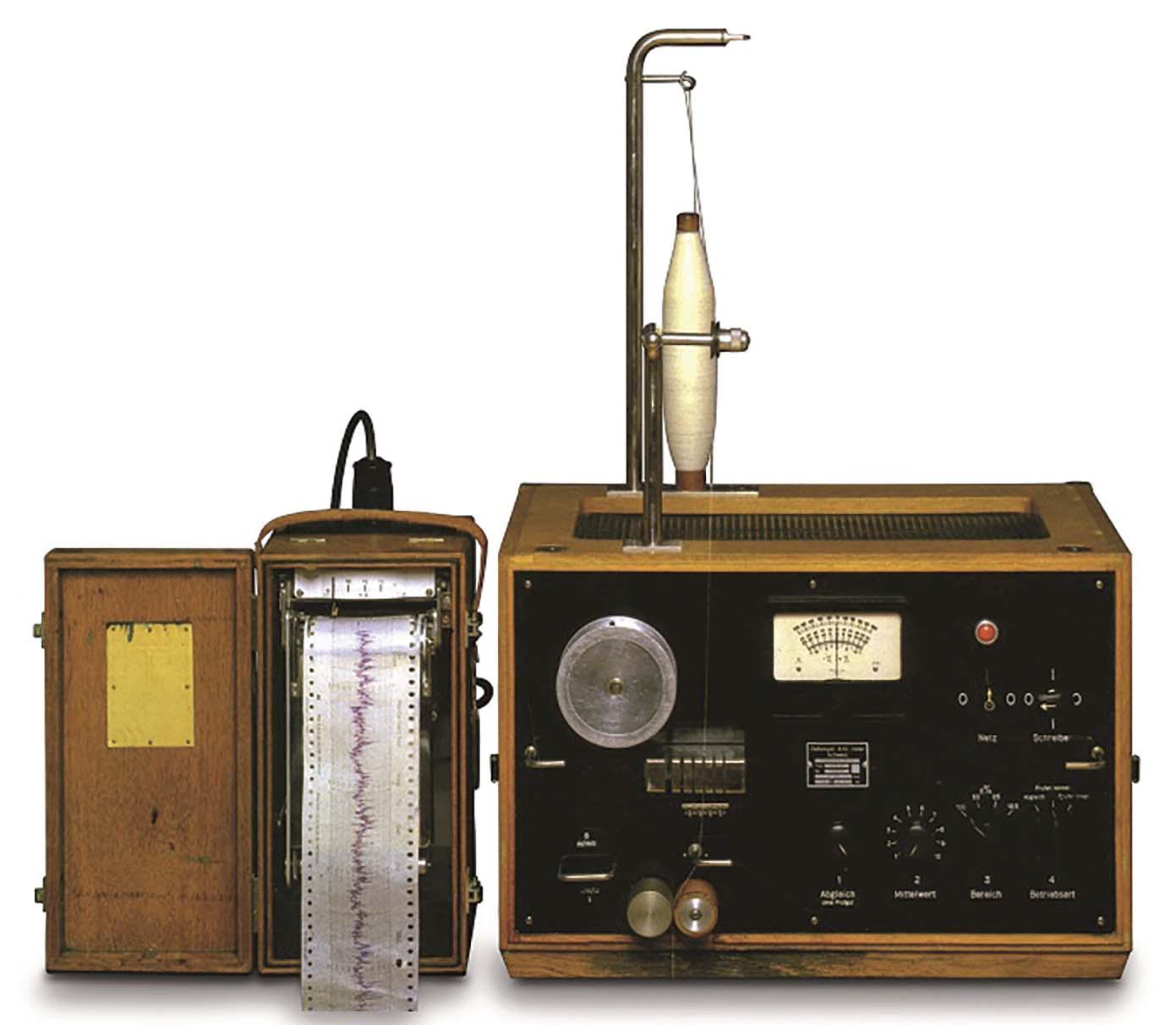
44 PAKISTAN TEXTILE JOURNAL - February 2023
GGP – first evenness tester in 1948.
Spinning Review
Celebrating 75 years of the world’s most famous instrument
yarn quality, to improve it for their customers but also to benchmark their own standards against other producers. Giving quality a numerical value was a massive breakthrough, reflected today in the ‘language of quality’ used for marketing, trading and competitive progress today.
The concept of global benchmarking took a giant leap forward in 1957 with a short article in the German textile magazine Melliand, giving basic data on yarn quality from a number of spinners.
The data was, of course, based on the Uster Tester, and the idea of a comprehensive service of quality information grew into the now-legendary Uster Statistics publications.
This detailed collation of accurate data from all around the textile world has become essential to the entire industry. It is the framework for meaningful fiber purchasing, yarn development and trading, now of course, available as an app for mobile devices. In an
environment where speed and userfriendliness are vital, the latest Uster Tester interacts with Uster Statistics to provide a one-click check of yarn quality and specifications.
Managing the whole mill
It’s clear that the evenness tester will also continue to be the must-have laboratory testing instrument in its own right, whatever the benefits of its connectivity. Test conditions in the lab are more consistent than in the production halls, so results can be compared over time to establish a basis for best settings and procedures in mill equipment.
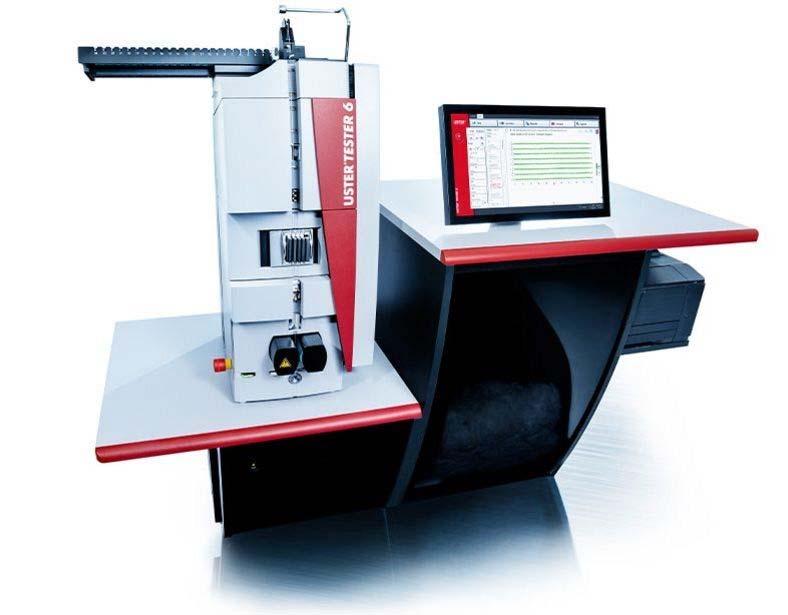
So, the Uster Tester has its place in every serious textile laboratory. But its modern role is much wider, thanks to seamless connectivity with other Uster testing and measuring instruments. Critically, it unites lab testing with inprocess monitoring, by intelligent cooperation with Uster yarn clearers in the winding department.
Through the Uster Quality Expert, and the unique ‘Assistant Q’ guidance facility, mills now have the benefit of ‘Total Testing’. This delivers effective and preventive process optimization, with smart alerts pointing instantly to potential trouble spots in the entire process. Integration between 100% in-process monitoring and precise lab measurement ensures quality is secured at the right level every time.
Spinners today have the power to analyze every element of their processes and select the best options for their own profitability and their customers’ complete satisfaction. In one system, fiber, yarn and fabric quality are optimized and secured. Thanks to the Uster Tester and Uster Quality Expert, mills can rely on a world-class Quality Management Platform that takes their business planning from imperfect approximation to guaranteed certainty…ready for the next 75 years.
Spinning Review 45
Uster Tester 6 – the Total Testing Center.
WINGS HD – superb efficiency and functionality
Manufacture of high-titer products using the POY and DTY process optimized.
Since 2018, Oerlikon Barmag has been offering the market’s only currently available concept for high-end home textile applications using the POY and DTY process. The spinning concept with the WINGS HD winding unit in conjunction with an automatic eAFK Big V Multispindle texturing machine manufactures excellent-quality high-titer yarns with maximum machine efficiency.

“We have correspondingly modified WINGS HD in order to once again better align the increased requirements of these special yarns to the spinning process and make everyday production even simpler for our customers,” comments Stephan Faulstich, POY Process Technology Manager. The parking times are extremely short when winding high titers. We have increased the parking times by up to three times in the case of the new WINGS HD models. To this end, the parking time for a 300d/384f yarn, for example, has been increased from a standard 6.5 min. to 15.7 min. – and, in the case of a 400d/192f yarn, from 4.3 min. to 10.3 min. This makes the doffing process more even, hence increasing doffing reliability.
At the same time, the draw unit now has a more flexible design, meaning that two-godet operation is also possible in the case of products with low overall titers. This has a positive impact on the winding unit’s energy consumption.
WINGS HD – superb efficiency and functionality
12 POY packages of up to 600d/576f (final) are produced in the spinning process using WINGS HD 1800. This is made possible as a result of an additional godet, which ensures that the high yarn tensions developing in the process are reduced to the yarn tensions common in the case of the winding process to date. At the same time, the newly-developed suction unit with the accompanying yarn cutting device (yarn collecting system) ensures – both during string-up and in
the event of a yarn break – reliable handling of the yarn with an overall titer of 7,200 den (final).
The concept’s decisive benefit: whereas DTY yarns up to 1,200 den and with up to 784 filaments have in the past, as standard, been plied from four POY
300d/192f bobbins using DTY machines, high titers can also be manufactured directly using the WINGS HD take-up machine. And combining the WINGS HD and the eAFK Big V is ideal, as this allows all available winding positions to be utilized during texturing.
Spinning Review 46 PAKISTAN TEXTILE JOURNAL - February 2023
Superbly suited to the efficient production of high-titer yarns: the Oerlikon Barmag WINGS HD with extended parking time.
PRISMA is the right choice for profitable yarn clearing
From Switzerland, Loepfe Brothers Ltd. with its optical yarn clearers has revolutionized quality control in the textile industry. Today, Loepfe is one of the world-wide leading manufacturers and solution partner for electronic online quality assurance systems. Machine manufacturers as well as spinning mills and weaving mills around the globe use Loepfe technology.
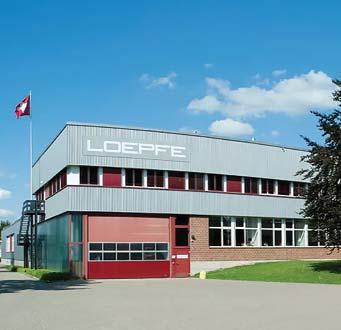
PRISMA’s uniqueness supports increases in efficiency with a holistic approach. The PRISMA software system uses algorithms and statistical models to analyze and draw inferences from data patterns, ensuring recognition of all possible organic matter.
Field study results prove the majority of YarnMaster® PRISMA with its unique RGB technology with an impressive success rate in the organic matter detection challenge.
In addition to color management, RGB technology enables color-oriented selection of organic material in the cotton yarn, which does not necessarily have to be removed, as it does not cause disturbances in downstream process steps and is eliminated by other means.
Loepfe has fed the system with thousands of samples of organics, showing what they look like and how disturbing they are. The system can then recognize the organics without following explicit instructions, relying instead on the collection of organics and the patterns it has made from it. Customers can benefit from this intelligent organic filtering which offers an even more accurate detection of organic substances. The filter has learned whether organics need to be removed or not, leading to considerable savings, clearer cuts and higher winding efficiency. Machine learning methods take the organic clearing function to the next level.
Trials with several customers have shown that PRISMA is able to maintain yarn quality while increasing clearing efficiency through a lower cut-rate. This
is achieved by the unique combination of software and precise and sensitive sensor technology which allows error-free detection and classification of disturbing or non-disturbing defects.
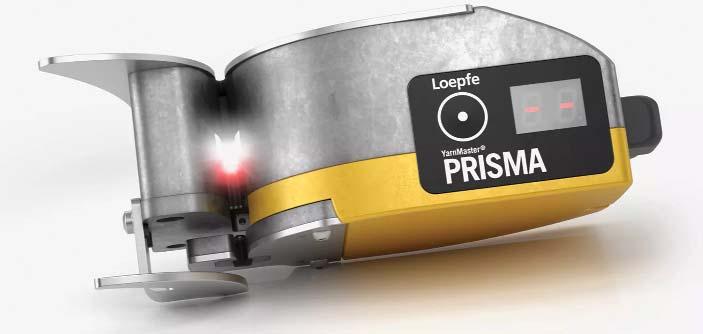
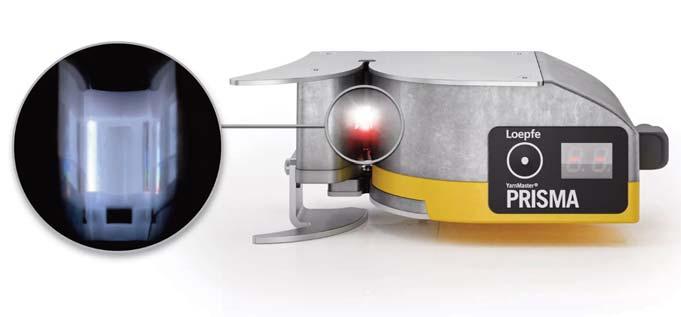
Focus on customer needs: Customer trial results
In production, certain parameters are given. The level of efficiency to be profitable and the level of yarn quality to guarantee flawless further production. Various customer tests have shown that the unique measuring technologies of PRISMA enables the producers to achieve a higher yarn quality at a fixed cut-rate, i.e. a fixed productivity level, or vice versa provides a higher productivity (lower cutrate) at a given yarn quality.
The on-site test showed that the target – higher quality while maintaining the cut-rate – was met. This important production optimization was achieved by the more precise removal of colored foreign matter and fewer cuts on nondisturbing organic events.
This result also achieves improvements in raw material utilization, since a higher quality could be achieved from the same raw material with the same cut-rate. The performance of PRISMA convinced the customer and leaves him room for further optimization of his profitability. This new and trendsetting innovation shows once again how further optimization of spinning mills can be achieved through 100% online quality control with the latest technology on the market.
47 Spinning Review
PRISMA is able to maintain yarn quality while increasing clearing efficiency through a lower cut-rate.
SAVIO’S NEXT DESTINATION: PROXIMA Smartconer®
Savio is launching the newest SAVIO automatic winder Proxima Smartconer® at ITMA MILAN. Proxima Smartconer® is the result of the commitment of Savio R&D team and testifies Savio’s dedication to innovation technology and strong partnerships across the industry.
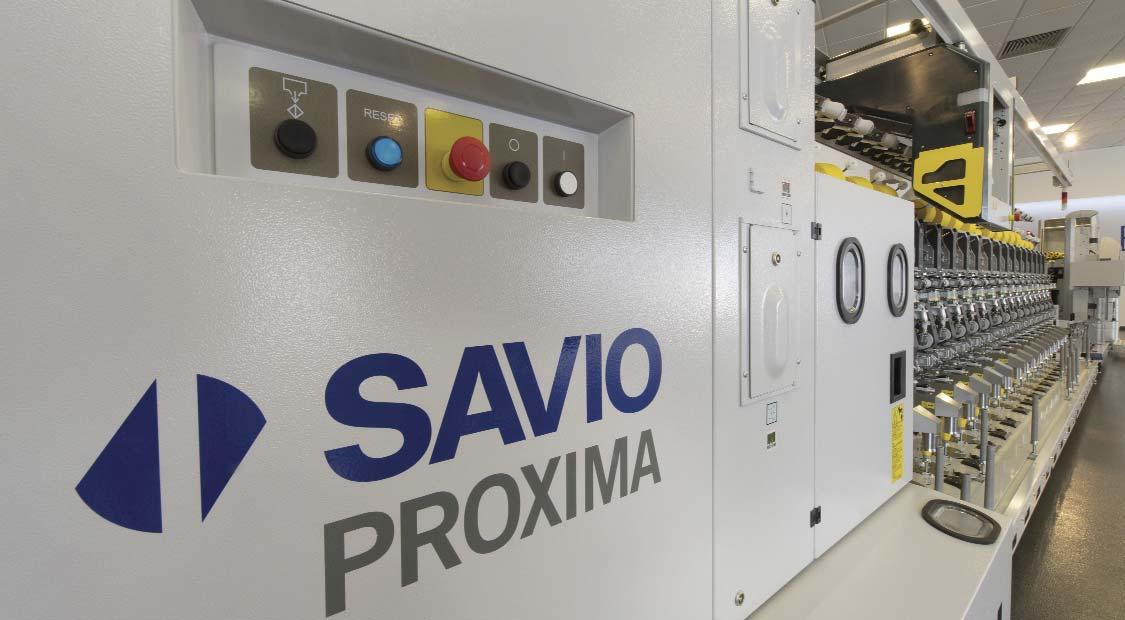
Textile Solutions Together
Savio has always acted as technological leader and innovative player in the textile machinery industry. Innovation technology and customer centricity are Savio drivers for developing new products. Our innovations aim to impact on the customer's value chain; we want to be together as partners and offer not only innovative products, but also our expertise and solutions able to satisfy customer needs. TEXTILE SOLUTIONS TOGETHER is our philosophy and summarizes our customer-oriented approach.
New Savio Agent In Pakistan
Since September 2022, Savio has a new official Agent in Pakistan for Sales & Servicing, EUREP ENTERPRISES, guided
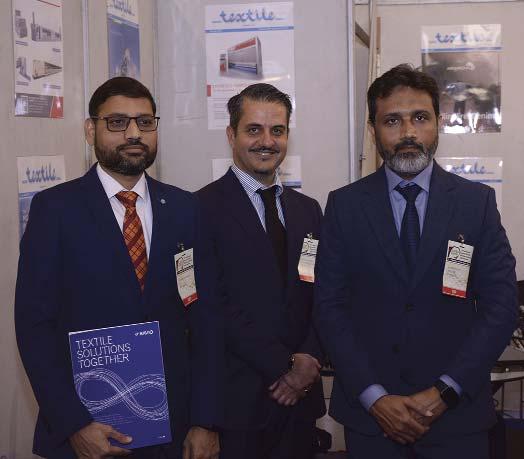
by Mr. Mohammad Rehan, CEO of Eurep Enterprises. This strategic alliance is set to immensely benefit the Pakistani textile industry, as the expertise of Savio combined with the strong presence of Eurep on the local market, will give customers a competitive advantage in their business. EUREP is ready to provide the region with high class textile machines and the best AfterSales service. This partnership will enforce Savio support and strength towards our Pakistani customers and increase our customer centricity.
Next Destination: Proxima Smartconer®
The new winding machine Proxima Smartconer® is setting the benchmark in Savio automatic winding.
We have combined the name Proxima with Smartconer®: It stands for a hightech winding machine, capable of perfectly adapting to demands of Connectivity, Industry 4.0 and Industrial Internet of Things.
Thanks to the innovations, spinners will get a machine featuring high-tech capabilities, thanks to a design with a strong focus on the main benefits for
48 PAKISTAN TEXTILE JOURNAL - February 2023
The newest SAVIO automatic winder Proxima Smartconer® will be presented at ITMA 2023 exhibition, in Milan, Italy from 2023.
Mohammad Rehan Mubeen and Salman Saeed Eurep Enterprises with Regional Sales Vice President Savio Macchine Tessili.
©Copyright 2023
customer’s competitive advantage: high productivity, low energy consumption, premium yarn quality, automation, and data connectivity.
Proxima Smartconer® has been designed with the foremost attention to the customer’s needs in the optimal utilization of a winding machine.
Investing in equipment that enables to work faster and reduces manual and repetitive tasks, can increase both efficiencies and overall productivity. The same applies to a new equipment that does more of what is needed, faster, safer, with better quality but with less waste, less maintenance and less resource usage.
The team at Savio is steadfast to provide textile solutions for spinning business growth with unsurpassed customer service, response time, and technical expertise.
The Main Benefits of Proxima Smartconer® for Competitive Value:
HIGH PRODUCTIVITY: Thanks to the new Smart Booster, to a shorter bobbin change cycle, to a faster splicing cycle.
LOW ENERGY CONSUMPTION: through the usage of the latest and most efficient self-regulating independent motors and frequency inverters.
PREMIUM PACKAGE QUALITY: Thanks to the new splicer and new tension control.
USER EXPERIENCE: Easy use and settings thanks to the new HMIHuman Machine Interface.
AUTOMATION: Efficient bobbin flow in the automated models.
SERVICE FRIENDLY: Easy maintenance and accessibility to components.
CONNECTIVITY: Smartconer® means a winder with many Smart functions, for a more connected, increasingly efficient, and flexible machine. Smart monitoring of the winding process is possible thanks to the IIoT (Industrial Internet of Things) digital solutions.
Boost the productivity of your business
Investing in new equipment as Proxima Smartconer®, as well as in Savio’s leading-edge technologies, enables spinners to be more agile and responsive as business needs change. It’s important to note that those gains in productivity and efficiencies while producing fault free
packages, can generate significant cost savings. You can benefit from huge returns in terms of productivity with Proxima Smartconer®
The high productivity of the machine is obtained thanks to multiple factors that help optimizing the performances. More kgs of yarn produced, high productivity thanks to:
Smart Booster, new device for bobbin unwinding that increases the winding speed and reduces yarn tension.
Fast bobbin change cycle plus 1 extra bobbin in reserve.
Less power consumed per Kg of yarn produced.
New yarn tensioner and shorter splicing time.
User-Friendly HMI to face the problem of staff usage
Savio goal was to create an easy and intuitive HMI that gives back to those who use it the same familiarity and simplicity they experience when handling a smartphone. From this point of view, the HMI has been completely revised to facilitate an intuitive approach.
An HMI (human-machine interface) is a device or software that allows an operator to be able to “communicate” with a machine or a production plant. In fact, it converts a huge amount of complex data into information that any operator can understand. Even more so if this type of interface, as in the specific case, makes use of graphic elements such as icons: this further helps the less experienced operator to move easily around the system.
An important aspect concerns the declination in a 4.0 key. There is, in fact, the possibility of accessing the system remotely, with significant advantages also in terms of maintenance. In fact, timely contextual information is provided, with remote accessibility for technical assistance and the possibility of remote control of the interface on mobile devices and PCs for assistance and maintenance also by the customer. And the 4.0 predisposition can be interfaced with management systems.
Customer Service
A user-friendly machine allows spinners to respond quickly to changes or manufacturing challenges, to increase the ease of use and management of the machine, thereby improving efficiency and reducing machinery downtimes. PROXIMA Smartconer® has been designed to be easy to use, both for the setting of machine functions and for maintenance.
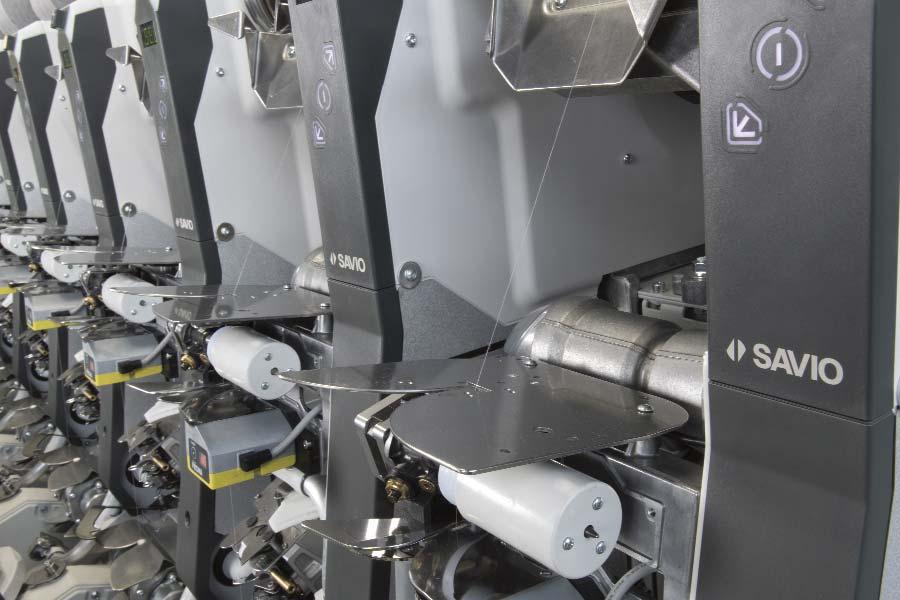
The newly designed user-friendly interface with touch screen functionality allows to easily setup working parameters. The interface of PROXIMA Smartconer® allows to monitor machine even remotely and to display dashboards, with the aim of simplifying processes and factory operations. Operators can also use machine PC interface to quickly display KPIs and manage alarms. The ability to make the necessary adjustments from the screen makes this process quick and easy.
by Savio Macchine Tessili
Spinning Review 49
©Copyright 2023
Rieter: Financial year 2022
The 2022 financial year was characterized by record sales of CHF 1 510.9 million and enormous challenges in their realization. Geopolitical uncertainties, the rapid rise in inflation, and additional development expenditure to compensate for material bottlenecks, weighed heavily on earnings. Higher expenses were also incurred in connection with the acquired businesses. Despite the exceptionally challenging environment, Rieter generated an EBIT margin of 2.1%. Implementation of the measures already initiated to improve profitability is continuing.
Sales, Order Intake and Order Backlog
With record sales of CHF 1510.9 million, Rieter achieved an increase of 56% compared with the previous year (2021: CHF 969.2 million).
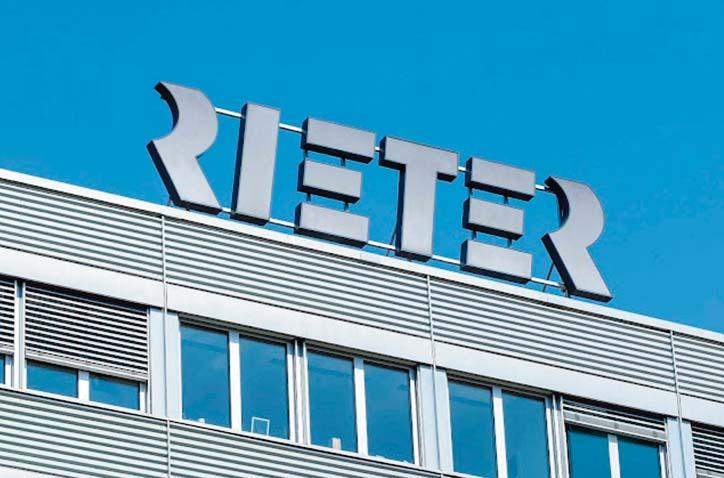
In the second half of 2022, especially in the fourth quarter, the measures introduced to address material bottlenecks had a positive impact. Consequently, sales increased to CHF
890.3 million compared with the first six months (first half-year 2022: CHF 620.6 million).
Order intake was CHF 1,157.3 million in 2022 (2021: CHF 2,225.7 million) and thus remained at a high level thanks to the company’s technological lead and broad international presence. The market situation, especially in the second half of 2022, was characterized by investment restraint and belowaverage capacity utilization at spinning mills due to geopolitical uncertainties, rising financing costs, and consumer reticence in important markets.
The company had an order backlog of around CHF 1540 million at the end of 2022, which thus extends into 2023 and 2024.
EBIT, Net Profit and Free Cash Flow
The profit at the EBIT level in the 2022 financial year was CHF 32.2 million (2021: CHF 47.6 million). The result was strongly influenced by substantial cost increases, which could only be offset in
part through price increases or other remedial measures.
In addition, to compensate for material shortages, expenses were incurred in connection with the development of alternative solutions, and in relation to the acquired businesses. In the 2022 financial year, an EBIT margin of 2.1% was achieved (2021: 4.9%) despite these challenges. Rieter closed 2022 with a positive result and achieved a net profit of CHF 12.1 million, equivalent to 0.8% in relation to sales, following a net loss in the first half of 2022.
Free cash flow was CHF -98.6 million, mainly a result of the build-up of inventories for deliveries in the 2023 financial year. Accordingly, net debt was CHF 285.6 million (2021: CHF 161.9 million). As of December 31, 2022, Rieter had liquid funds of CHF 176.1 million (2021: CHF 249.4 million).
The equity ratio as of December 31, 2022, was 23.4%, mainly due to the increased working capital and foreign exchange differences (previous year’s reporting date 27.6%).
Spinning Review 50 PAKISTAN TEXTILE JOURNAL - February 2023
Completion of the Acquisition
Rieter consolidated the acquired automatic winding machine business with effect from April 1, 2022. This acquisition completes Rieter’s system offering in the largest market segment of ring and compact spinning, thus significantly strengthening the company’s market position.
Action Plan to increase Profitability
Implementation of the action plan to increase profitability is ongoing. With regard to the margins for the order backlog, which remains high, the already implemented price increases in combination with a positive trend in costs, particularly in logistics, are having a favorable impact. In addition, progress was made in eliminating material bottlenecks and reducing expenses for the three acquired businesses.
Innovation Program
In the context of ITME 2022 in Delhi (India), Rieter presented solutions for the economical production of yarns from recycled fibers, which met with great customer interest.
As the technology leader, Rieter will present new, innovative products at ITMA 2023 in Milan (Italy).
Rieter Site Sales Process
The sales process for the remaining land at the Rieter site in Winterthur (Switzerland) is proceeding according to plan. In total, around 75 000 m2 of land will be sold. The Rieter CAMPUS is not part of this transaction.
Dividend
The Board of Directors proposes to the shareholders the distribution of a dividend of CHF 1.50 per share for 2022. This corresponds to a payout ratio of 56%.
Board of Directors and Annual General Meeting
At the 131st Annual General Meeting held on April 7, 2022, the shareholders approved all motions proposed by the Board of Directors. The Chairman of the Board, Bernhard Jucker, and the Directors, Hans-Peter Schwald, Peter Spuhler, Roger Baillod and Carl Illi, were confirmed for a further one-year term of office.

Sarah Kreienbühl and Daniel Grieder were newly elected for a one-year term of office as members of the Board of Directors. The members of the Remuneration Committee who were standing for election – Hans-Peter Schwald and Bernhard Jucker – were also re-elected for a one-year term of office.
was newly elected for a one-year term of office as a member of the Remuneration Committee, and takes over the chair.
Outlook
For the coming months, Rieter expects below-average demand for new equipment at first, with a revival expected in the second half of 2023 after ITMA, the leading trade fair in Milan (Italy). Rieter also believes that demand for consumables, wear & tear and spare parts will recover during 2023.
For the 2023 financial year, due to the high order backlog, Rieter anticipates sales in the order of magnitude of the previous year.
The realization of sales from the order backlog continues to be associated with risks in connection with the ongoing geopolitical uncertainties, rising financing costs, continuing bottlenecks in the supply chains, and possible, currently unforeseeable consequences of the earthquake in Türkiye in February 2023. Despite the price increases already implemented, further global cost increases continue to pose a risk to the growth of profitability. Rieter will specify the outlook in the 2023 semi annual report.
Spinning Review 51
Sarah Kreienbühl
Customer Testimonial for SSM XENO-AC for high quality yarns
Bishnu Texport Pvt. Ltd. is one of the pioneers in Spandex yarns and manufactures extra fine deniers of air covered yarns. Founded in 2003, the company rapidly grew and expanded its portfolio to include conventional single covered yarns and double covered yarns. Renowned for its high quality, Bishnu is dedicated to customer success and constantly expands its portfolio to serve its customer needs.
The Challenge
To better answer customer needs in a timely manner, Bishnu Texport Pvt. Ltd. decided to produce its own air covered yarns. Switching from a trading company to a manufacturing one does not come without challenges. While it improves delivery time and reduces import costs, achieving the same, or even better, quality is ambitious
In search for the best air covering machines on the market, Bishnu turned to

SSM. While cheaper alternatives were available, the company trusted that the original investment for SSM air covered machines would result in a better return on investment and better fit their motto “No compromise on quality”.
The Solution
In 2012, Bishnu acquired 15 spindles of SSM DP3-C machine for its factory located in the northern part of India, near Delhi, where temperature can vary from 3 to 45 degrees Celsius – a real challenge when producing super fine yarns of 10/10 den, polyamide and elastane. With the right air-conditioning system and the support of SSM experts, Bishnu successfully set up the machines and reached a smooth and reliable production.
In 2020, the company owned 90 spindles of SSM air covering machines
XENO-AC and its brand has been recognized as high-quality air covered yarns.
The Customer's Benefits
The main advantage with XENO-AC machines is the quality of the final product. From the yarn quality to the runnability on other machines and the package appearance, everything is optimized. Bishnu and its customers have been enjoying consistent high quality for 10 years and the company’s customer base is growing.
Bishnu is currently exporting its air covered yarns to Japan and Sri Lanka and is expecting long- term business in Japan. Consequently, the company plans to expand its existing capacity of spindles of SSM air covering to 200 spindles by the end of year 2025.
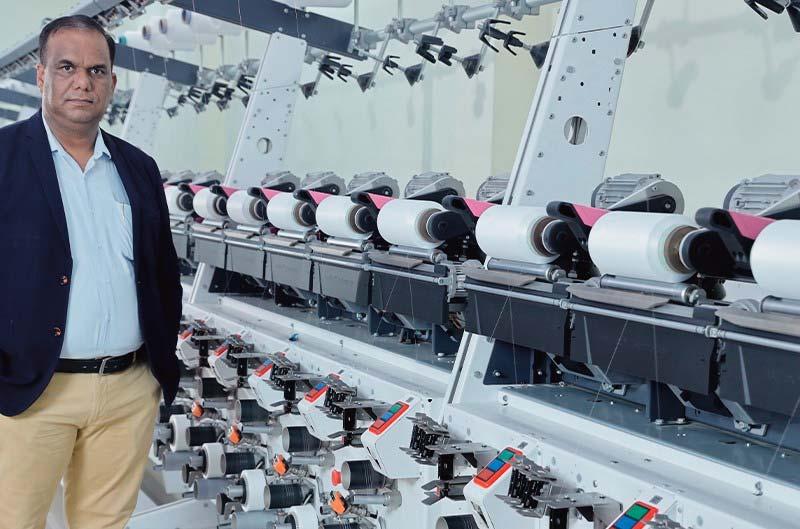
52 PAKISTAN TEXTILE JOURNAL - February 2023 Spinning Review
Mani Kant, Managing Director of Bishnu Texports Pvt. Ltd.
Trade Mission from Pakistan to Italy
Italian textile machinery at the forefront of their customers in Pakistan
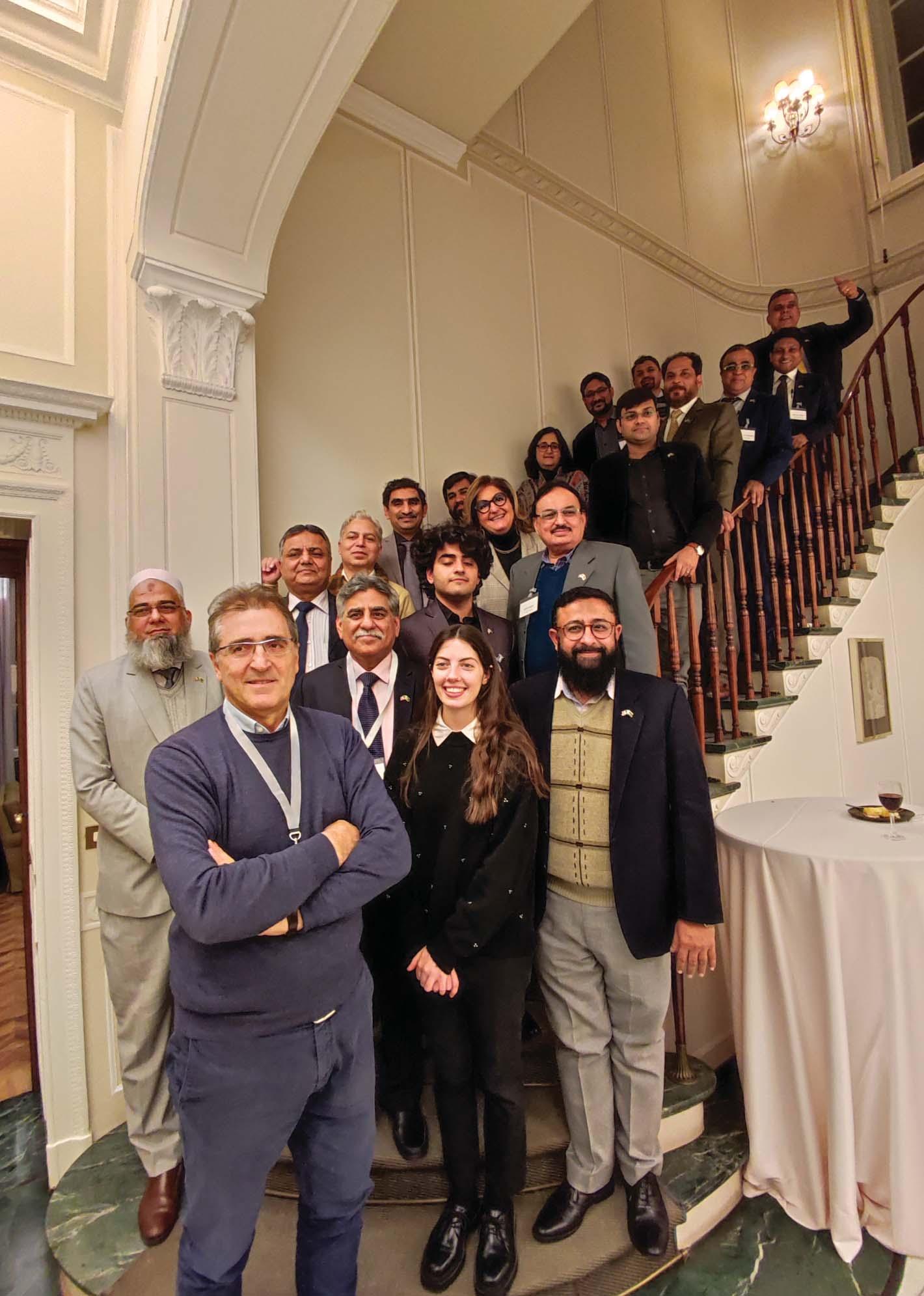
53
Trade Mission from Pakistan to Italy
Italian textile machinery at the forefront of their customers in Pakistan.
The Association of Italian Textile Machinery Manufacturers (ACIMIT) and Italian Trade Commission ICE/ITA organized a trade mission in Italy during 12 to 16 December 2022. Leading Pakistani textile operators visited ACIMIT headquarters based in Milan where 35 Italian Textile machinery manufacturing companies presented their latest innovations that will be highlighted for ITMA 2023. The dialogue and B2B meeting between Italian textile machinery companies and delegates from Pakistan fosters the fruitful exchange of knowledge.
This initiative by ACIMIT together with ICE/ITA and the representatives of Italian companies and experts of the Association of Italian Textile Machinery Manufacturers (ACIMIT) on topical issues for the sector, also included visits to factories of Ferraro, Efi Reggiani, Mario Crosta and Fadis. During a week-long trip, the delegates were involved in daily training sessions, visits to factories and B2B meetings with the Italian counterparts. The training session concluded with a networking dinner with the delegation and the participating Italian companies, with the delivery of diplomas.
A.R. Daudpota, Deputy Trade Commissioner. Responsible Pakistan Desk, ITA Italian Trade Agency

A. R. Daudpota on the first day of the training session, hoped that the presentations, B2B meetings and factory visits allow for a deeper understanding of the industry and the challenges and opportunities faced by both countries. Such collaborative efforts between the Italian Trade Commission ICE/ITA and ACIMIT according to him are crucial for the growth and development of the textile machinery industry as well as to strengthen the partnership between the two countries.
Alex Zucchi, President ACIMIT

Alex Zucchi, while welcoming the delegation from Pakistan mentioned that the Italian textile machinery industry already has well established presence in Pakistan. Italy is well-known for its highquality textile machinery and the country has a long tradition of producing some of the world's best textile machinery.
Pakistani textile producers can improve their production quality, increase their efficiency, and boost their competitiveness in the global market. Overall, this trade mission is beneficial for both Pakistan and Italy, as it can help to strengthen their trade relationship and foster innovation in the textile industry.
Giorgio Calculli, Vice Director ACIMIT

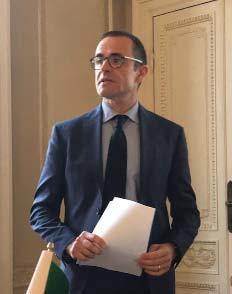
Giorgio Calculli, Vice Director, Training and Internal relations, ACIMIT while speaking at the first day of the Textile Mission at ACIMIT headquarters, highlighted that training courses in Italy and technological workshops abroad
along with R&D with training activities are one of the key driver for the successful interaction between two countries.
In recent years, ACIMIT has thus completed a total of six reference textbooks for schools on the main technologies in the areas of spinning, weaving, knitting, finishing, man-made fibres, and nonwoven fabrics. These books have also been translated in English, Chinese, Arabic and Mongolian, so as to be able to distribute them abroad in digital format at schools and universities that offer programs for the textile industry.
Mauro Badanelli, Head of Economics and Press ACIMIT
Italian Textile machines industry overview was presented by Mauro Badanelli. He highlighted key data about the Italian textile machinery industry. According to him, the industry comprises of 300 member companies, which together report a production value of Euro 2.4 billion. It is worth noting that nearly 79 percent of these companies have a turnover of less than Euro 10 million. However, despite the small size of these companies, they contribute significantly to the overall production value of the industry.
Moreover, exports are a significant part of the turnover of the Italian textile machinery industry, with about 85 percent of the turnover coming from exports. This highlights the importance of the industry to the Italian economy and underscores the competitiveness of Italian textile machinery in the global market.
Overall, the data presented by Mauro Badanelli is a testament to the strength and resilience of the Italian textile machinery industry, as well as the ingenuity and resourcefulness of its member companies in staying competitive in the global market. The Road to ITMA event dedicated to Pakistan highlights the significant growth in Italian exports to Pakistan in 2022, with a value of 134 million euros, which is a remarkable 97% increase from the previous year. The sales of Italian textile machinery in Pakistan also demonstrate a strong partnership between the two countries, with sales reaching almost 62 million euros in the first 8 months of 2022.
54 PAKISTAN TEXTILE JOURNAL - February 2023 Special Report
This collaboration between Italy and Pakistan in the textile machinery industry is not only beneficial for the two countries, but also for the industry. It allows for the exchange of expertise and knowledge, as well as the growth and development of the industry. It will be interesting to see how this partnership continues to develop in the future and how it will impact the global textile machinery market.
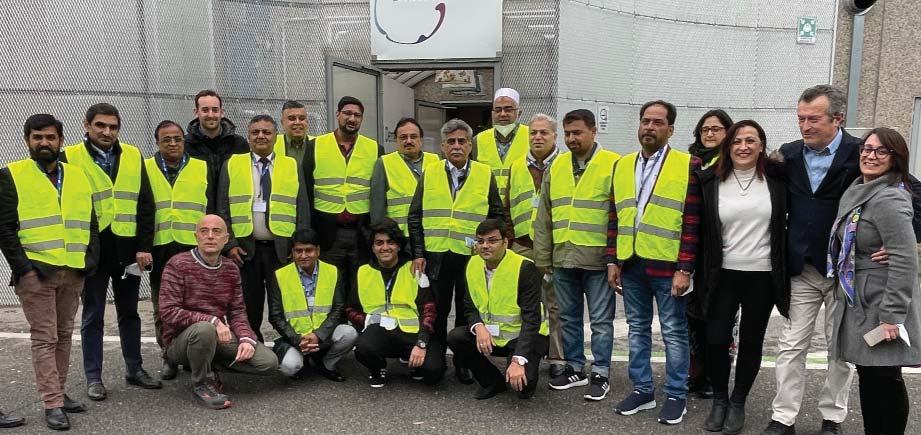
Comments by Pakistani delegates
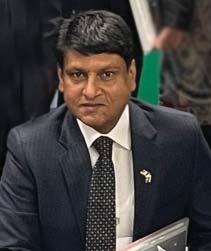
Ghulam Ghous Amjad, CFO, Artistic Fabric Mills
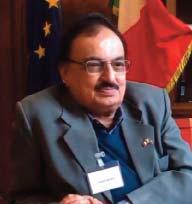

I have been associated with Artistic Fabric Mills (AFM) for the last 23 years. The group includes five factories for weaving and garment production. AFM is a vertically integrated unit that covers spinning, weaving, and garmentmaking, with a total of 4000 employees. This has been a great learning experience for me, and it has enabled me to make better use of our installed technology and plan for future investments. We will replace and improve our facilities as needed to stay competitive in the market. Our fabric and valueadded fabric offerings are of high quality. However, Pakistan faces challenges due to an energy crisis and a lack of policies, which have created a crisis situation. I hope that these issues will be resolved soon.
Hanif Bawa, CEO, Al-Karam Towels
According to Hanif Bawa AlKaram Towels is one of the most progressive towel manufacturing companies that has made a lot of investment in the latest technologies. A large part of which is coming from Italy. The visit has been a organized very well by ACIMIT and Italian Trade Agency. In my 46 years of professional career, this visit is one of the best experiences. This visit has given me great ideas to improve our production and to be more efficient.
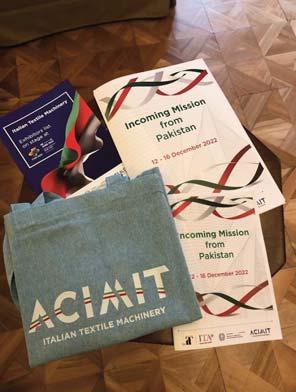
Special Report 55
1.CIBITEX 2.SMIT 3.CUBOTEX 4.EFI REGGIANI 5.MARZOLI 6.SPEROTTO RIMAR 7.TOMSIC 8.STALAM 9.KAIROS 10.RATTI 11.COMPUTER HOUSE 12.LAIP 13.MS PRINTING 14.NEXIA 15.SALVADE’ 16.IMA 17.ERHARDT LEIMER 18.AIGLE 19.TESTA 20.ETV 21.ZANFRINI 22.LGL ELECTRONICS 23.LOPTEX 24.MESDAN 25.TECNORAMA 26.RF SYSTEMS 27.LAWER 28.ITEMA 29.FADIS 30.MONTI – MAC 31.CROSTA 32.CORINO 33.SICAM 34.UNITECH 35. FERRARO
Italian companies presenting their technologies to the
delegation
Mushahid Ali Mian, General Manager, Lucky Group

I have 35 years of experience in the woven and denim sectors. I am passionate about R&D, particularly in producing challenging fabrics. Throughout my career, I have been fortunate to work with the best raw materials, talent, techniques, and methods in the industry.
Participating in this group has been an excellent opportunity for us to observe how the best Italian companies function. We have been welcomed into their machinery manufacturing sites, which showed the prowess of their technology, which is second to none in the world.
Danish Ahmed, GM Yarn Dyeing Unit, Zaman Textile Mills
The delegation to Italy was a valuable learning experience. During the visit, we had the opportunity to explore leading Italian companies such as digital printing machinery manufacturers like Efi Reggiani. At Zaman Textiles, we have installed the fastest machine, Bolt by Efi Reggiani, which can print 90 meters per minute with an A grade percentage of 9697%.
We are grateful to ACIMIT and the Italian Trade Commission for organizing this well-planned and informative delegation, which has provided us with valuable insights and ideas to enhance our production efficiency.
Jawad Arshad, Vice President Marketing and Supply chain, Crescent Bahuman Limited
According to Jawad Arshad, VP Marketing and Supply Chain at Crescent Bahuman: Supply Chain Management is a crucial aspect of our business at Crescent Bahuman, which began as a joint venture in 1995.
CBL is a pioneering denim manufacturer and a fully integrated vertical unit that covers the entire production process, from 'cotton to carton', delivering to customers around the world.
During our visit to Italy, we were introduced to manufacturers who showcased their cutting-edge technologies. The factory visits were enlightening and highlighted the potential benefits of investing in advanced machinery to enhance our competitiveness and sustainability.
The delegation was professionally managed, from initial communication to visa management, and our host ACIMIT in Milan guided us through an extensive program that included presentations, B2B meetings, and company visits.
Dr. Tanveer Hussain, Professor / Rector, National Textile University
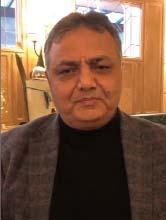
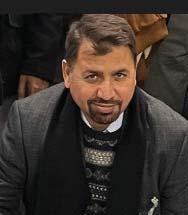
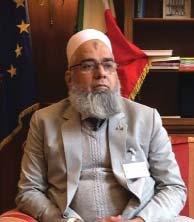
Dr. Tanveer Hussain, Rector, National Textile University gave his comments about the delegation. NTU founded in 1959, is the largest and oldest textile education institution. It is the only institution in Pakistan, whose economic impact is greater than all universities, as textiles are the largest industry of the country.
According to Dr. Tanveer Hussain, industrial investors need long-term stability and consistent economic policies from the government. The widening trade deficit can only be reduced by supporting textile exports. The technology presented by Italian companies can help our exporters.
The factory tours were very beneficial. Seeing is believing. It was on-site where we realized how they manufacture their machines. It was a very useful visit.
Ikram Haider, GM Weaving, Nishat Mills Limited
Nishat Mills Limited is the flagship company of Nishat Group, established in 1951. It is one of the largest and most modern vertically integrated textile companies in Pakistan, engaged in the entire textile supply chain from spinning to apparel. The Nishat Group also encompasses banking, insurance companies, and power generation.
Ikram Haider states: As part of this delegation, I learned a lot about Italian companies and their wide range of technologies. Technically, I found Italians to be excellent in terms of their technology, metallurgy, and systems. They are very hard-working people. I enjoyed the delegation and learned a lot. I am thankful to the organizers, especially our hosts ACIMIT and Mr. Alex Zucchi, and the Italian Trade Agency, particularly Mr. Daudpota, who did an excellent job in organizing the delegation.
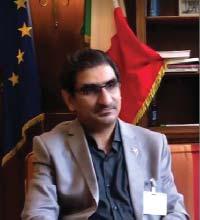
Muhammad Yaseen Virk, Technical Director, Bhanero Textile Mills
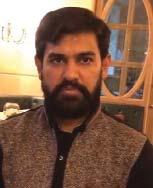
Umer Group of Companies includes Faisal Spinning Mills Ltd., Bhanero Textiles Ltd, and Blessed Textiles Limited. They are specializing in finer counts of yarn made with Supima cotton. We have 300,000 spindles 600 looms as well as dyeing and finishing facilities.
Muhammad Yaseen Virk mentioned: We have learnt a lot specially from companies such as Mesdan who are providing yarn splicers and laboratory solutions for the spinning industry. This was a great experience when we visited machinery manufacturers and learnt how they are producing quality machinery that we are using in our mills.
Special Report 56 PAKISTAN TEXTILE JOURNAL - February 2023
Obaid Ansari,Senior Manager Dyeing and Processing, Feroze1888 Mills Limited

According to Obaid Ansari, Senior Manager Dyeing and Processing Feroze 1888, the selection of companies was tailored to match the fields of activities of the delegates, which likely made the experience more valuable. We visited leading machinery manufacturers and were introduced to their technology in the B2B meetings. These B2B meetings allowed for further introductions to the technology, which could potentially lead to future business partnerships.
According to Obaid Ansari, the Italian companies were very sincere in their work and passionate about the quality of their machines. He also expressed appreciation for their good service and looks forward to seeing their latest innovations at ITMA in Milan.
Farid-ur-Rehman,Technical Director, Orient Textile Mills
Ebrahim Group of Companies is a diverse group with activities in textiles, dairy products and Crown corks for beverage industry. Farid-ur-Rehman, Director Technical of Orient Textiles found the delegation very useful as he got information and solutions about the entire textile supply chain.
According to him it is important to conserve energy, water and resource by using the latest technology that offer such solutions.
According to him the delegation was very well organized by ACIMIT and the Italian Trade Agency. Overall, it seems like a productive and informative visit for the group.
Aamir Ansari, DGM R&D, Al-Karam Textile Mills
Well planned, well organized and excellent presentation! stated Aamir Ansari. The B2B sessions and factory visits were very useful and such interchange between technology suppliers and the customers should be held often to benefit our industry. Circularity and sustainability are the issues these days.
We learn from such events how appropriate technology can help us meet the challenges and goals of the future by bridging the gap between the technology supplier, manufacturer and the brands. I am leading the product innovations and R&D and found the sessions most useful from this perspective. I would like to thank the organizers for making it possible.
Arshad Khan, Senior General Manager, Indigo Textile

Italy's textile mission, whole trip was a truly amazing and memorable experience. Special thanks to ACIMIT and ITA for arranging this fruitful mission that gave us full exposure to prominent Italian textile companies and opened doors for future coordination and collaboration with these companies. This whole mission had an eminent impact on the relationship between Pakistan and Italian Textile Industries. This event also proved itself beneficial in getting to know Pakistani Textile industries participants, which helped us in building good business relation with other Pakistani firms.
Wayne Anthony Jansz, CEO, Garments Division, Siddiqsons Limited
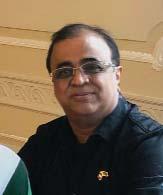

Wayne Anthony Jansz has an experience of more than twenty years in the denim and garment sector. Having worked with leading textiles mills in Pakistan since 2005.

Mr. Wayn Anthony Jansz is currently the CEO of the Garment division of Siddiqsons Limited, one of the largest garment manufacturers in Pakistan. It's great to hear that Wayne Jansz was pleased with his participation in the delegation organized by ACIMIT and Italian Trade Commission, and that he appreciated the efforts of Mr. Daudpota and Mr. Khurram.
Concluding Remarks
The fact that delegates acknowledged and appreciated Italian technology is a testament to the quality of products and services offered by the Italian companies. It's also positive to know that the members of the industry who were part of the delegation were able to share valuable insights on how things can be improved further. Such collaborations and exchanges of knowledge can help drive innovation and progress within the industry. This fares very well for the textile industry of Pakistan. So hats off to the officials of the Italian Trade Commission and ACIMIT for making this valuable knowhow possible through this delegation. Overall, it seems like the delegation was a success and beneficial for all involved.
Pakistan Textile Journal would like to thank ACIMIT, ICE/ITA and delegates from Pakistan for their valuable feed regarding this special report.
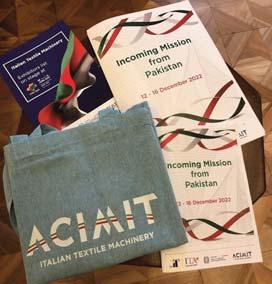 Amina Baqai, Editor-in-Chief and Nadeem Mazhar, Publisher.
Amina Baqai, Editor-in-Chief and Nadeem Mazhar, Publisher.
Special Report 57
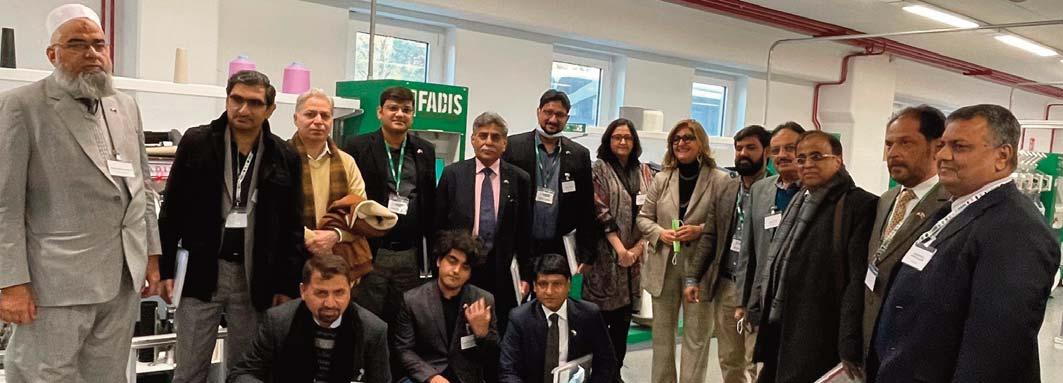


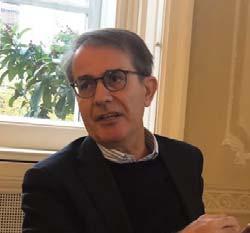
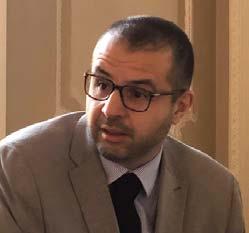
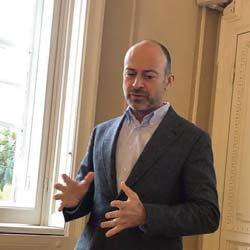

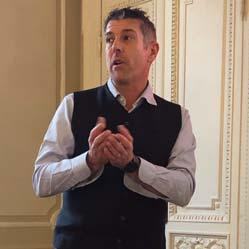
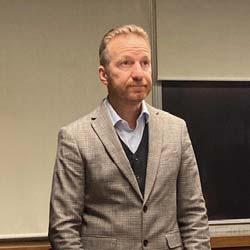
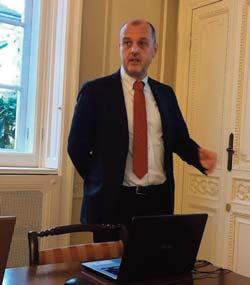


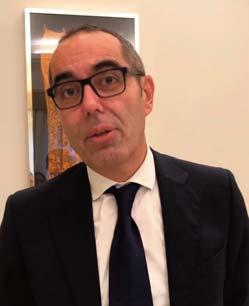
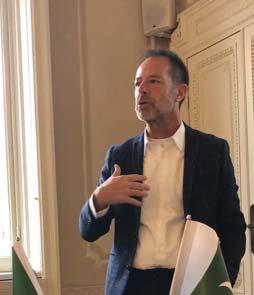
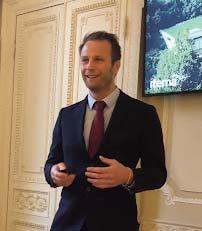
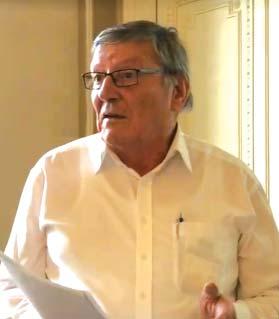

58 PAKISTAN TEXTILE JOURNAL - February 2023 Special Report
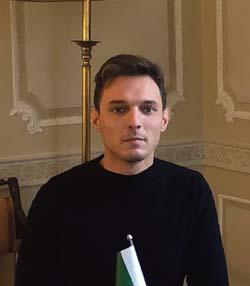
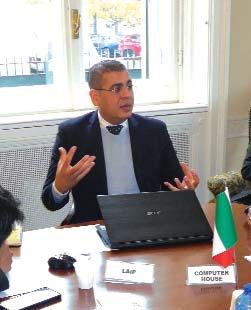
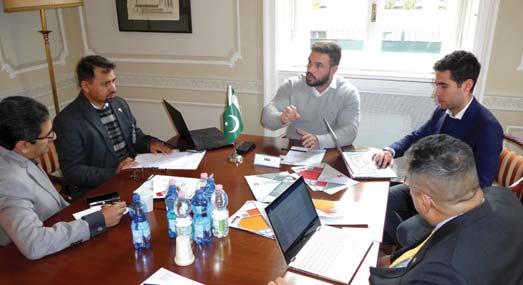
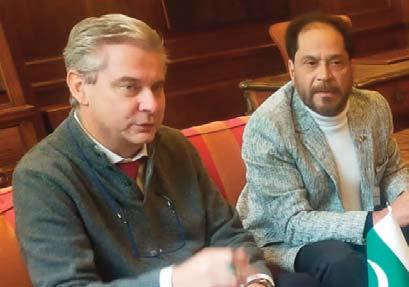
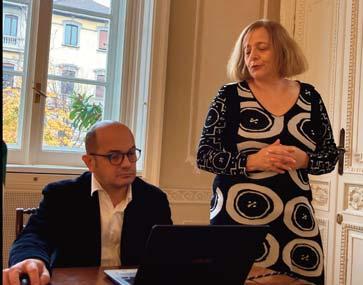

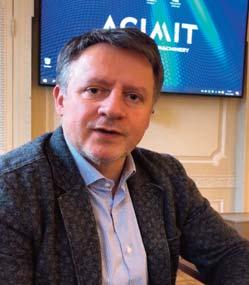

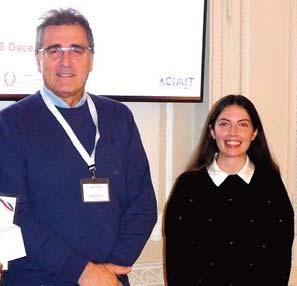
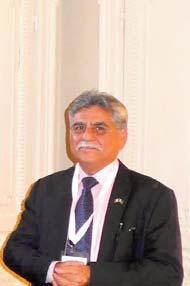
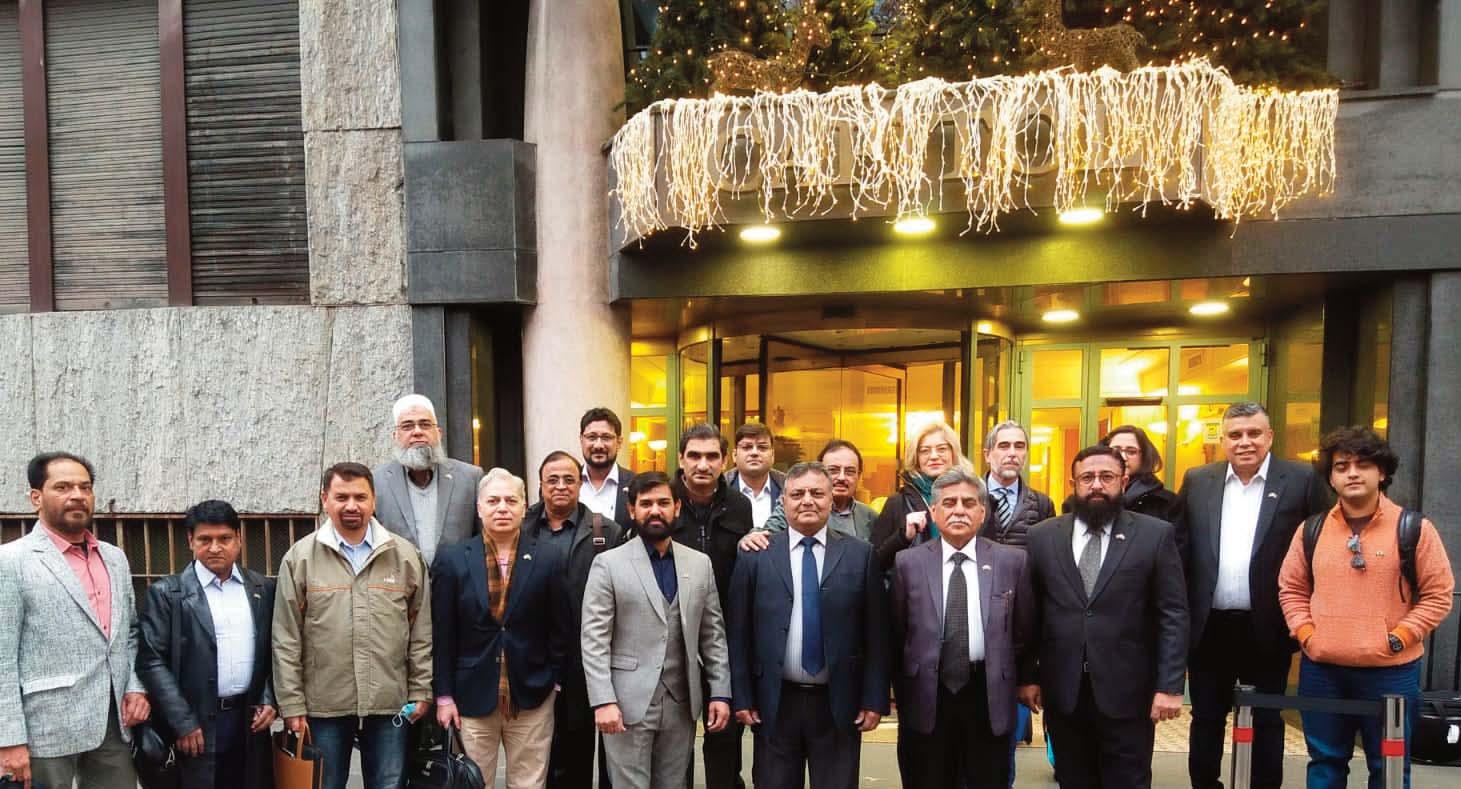
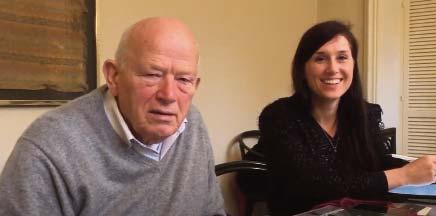
59 Special Report




Archroma................................................................. IFC Chhipasons.................................................................60 CCI USA....................................................................FC ITMA 2023................................................................38 iTextiles.........................................................................3 ItemaSpA.....................................................................1 Jet Logistics................................................................60 Rastgar................................................................. 6 & 60 Rebus International Inc. ................................................9 Savio...........................................................................BC Swissmem..................................................................15 Zhejiang Rifa..............................................................IBC
ADVERTISERS
Classified
INDEX FEBRUARY 2023









































































































































































































 Amina Baqai, Editor-in-Chief and Nadeem Mazhar, Publisher.
Amina Baqai, Editor-in-Chief and Nadeem Mazhar, Publisher.



































